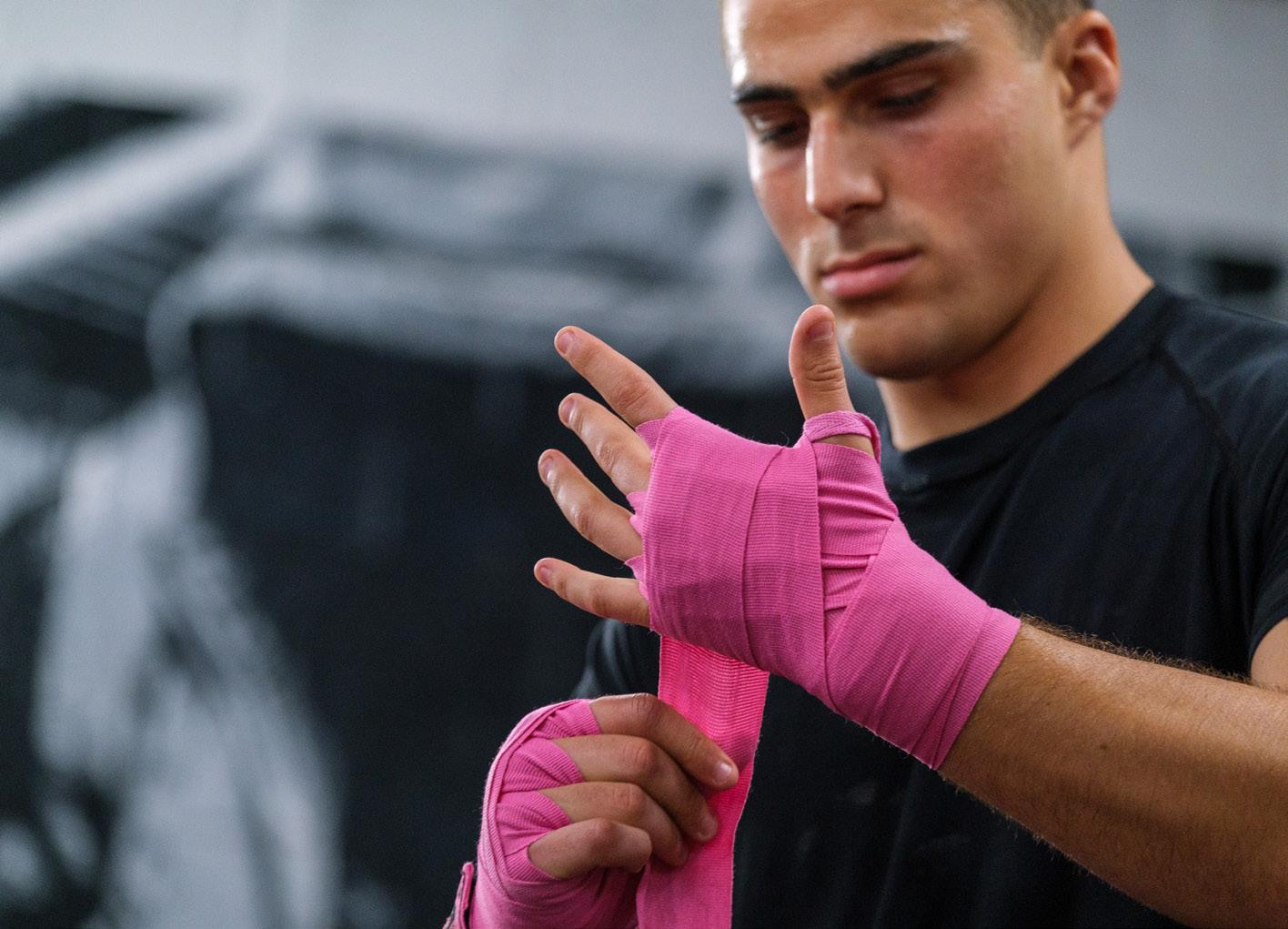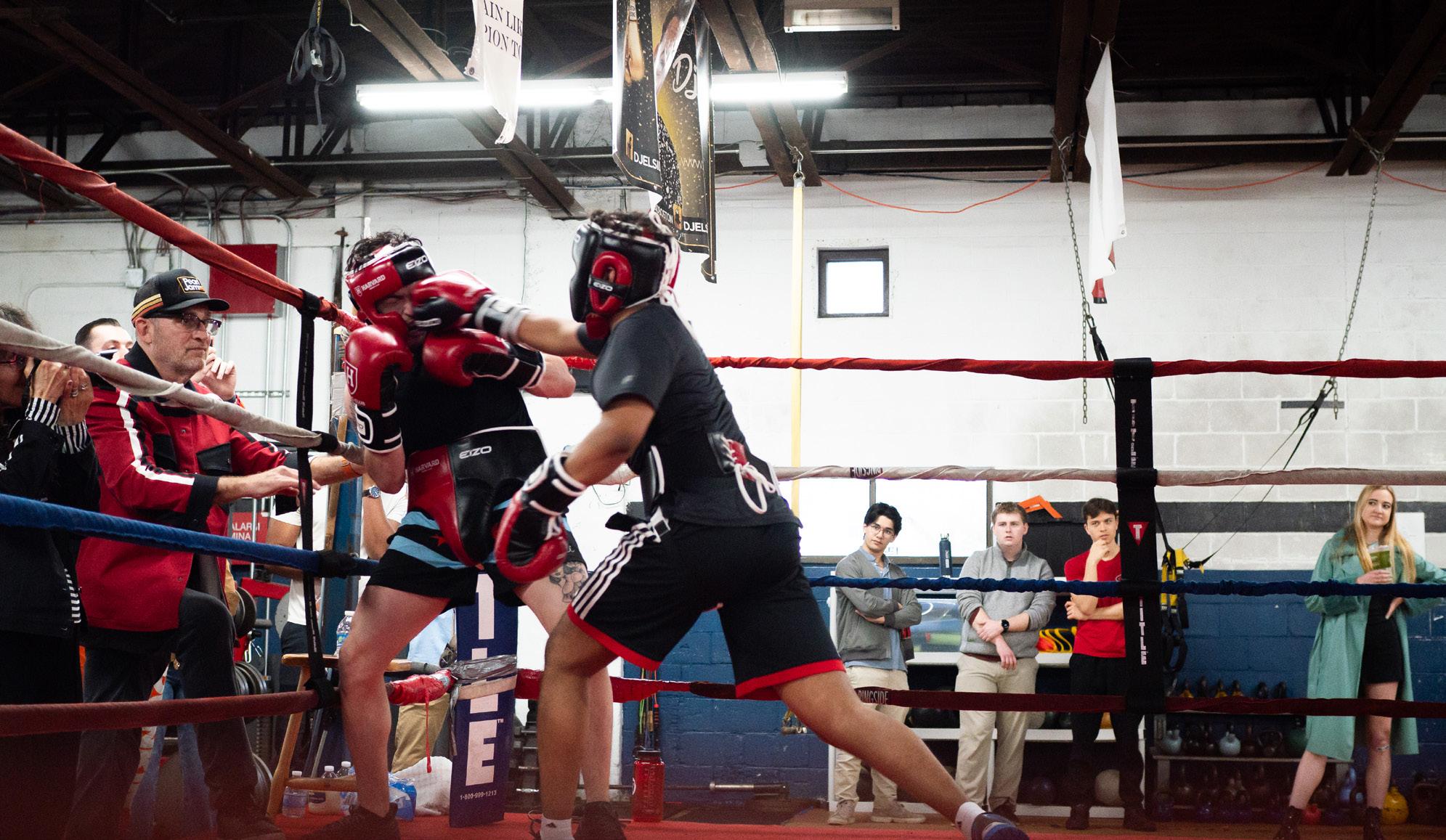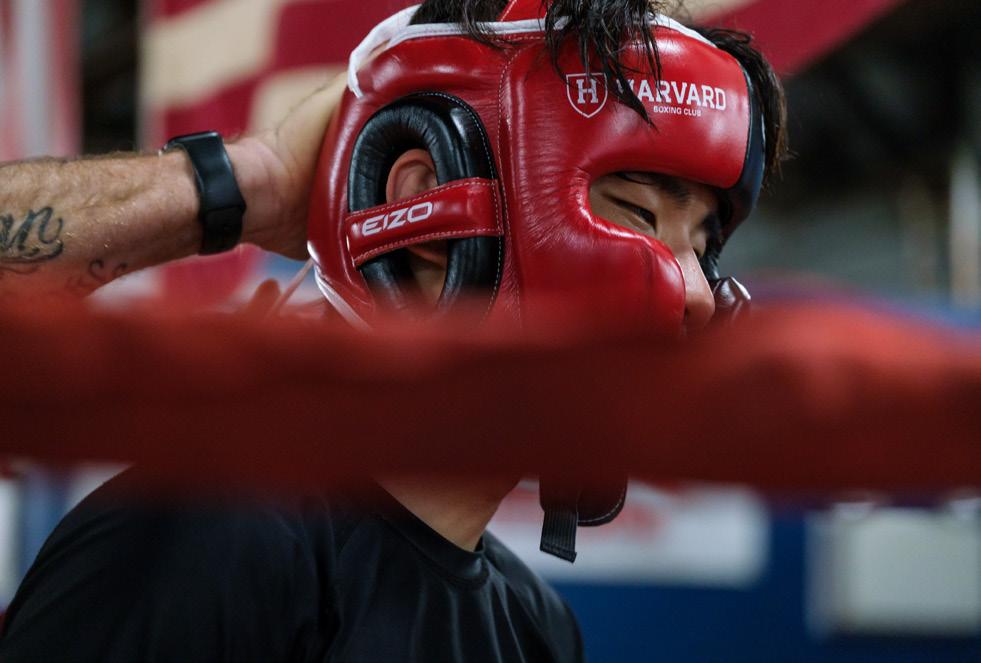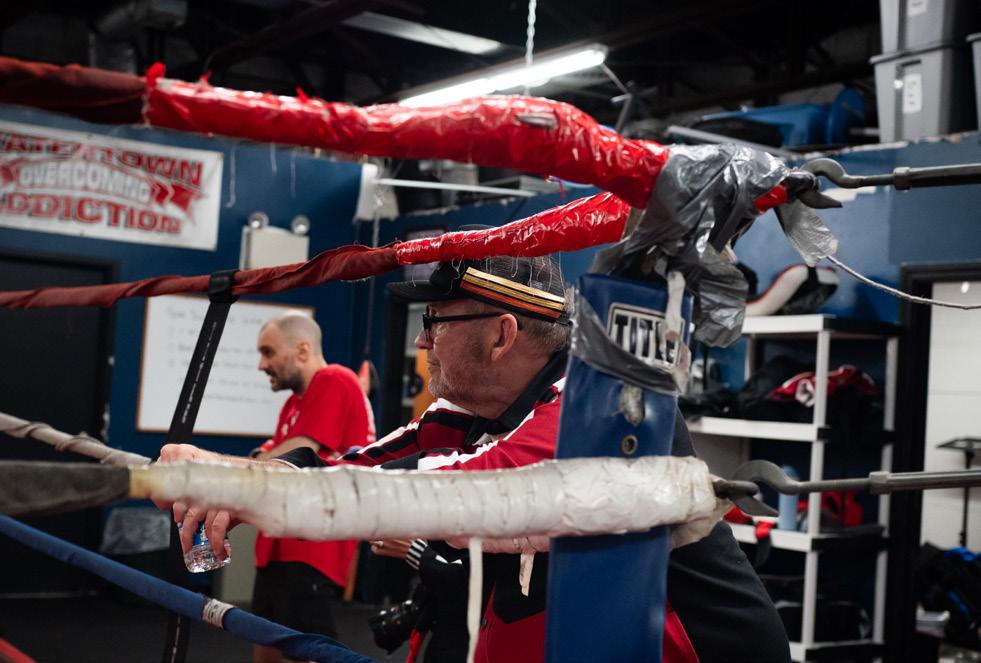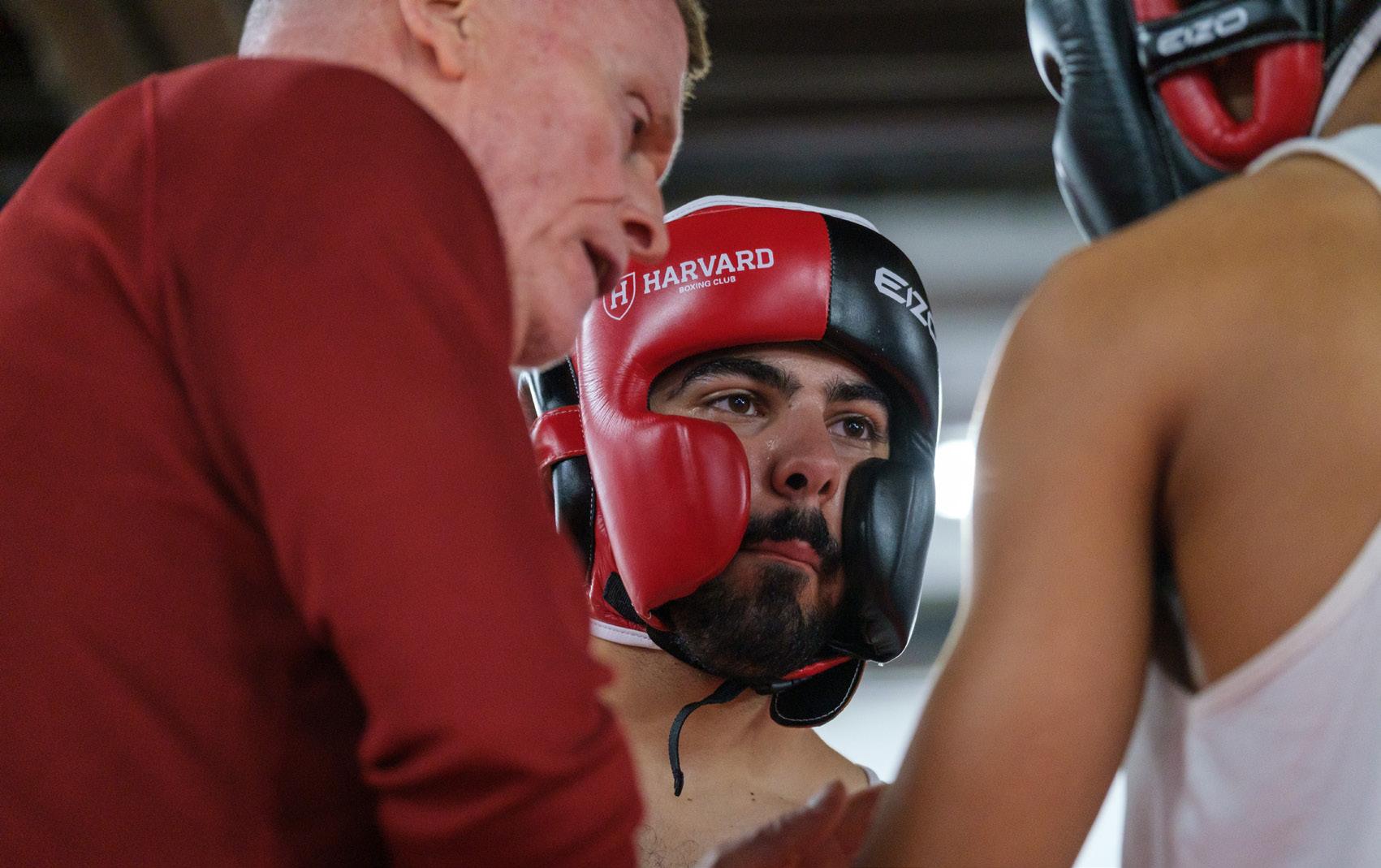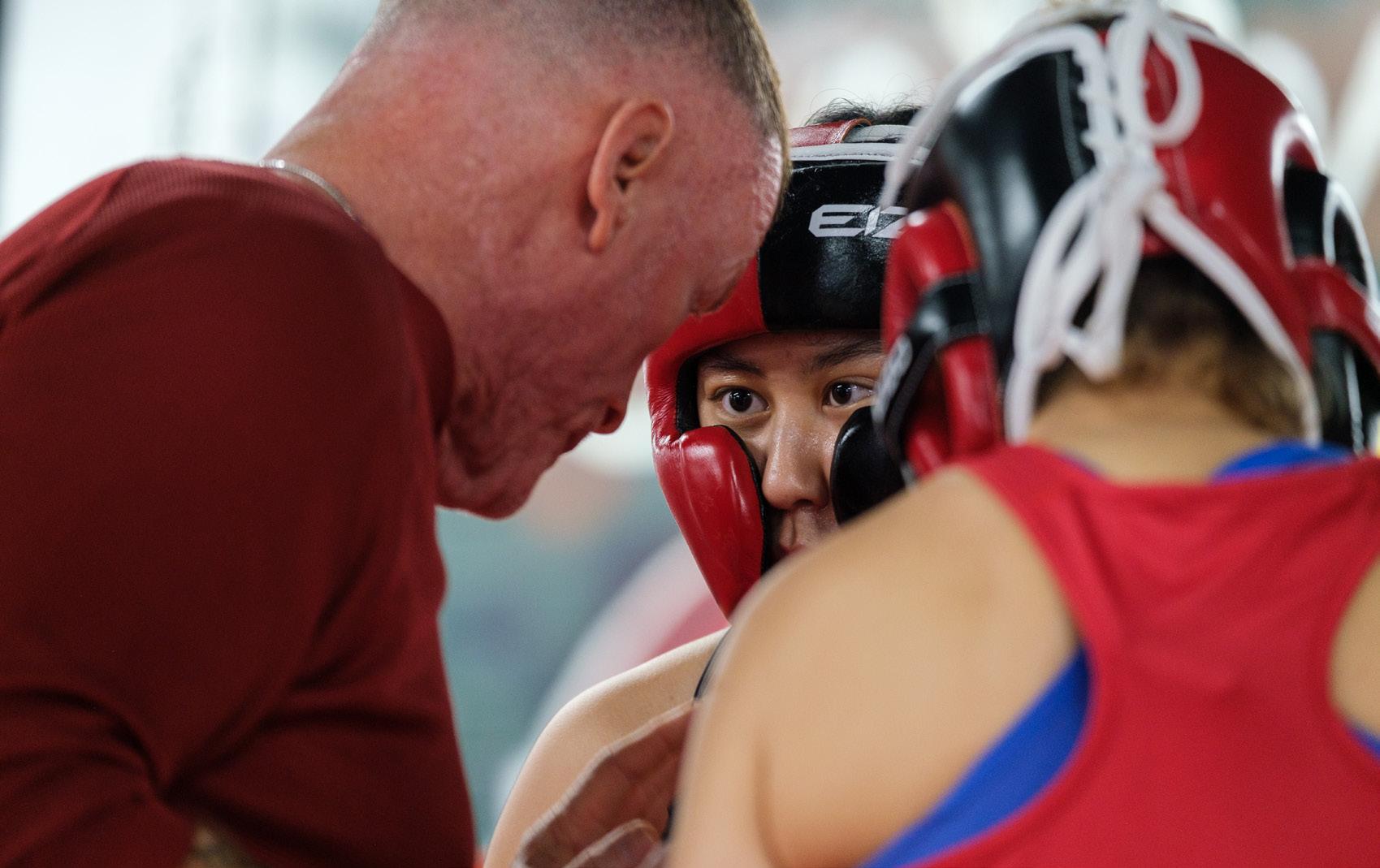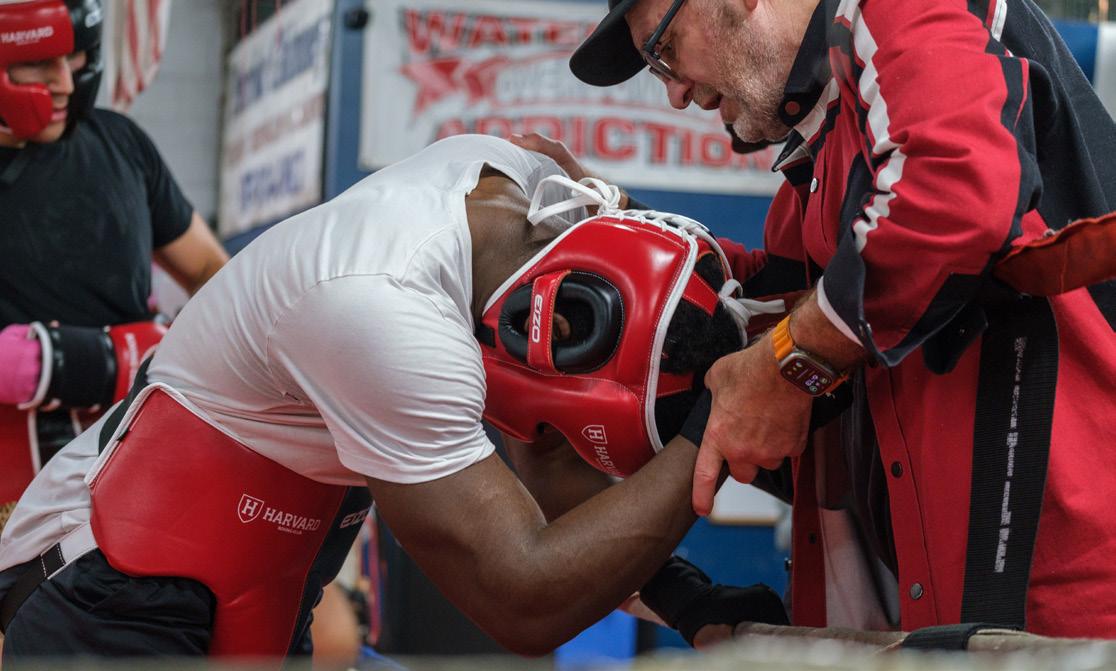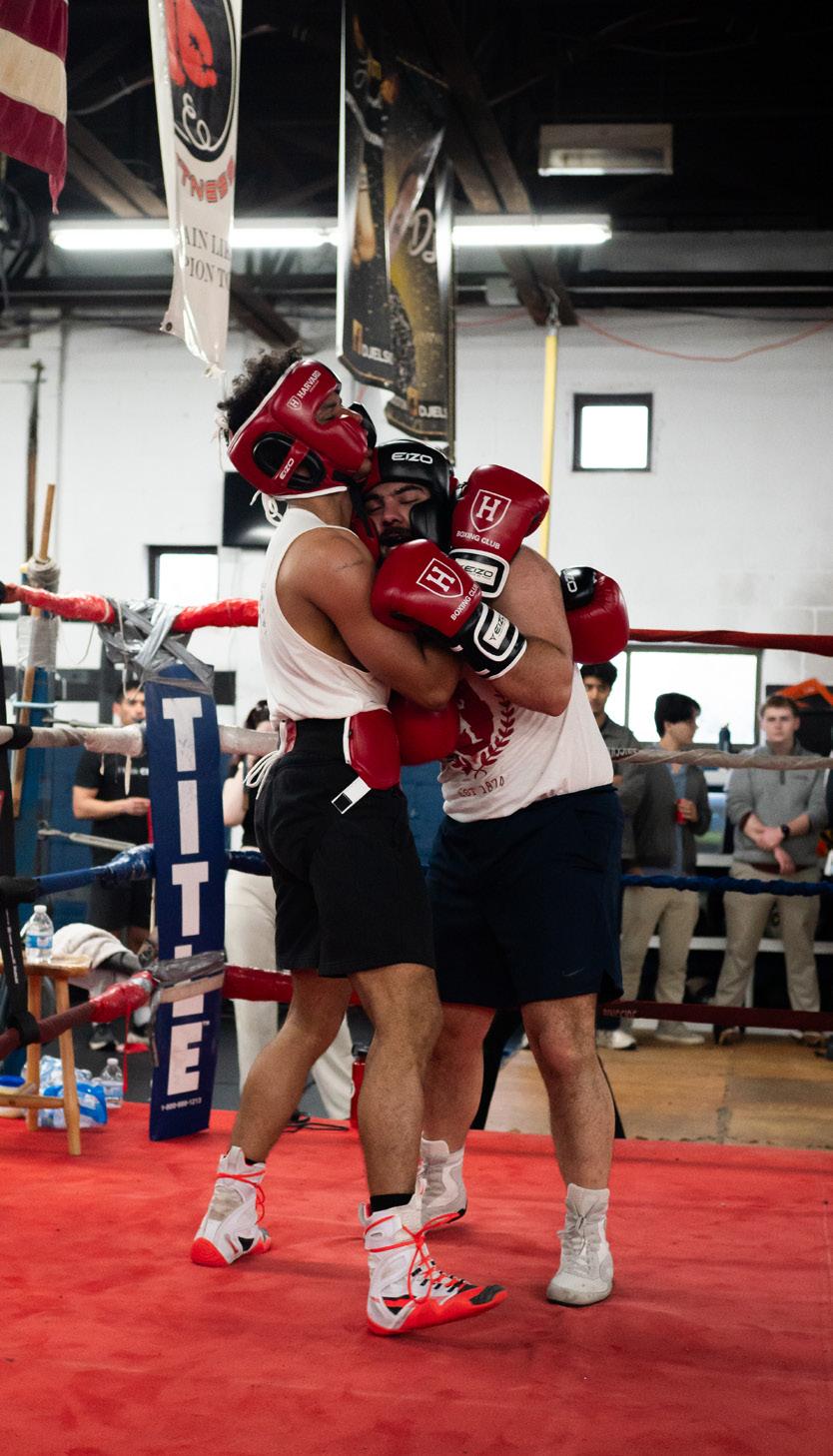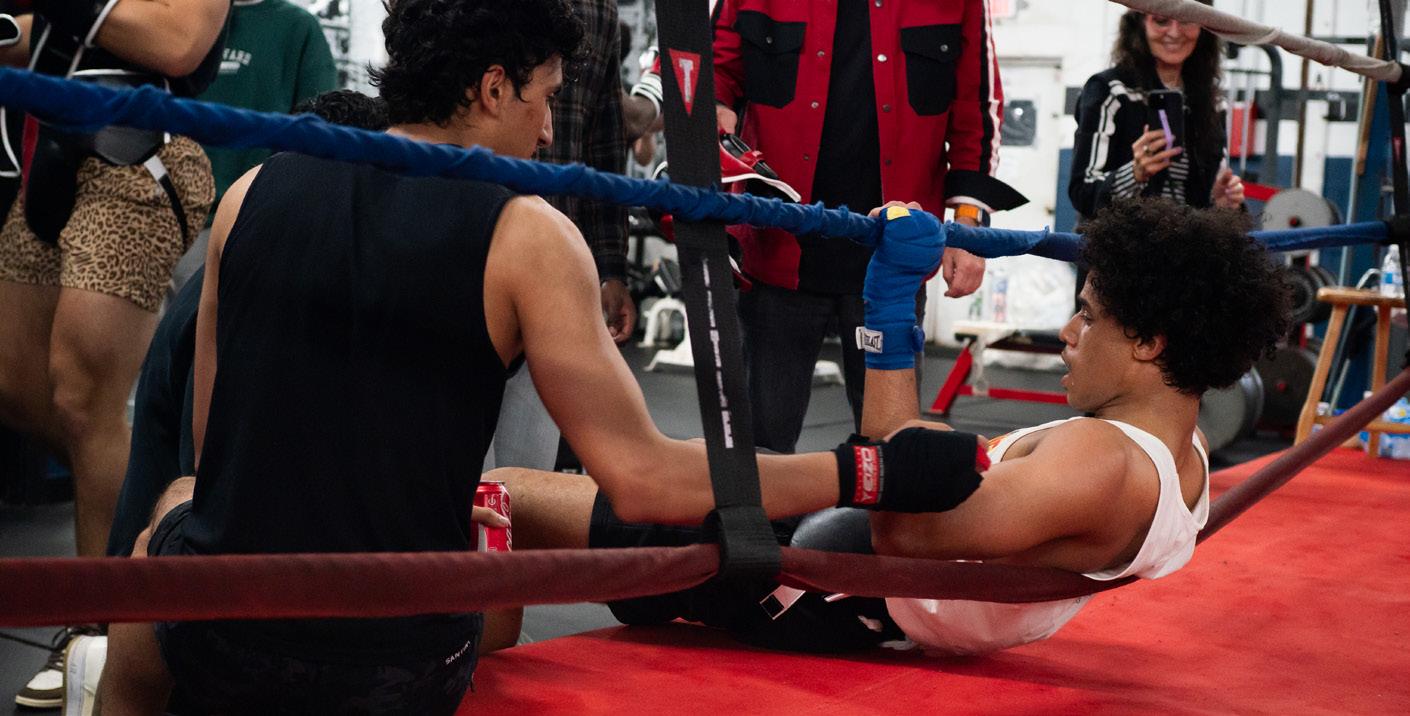The Harvard Crimson
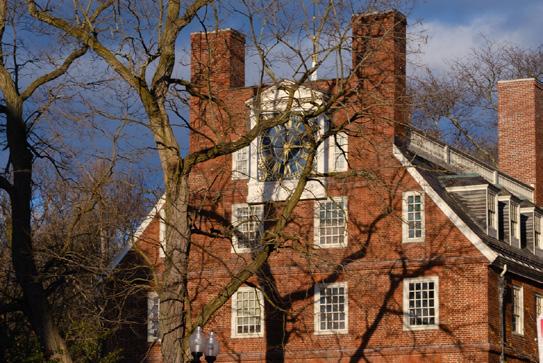
SUDDEN OVERHAUL. The office, now called “Community and Campus Life,” was renamed just weeks after the Trump administration demanded Harvard eliminate diversity, equity, and inclusion.



SUDDEN OVERHAUL. The office, now called “Community and Campus Life,” was renamed just weeks after the Trump administration demanded Harvard eliminate diversity, equity, and inclusion.

Harvard will no longer host or fund Commencement affinity group celebrations after the Education Department warned schools not to hold graduation celebrations that might separate students based on race.
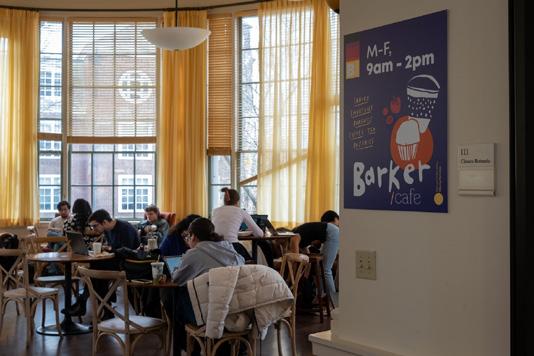
BY WILLIAM C. MAO AND VERONICA H. PAULUS CRIMSON STAFF WRITERS
Harvard’s twin task forces on combating bias toward Jewish, Israeli, Muslim, Arab, and Palestinian affiliates released their long-awaited reports on Tuesday afternoon — describing an atmosphere of fear and exclusion, as well as deep divisions over curricula, protests, and the scope of academic freedom. The reports, each hundreds of pages long, urged Harvard to implement sweeping changes that would alter everything from the University’s oversight
of programs and disciplinary processes to its academic programming and admissions policies.
Both task forces began their work after being tapped by Harvard President Alan M. Garber ’76 in January 2024 as Harvard wrestled with the on-campus aftermath of Hamas’ Oct. 7, 2023, attack on Israel and Israel’s war in Gaza. The groups released preliminary recommendations in June but delayed their final findings for months beyond a fall 2024 deadline.
Now, the reports arrive as Harvard sits in the glare of an uncomfortable — and intensifying — spotlight. Republicans in Washington have launched a blitz of investigations into the University
BY DHRUV T. PATEL AND GRACE E. YOON CRIMSON STAFF WRITERS
When Harvard sued the Trump administration two weeks ago, it took up the mantle of defiance — issuing a full-throated defense of academic freedom, invoking the Constitution, and rallying elite academia to its side.
But even as it takes the White House to court and insists that it won’t be coerced by federal pressure, Harvard is rolling out changes that seem to concede to some of the very demands that it claims are unconstitutional.
Just four days after suing the White House, Harvard President Alan M. Garber ’76 announced a process to convene a faculty panel to oversee cross-school protest cases and centralize disciplinary authority under the Office of the President. Garber framed the change as a response to inconsistent disciplinary outcomes across schools — but the timing was hard to ignore.
The Trump administration had called on Harvard to create “a disciplinary process housed in one body that is accountable to Harvard’s president” less than two weeks before in its April 11 letter to Massachusetts Hall.
Then on Monday, Harvard proceeded to rename its Office for Equity, Diversity, Inclusion, and Belonging to “Community and Campus Life” and announced that it would not fund affinity group celebrations during Commencement — decisions that closely aligned with the White House’s long-standing crusade against DEI and a directive the Department of Education issued in a Dear Colleague letter in February.
And on Tuesday afternoon, Garber paid a visit to Capitol Hill as his deputies back in Cambridge released long-awaited reports from Harvard’s task forces on antisemitism and Islamophobia, which described a campus rife with religious and political tension and urged changes — some in line with the Trump administration’s demands.
The moves, all in quick succession, suggest that even as Harvard publicly rebukes the demands — in court filings, campus messaging, and a primetime television interview — it has simultaneously begun adopting some of the less extreme ones.
A Harvard spokesperson declined to comment for this article.
They are also a sign that Harvard is attempting to walk a precarious middle line: resisting federal overreach in principle while selectively conceding to pressures it deems reasonable, manageable, or strategically worthwhile.
In March, Harvard appeared to be pursuing that same middle path. The University ousted personnel at its Center for Middle Eastern Studies, suspended programming focused on Israel and Palestine at the Harvard Divinity School, and terminated its partnership with Birzeit University — the oldest and largest university in the West Bank. All of those changes came quietly, without official explanation, but they bowed to long-standing calls and criticism from top House Republicans. That effort, however, did little to defuse political pressure. On March 31, the Trump administration announced it would review nearly $9 billion in federal funding flowing to Harvard, and just days later, on April 3, the University received its first formal set of demands from the White House.
and revoked billions of dollars in funding over what they say is Harvard’s failure to combat antisemitism.
As a result of the task forces’ findings, Harvard will instruct school deans to strengthen academic review processes for courses and curricula, will review admissions policies at each school to ensure they evaluate candidates’ willingness to engage with diverse perspectives, and is “actively exploring” the establishment of a major new center for pluralism.
In a message releasing the reports, Garber described accounts in the reports as “searing” and lamented “the reported willingness of some students to treat each other with disdain rather than sympathy, eager to criticize and ostracize.”
“Some students reported being pushed by their peers to the periphery of campus life because of who they are or what they believe,” Garber wrote. He apologized for the times when the University “failed to meet the high expectations we rightfully set for our community.”
The task forces conducted a joint survey of nearly 2,300 affiliates from May to August 2024. Fifty-six percent of Muslim and 26 percent of Jewish student respondents reported feeling physically unsafe on campus — a figure significantly higher than the 12 percent of Christian and 8 percent of atheist or agnostic students who felt similarly.
Harvard shared information with the Department of Homeland Security in response to its request for information on international students’ disciplinary records and illegal activity, the University announced in a Wednesday evening email to affiliates.
It was not immediately clear whether Harvard provided all the requested records.
University Executive Vice President Meredith L. Weenick ’90 wrote that Harvard had responded to the DHS’ request “to provide information required by law,” but a University spokesperson declined to specify what records had been shared.
The announcement comes almost two weeks after Homeland Security Secretary Kristi Noem sent Harvard a letter threatening to revoke its authorization to host international students under the Student and Exchange Visitor Program unless it shared international students’ data, including records related to protest participation.
The DHS gave Harvard until Wednesday to respond to the demands.
“We take seriously the data retention and reporting obligations that enable participation in the SEVP,” Weenick wrote.
She wrote that Harvard “reiterated our steadfast commitment to sponsor the visas that facilitate our international students’ study” in its message to the DHS and “made clear” that it does not intend to withdraw from SEVP.
“Our participation in SEVP is unchanged at this time, and any withdrawal by DHS of Harvard’s certification would be involuntary,” Weenick wrote.
The April 16 requests from the DHS included information regarding each visa holder’s “known deprivation of rights of other classmates” and “obstruction of the school’s learning environment,” along with
any disciplinary actions “taken as a result of making threats to other students or populations or participating in protests.”
Under Title 8 of the Code of Federal Regulations, the law Noem cited in the letter, universities must provide the DHS with information on international students’ degree program, course enrollment, grades, and academic status — including withdrawal, probation, suspension, or expulsion — upon request.
Universities are also required to report within 21 days any disciplinary action that they take against students because of criminal convictions.
If Harvard loses its SEVP status, current international students on University-sponsored visas will have to choose between transferring to a different institution, changing their immigration status, or leaving the country, according to the Immigration and Customs Enforcement website.
Weenick wrote in her email on Wednesday that Harvard is still currently enrolled in SEVP, and that “any withdrawal by DHS of Harvard’s certification would be involuntary.”
“For our students and scholars from abroad, we encourage you to continue to stay as focused as possible on your academic pursuits,” she wrote. In the weeks since Harvard received Noem’s letter, hundreds of affiliates — including international undergraduates and the Harvard Undergraduate Association student body co-presidents — had urged the University not to comply with the demands laid out in the letter.
Several legal experts previously told The Crimson that Harvard should consider suing the DHS over its demands. Harvard has already filed a lawsuit against nine federal agencies over $2.2 billion in federal funding cuts to the University, but did not list the DHS as a defendant.
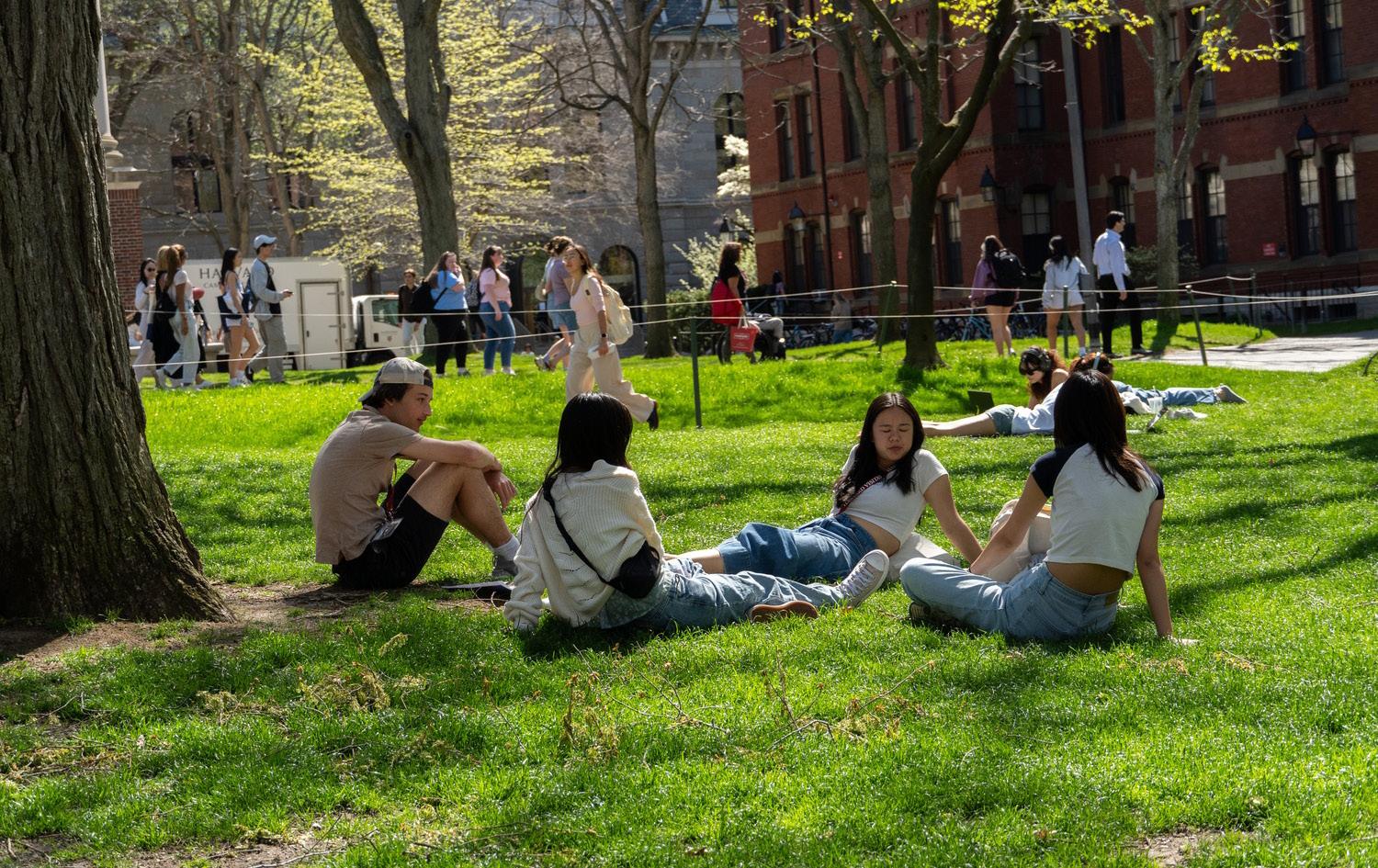

FACULTY PASS PROPOSAL TO END FACULTYWIDE POLITICAL STATEMENTS
The House Judiciary Committee is planning to subpoena Brown for documents related to the university’s financial aid and admissions practices as part of a congressional investigation into alleged tuition price-fixing, the Brown Daily Herald reported Wednesday. Earlier this month in an April 8 letter, Congressional Republicans ordered Brown to share the requested documents by a deadline of April 22. However, the university allegedly failed to comply with the request and to send the documents by the deadline, according to a congressional staffer.
THE BROWN DAILY HERALD

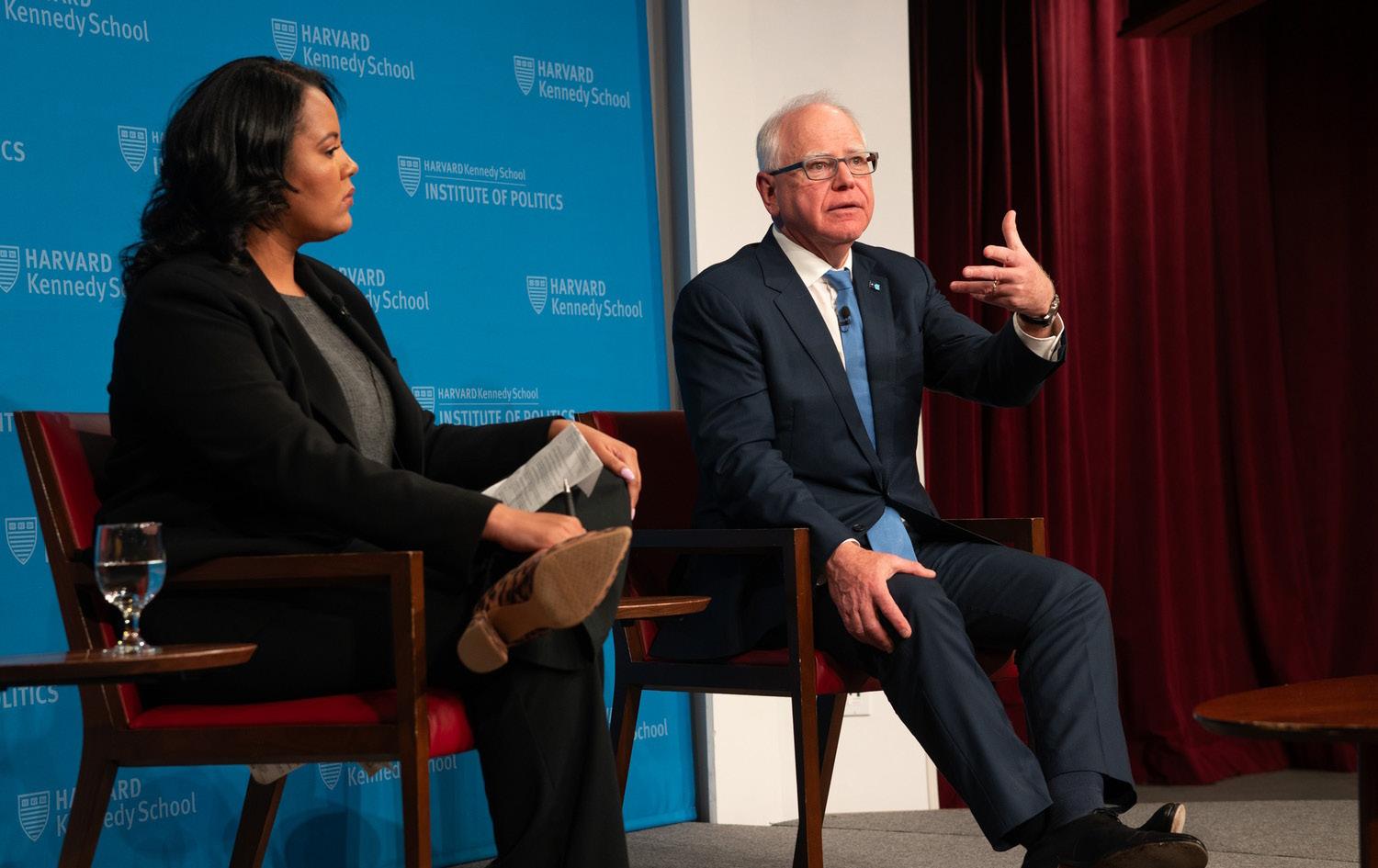
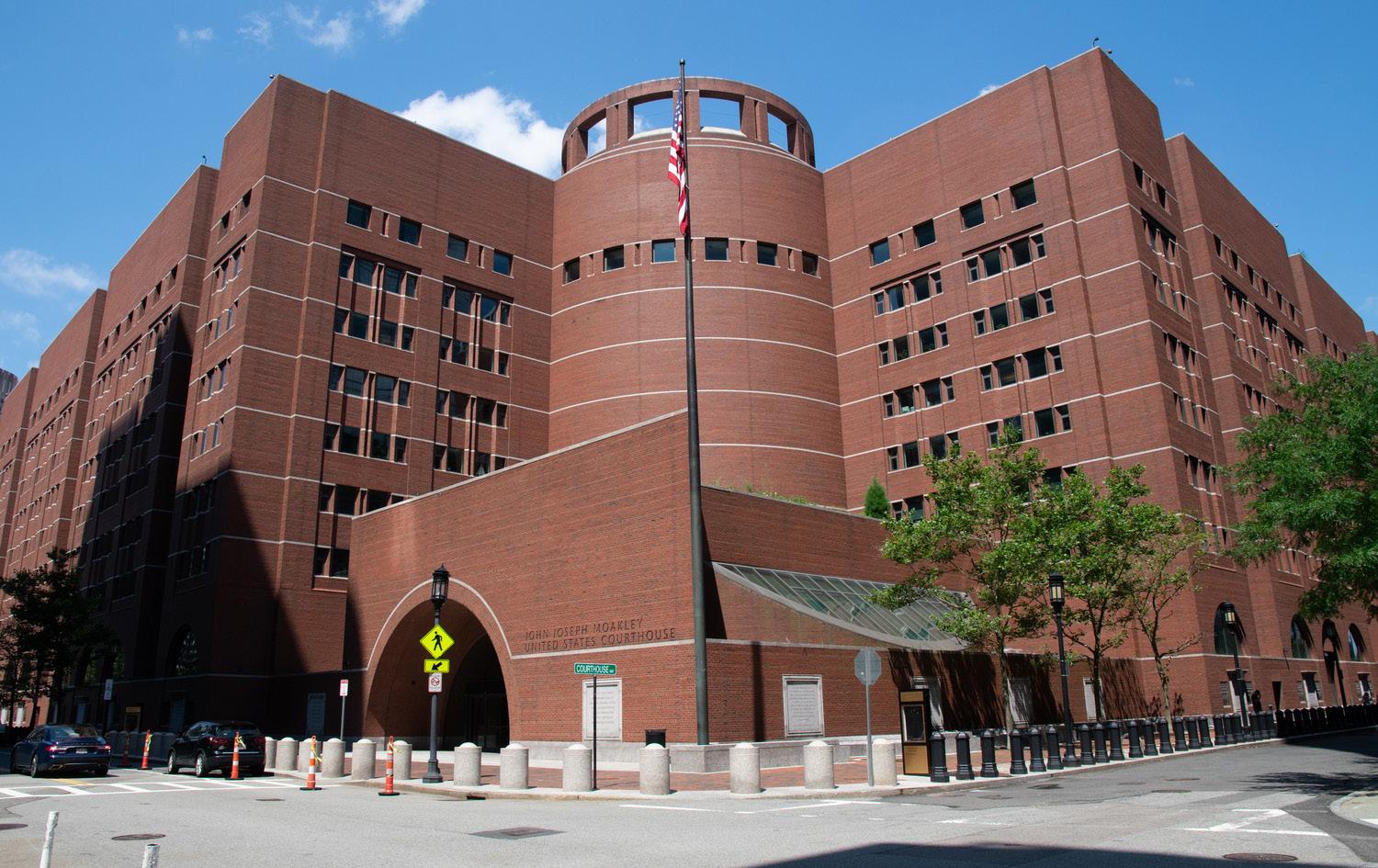

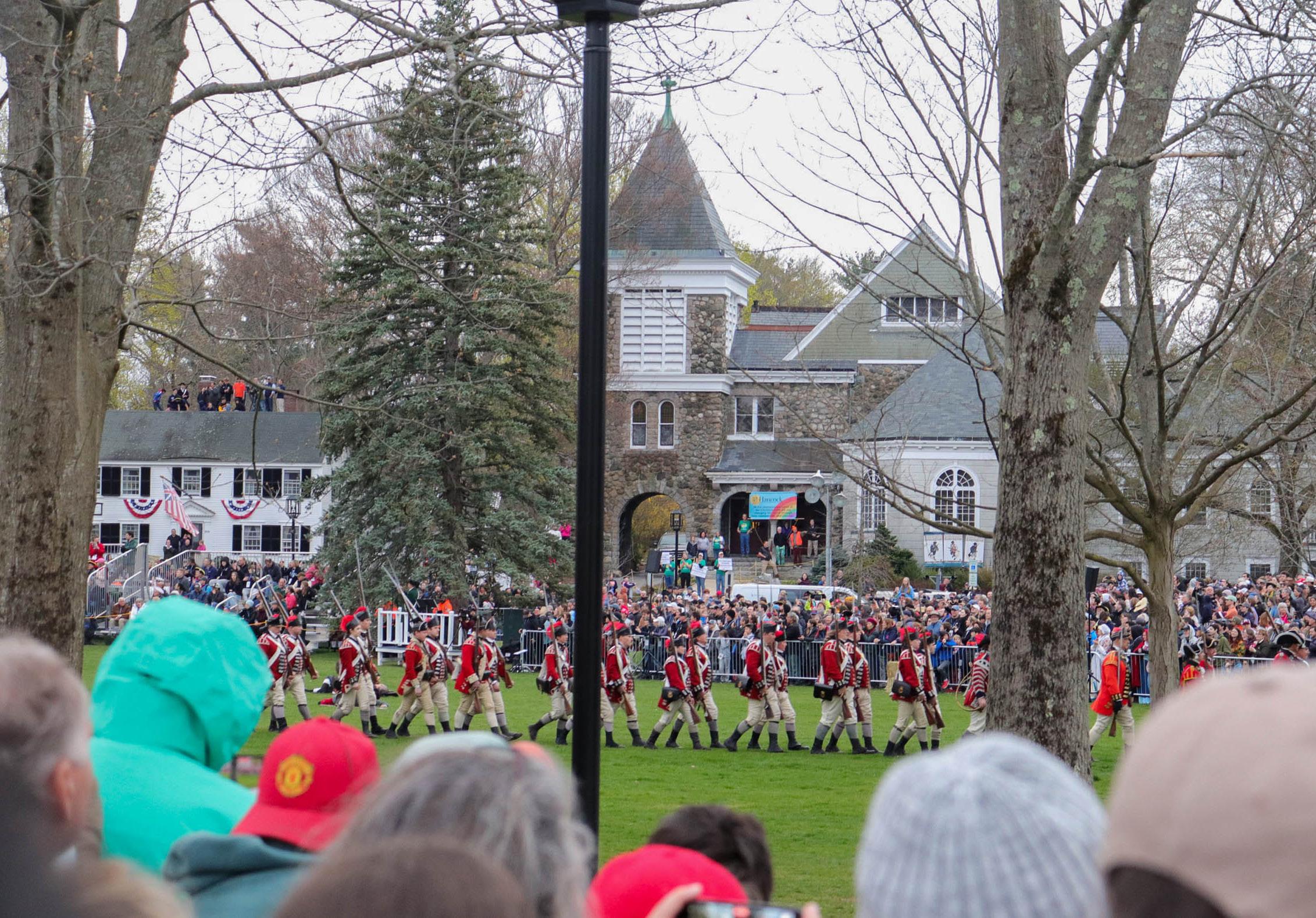
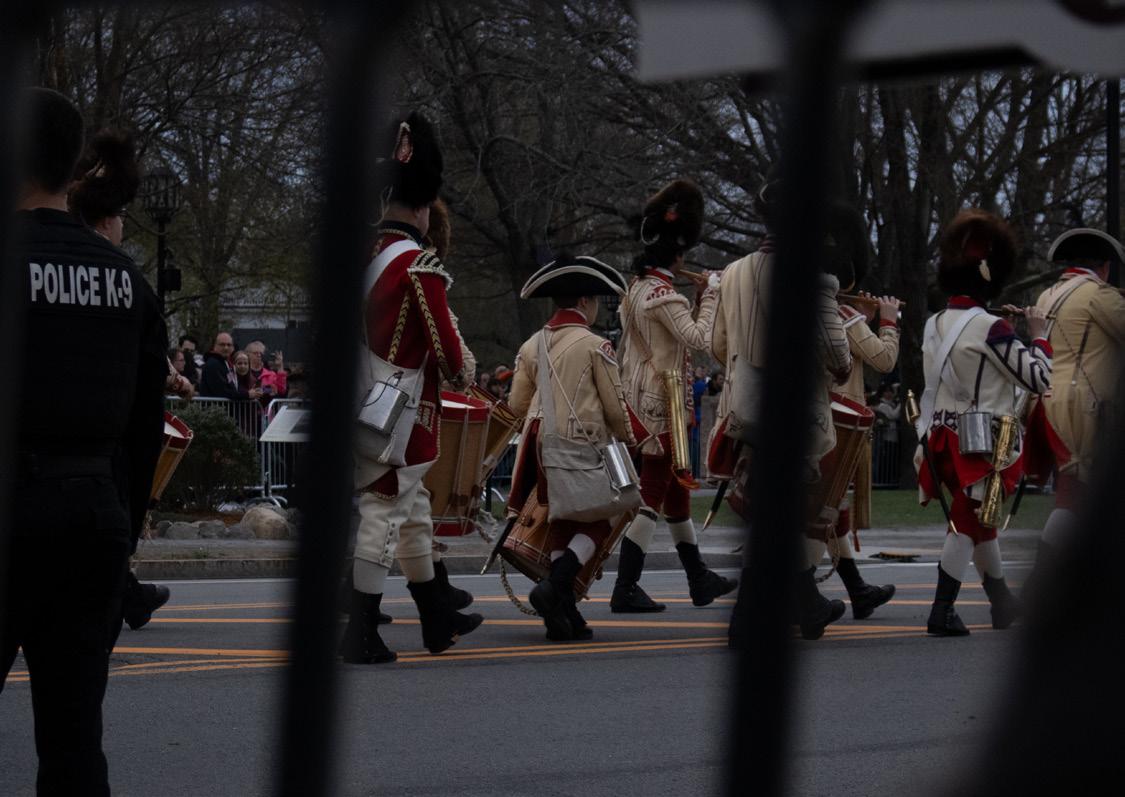
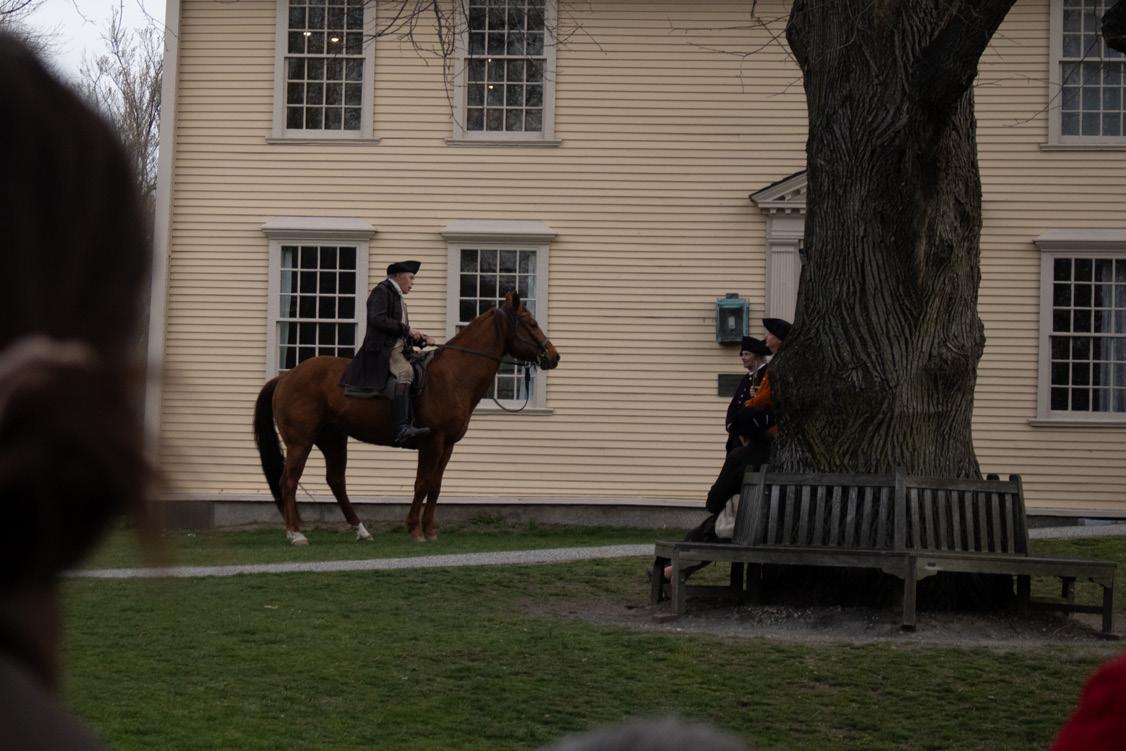


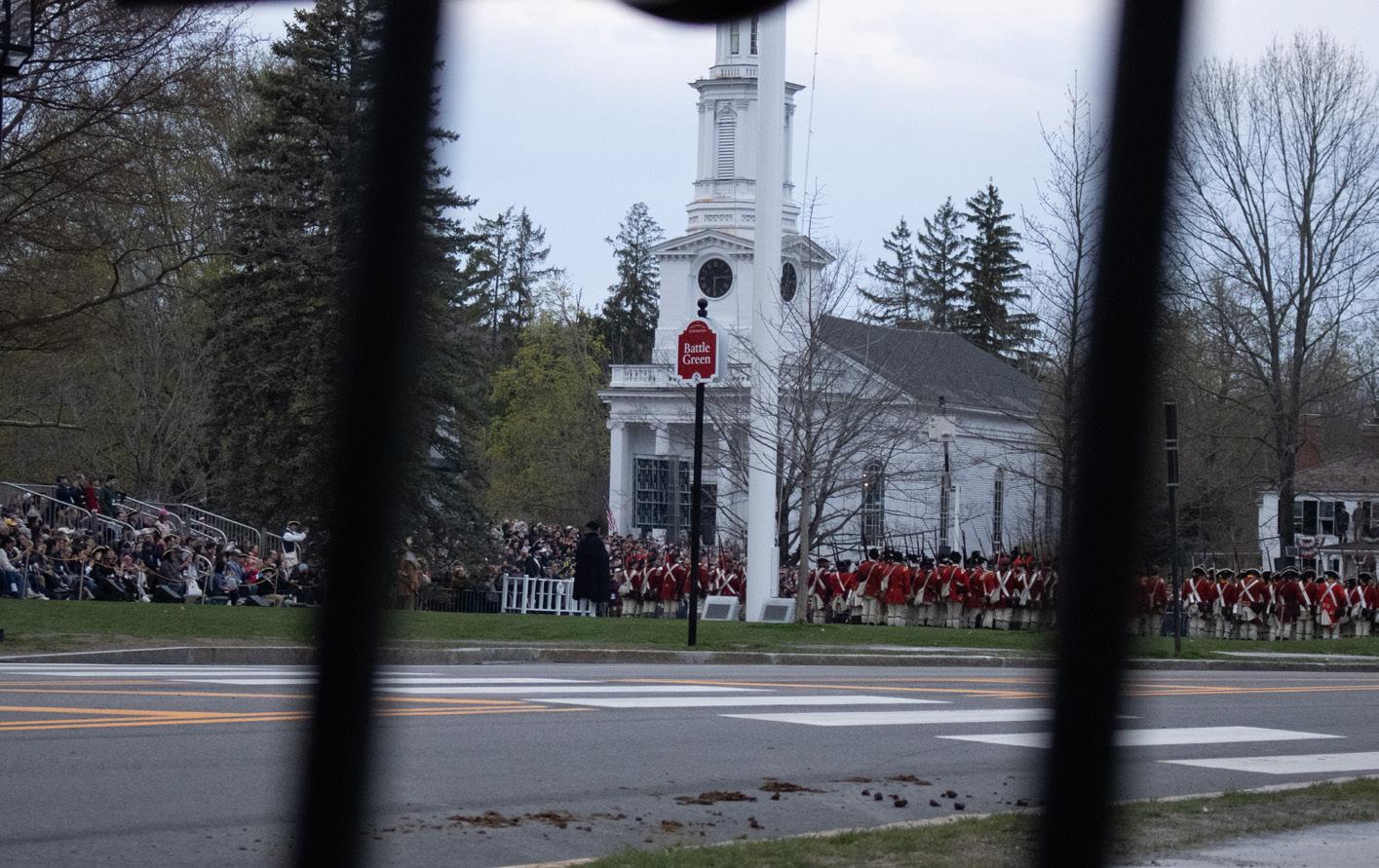

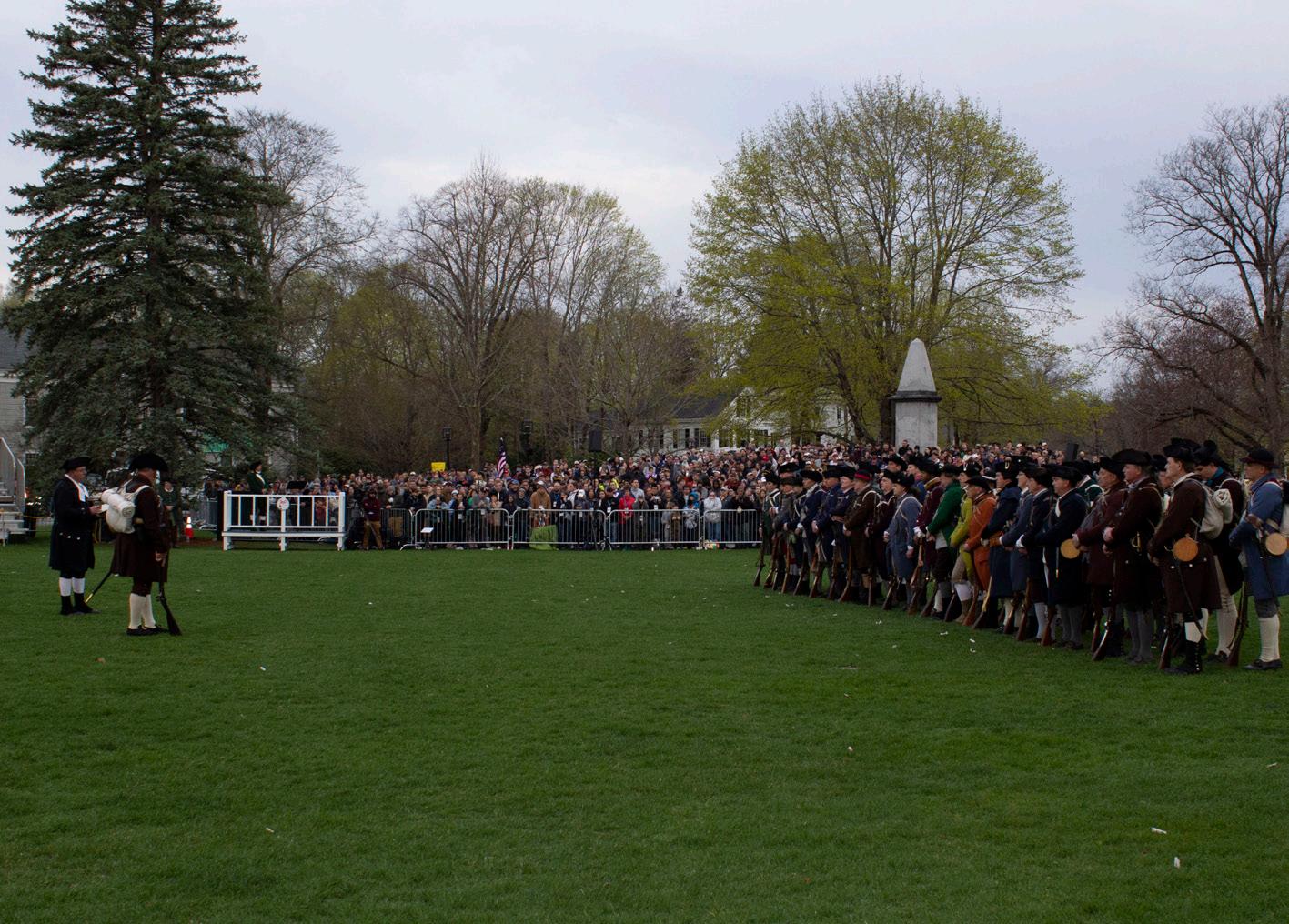
Start every week with a preview of what’s on the agenda around Harvard University
U.S. AND UKRAINE SIGN MINERAL DEAL
On April 30, the U.S. signed a mineral sharing agreement with Ukrainian First Deputy Prime Minister Yulia Svyrydenko that would give the U.S. access to Ukraine’s mineral deposits, oil, and gas, BBC reported. The agreement comes after months of negotiations and rejected drafts on both sides. The agreement does not stipulate any return payment to the U.S for military assistance provisioned to Ukraine since the start of the war. The U.S. Treasury Department wrote that “no state or person who financed or supplied the Russian war machine will be allowed to benefit from the reconstruction of Ukraine.” The deal also states that the reconstruction investment fund’s profits will be “fully reinvested in Ukraine’s economy” for the first decade.
MARK J. CARNEY ’87 ELECTED PRIME MINISTER OF CANADA
Friday 5/2
IAN SPANGLER ON HOW REAL ESTATE DATA-SHARING IMPACTS HOUSING
Wexner 434, 10:30 - 11:30 a.m
Join Ian Spangler — a cultural and economic geographer with interests in digital mapping, housing studies, and race and landscape in the US — at this session of Data + Donuts, where he will present his dissertation research.
Saturday
ARTS FEST AT THE HARVARD ART MUSUEMS
Calderwood Courtyard and Adolphus Bush Hall, 1:00 - 5:00 p.m.
The Harvard Art Museums will showcase a variety of student and other Harvard affiliated performances across a wide variety of styles including a cappella, dance, music, theater, and more.
Sunday
THE 40TH ANNUAL HARVARD SQUARE MAYFAIR
Harvard Square, 12:00 - 6:00 p.m.
Both the Liberal and Conservative party saw an increase in voting share of 11.1 and 7.5 percent, respectively. The voter turnout of 69 percent was the highest since the 1993 Federal Elections, according to BBC. On Tuesday, President Trump congratulated the Prime Minister and “the leaders agreed on the importance of Canada and the United States working together — as independent, sovereign nations — for their mutual betterment,” according to a statement from Carney’s office.
The article “Probing Harvard History, Unauthorized,” which ran in The Crimson’s April 25 print issue, stated that Richard J. Cellini has the full list of people enslaved by Harvard affiliates, and their descendants, who were identified by the Harvard Slavery Remembrance Program. In fact, though Cellini directed the HSRP, he denies ever having access to the list of descendants, which was kept in a folder shared between HSRP and American Ancestors.
The article “How the HUA Spends Half a Million Dollars,” which ran in The Crimson’s April 25 print issue, stated that the Harvard Undergraduate Association voted this year to allocate roughly $468,000 to student organizations. In fact, the HUA budgeted about $457,000 for student groups, but the amount disbursed by the student government was higher.
This list may not be comprehensive. For the most up-to-date versions of articles in The Crimson, please visit thecrimson.com.

The 40th Annual Mayfair is coming to the streets of Harvard Square. Mayfair is the city’s annual celebration of spring, featuring food inspired by cultures from all over the world, unique one-of-a-kind gifts and crafts, beer gardens, music, entertainment, and dance.
Monday 5/5
PREPARING STUDENTS FOR THE FUTURE: AI LITERACY IN THE LIBERAL ARTS
Harvard Hall 101, 2:00 - 3:00 p.m.
This event will feature a panel discussion of faculty and one undergraduate on how a liberal arts education can incorporate AI literacy.
Tuesday 5/6
TRUST-BUILDING THROUGH JOINT
ISRAELI-PALESTINIAN HEALTHCARE INITIATIVES
CGIS Knafel Building Rm 262, 1:00 - 2:30 p.m.
The Center for Middle Eastern Studies will host a conversation between Middle East Initiative Fellows Avner Halperin, Yasmeen Abu Fraiha, and Noam Alon.
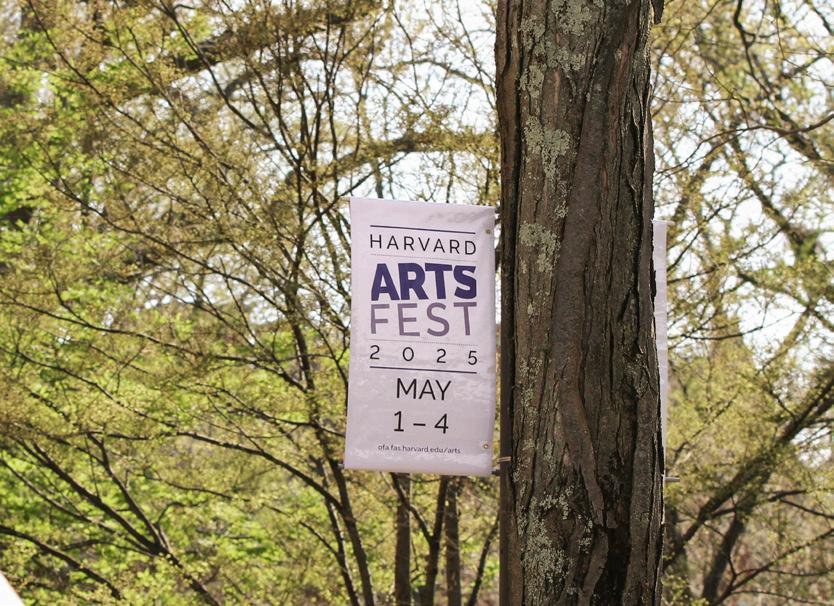
Wednesday 5/7
WHY MEDICAID MATTERS
Harvard Chan Studio, 1:00 - 1:30 p.m.
Former North Carolina Governor Roy A. Cooper III expanded the state’s Medicaid program before leaving office, enrolling
Thursday 5/8
SPRING SEMESTER SUN
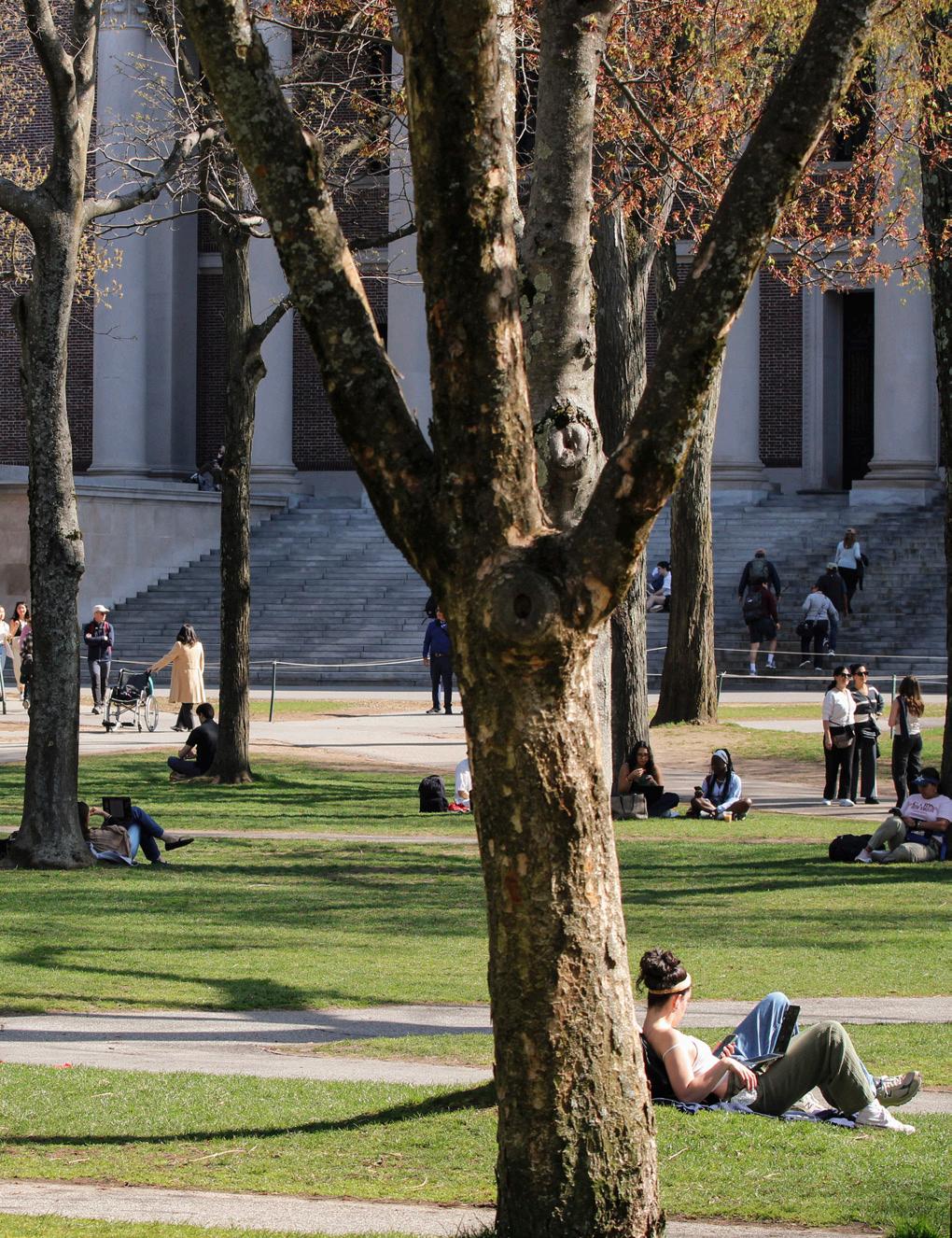
Friday 5/9
ALL IN A NAME. Harvard dubbed the office Community and Campus Life, striking ‘diversity’ from its title.
BY DHRUV T. PATEL
Harvard will immediately rename its Office of Equity, Diversity, Inclusion, and Belonging to “Community and Campus Life,” the University announced Monday.
The move comes as the Trump administration continues its campaign to eliminate diversity, equity, and inclusion programming at universities. In two April letters outlining demands to Harvard, federal agencies urged the University to dismantle its DEI programming — or lose billions of dollars in federal funding. Harvard publicly rebuffed the demands and sued the administration over the $2.2 billion funding freeze it imposed in response. But the renaming of OEDIB indicates that Harvard may be willing to concede ground as DEI initiatives face a tidal wave of political hostility. The change was announced in a Monday afternoon email from Sherri A. Charleston — formerly Harvard’s chief diversity officer, now retitled as the University’s chief Community and Campus Life officer. Half an hour after Charleston’s email was sent, the OEDIB website did not reflect changes to
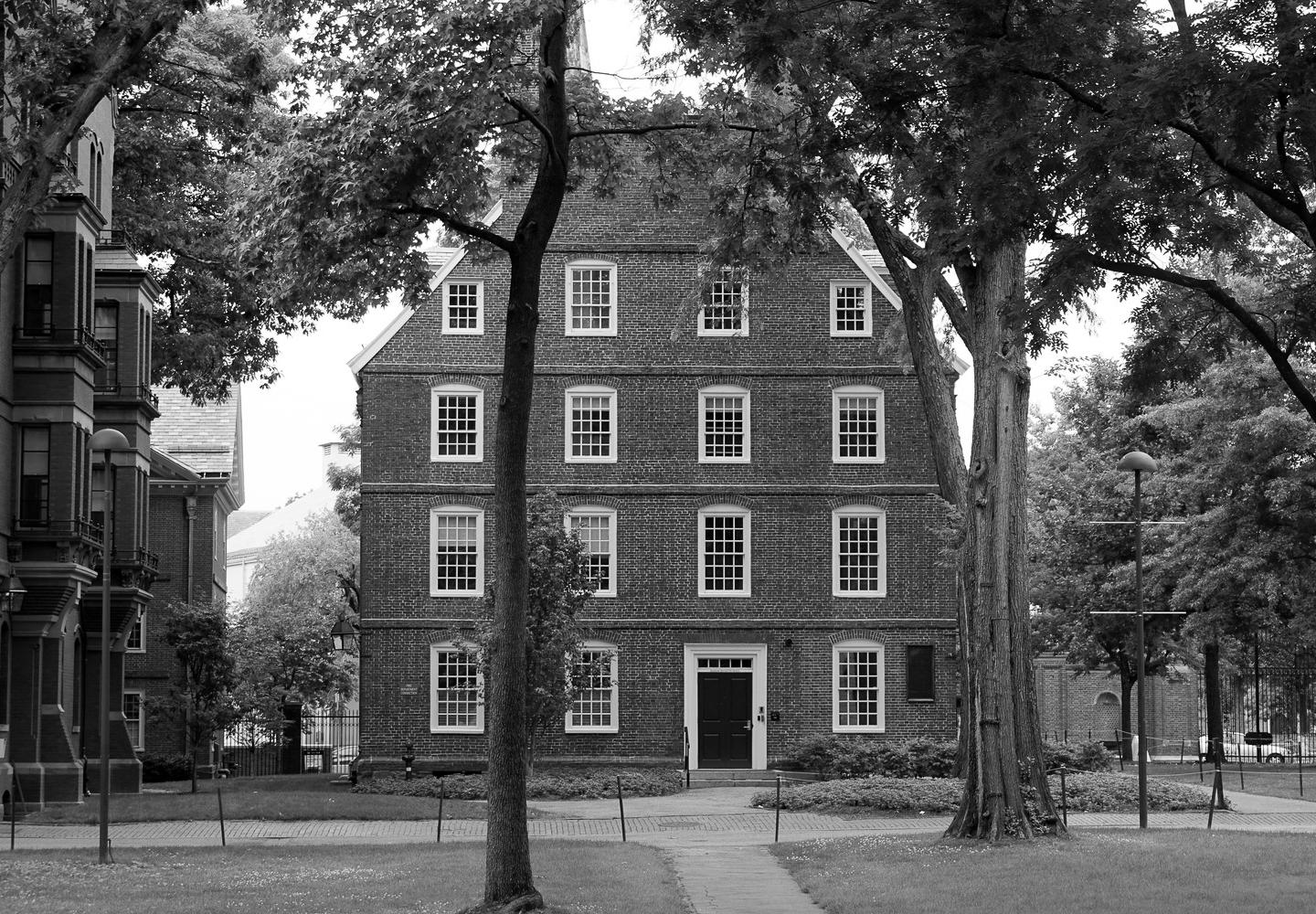
fewer felt uncomfortable expressing diverging viewpoints or connecting across ideological lines. The findings, she said, were a sign of the urgency of reimagining how Harvard fosters community — with a focus on supporting free expression. Under its new mandate, the Office of Community and Student Life will focus on expanding cross-cultural engagement programs, supporting first-generation and low-income students, and creating more opportunities for dialogue across differences. While other universities, including several Ivy League institutions, have scrubbed mentions of DEI from webpages and reshuffled DEI offices, the Monday announcement marks Harvard’s first significant change to its DEI programming. For months, even as peer schools scrubbed their websites and cut DEI initiatives, Harvard made no major moves to follow suit. At Harvard’s annual Equity, Diversity, Inclusion, and Belonging Forum in February, University President Alan M. Garber ’76 defended diversity as a “critical enabler of learning.”
“Exposure to different backgrounds, different perspectives, different experiences, leads to intellectual and personal growth,” he said at the forum.
dhruv.patel@thecrimson.com
BY CAM N. SRIVASTAVA CRIMSON STAFF WRITER
Harvard will no longer host or fund affinity group celebrations during Commencement, the University’s former diversity office wrote in an email to affinity groups on Monday afternoon. The decision comes months after the U.S. Department of Education threatened another wave of funding cuts if the University did not cancel graduation celebrations that might separate students based on race. Though the email was sent from an email address belonging to Harvard’s Office of Equity, Diversity, Inclusion, and Belonging, the office was renamed “Community and Campus Life” hours before, according to an email from Sherri A. Charleston — the University’s chief Community and Campus Life officer, formerly Harvard’s chief diversity officer.
Since the Education Department’s threat — and amid several other ensuing battles with the Trump administration over diversity programing and funding — Harvard officials had left affinity groups in the dark for weeks about Commencement planning for affinity events before the Monday email.
Last year, Harvard hosted ten affinity celebrations for the Class of 2024, including for Arab, Black, Indigenous, Latinx, first-generation, low-income, and Asian American, Pacific Islander, and Desi graduates. The events — some of which drew more than 1,000 people from across Harvard’s schools last year — typically feature awards and speeches from students, faculty, and administrators.
The Education Department letter did not address affinity celebrations not based on race, including events for LGBTQ graduates, Jewish graduates, veterans, and graduates with disabilities. And the Harvard email on Monday did not specify which events would no longer be permitted on campus.
University spokesperson Jason A. Newton wrote in an emailed statement that Harvard “is reviewing the FAQs that were issued on February 28 by the U.S. Department of Education’s Office for Civil Rights.”
“Harvard remains committed to building a community where individuals who bring a broad array backgrounds, experiences and perspectives come together to learn, grow and thrive, and equally committed to complying with the law,” he wrote.
Newton argued in a March
3 email that the University had never hosted the celebrations.
The Education Department is currently blocked from enforcing its letter, which was first issued February 14, after a Maryland judge issued a stay. The block will continue until a separate judge resolves a federal lawsuit filed against the Education Department by the National Education Association in New Hampshire.
On Monday, the unsigned OEDIB email said that affinity groups would no longer receive “funding, staffing, or spaces for affinity celebrations.”
“We stand ready to address questions or concerns you may have during this transition,” it read.
The office also wrote that it would schedule one-on-one conversations with students previously involved in planning affinity celebrations.
In two April letters to Harvard, federal agencies conditioned billions in dollars of federal funding on dismantling DEI programming. Harvard rejected the demands, and lost $2.2 billion in federal funding. Harvard sued the Trump administration over the funding cuts on April 20, alleging the White House had launched an unconstitutional campaign against the University.
cam.srivastava@thecrimson.com
Though Harvard drew a red line after receiving the April 11 demands, it hedged for weeks before then, giving no public sign that it would defy the federal government. The White House, too, remained in a holding pattern — taking no action against Harvard even as it cut hundreds of millions of dollars to other schools.
That could have left a path open for a deal, especially if Harvard decided it was open to accepting the more moderate April 3 demands. Now, a middle-path strategy is unlikely to stave off financial pain or keep Harvard out of Trump’s crosshairs. With a $2.2 billion freeze in federal grants and contracts still in effect — and Harvard opting not to seek a temporary restraining order that could have paused it — the aim is no longer to avoid confrontation or to reinstate the frozen funding.
Instead, Harvard may be making changes in the hopes of strengthening its legal footing, positioning itself as acting in good faith, not in brazen rebellion.
Several higher education lawyers said that Harvard’s decision to give into some of the demands since it filed the lawsuit could woo a judge in its favor when oral arguments began in July.
Marc Brenman, who worked in the Department of Education’s Office for Civil Rights for more than two decades and led an investigation into Harvard in the late 1980s, said the moves could be a sign of “affirmative defense” — a legal strategy
that shows a party took reasonable steps to comply, even while challenging the rules themselves.
“It says, not only are we not discriminating, but we are actually benefiting the people you say were discriminating against,” he said.
Peter F. Lake ’81, a law professor at Stetson University, said that a court could interpret Harvard’s moves as proof that it is willing to engage in good-faith efforts to protect students from discrimination and abide by Title VI of the Civil Rights Act — which the White House has repeatedly alleged Harvard has violated.
“It’s a way to show kind of reasonableness and voluntary compliance to a certain extent, but also isolate the Trump administration’s demands down to things that are less likely to withstand scrutiny,” he said.
Lake added that Harvard’s willingness to adopt some of the White House’s demands could narrow the scope of the legal dispute — and ultimately work in the University’s favor in court.
“The field is trying to figure out just how much to try to comply with what’s going on and how much to fight it,” Lake said. “It’s going to be a game of inches and yards.”
So far, Harvard has defended its more contentious decisions by saying they are justified on their own terms, not concessions to external demands. Earlier this month, Faculty of Arts and Sciences Dean
Hopi E. Hoekstra defended the removal of CMES leadership as necessary to meet “the needs of our academic units.”
And with recommendations emerging from its own task forces, Harvard may now be able to pursue some of the Trump administration’s orders as its own institutional priorities.
In its Tuesday report, Harvard’s task force on antisemitism and anti-Israeli bias recommended that the University prohibit mask-wearing at protests and bar staff and non-ladder faculty from launching “partisan projects” under the University’s name — proposals that echoed two demands issued in the Trump administration’s April 3 letter.
While neither policy has yet been accepted by Garber or implemented, the report reflects an endorsement within Harvard’s own gates to ideas it just weeks ago denounced as interference with academic freedom.
In an introduction to the report, the task force discouraged “external parties” from attempting to compel adoption of its proposals — even as its members urged Harvard to listen.
“The experiences set out in this report and its recommendations come from Harvard,” they wrote. “So, too, must the resolutions and the reforms.”
BY DHRUV T. PATEL AND GRACE E. YOON CRIMSON STAFF WRITERS
The House Judiciary Committee is prepared to subpoena Harvard for allegedly failing to submit documents requested as part of an antitrust tuition collusion investigation launched earlier this month, according to a House staffer familiar with the plans. A Harvard spokesperson wrote that Harvard was told by the committee on April 15 that it would receive an extension if requested, and the University is currently operating with a midMay deadline. Harvard had originally been given a deadline of April 22 to respond to the probe — which alleged that Ivy League schools were engaging in potential “anti-competitive pricing practices” by jointly determining tuition rates — but it did not turn over the documents by that deadline, according to the person.
University spokesperson Jonathan L. Swain defended Harvard in a statement, writing that the House committee had granted Harvard an extension until the week of May 19 to submit the requested documents. Harvard asked for the extension prior to the April 22 deadline, according to Swain. A spokesperson for House Judiciary Chair Rep. Jim D. Jordan (R-Ohio) did not respond to a request for comment about the extension or whether it was still prepared to issue a subpoena.
In an April 8 letter to Harvard President Alan M. Garber ’76, House Republicans demanded that the University turn over any communications with other Ivy League universities since 2019 regarding financial aid practices and admissions policies. It also asked for correspondence between schools about the use of third party application companies like the College Board and the Common Application. Members of the Judiciary Committee contended that Harvard and its peers had continued to jointly determine financial aid plans even after the antitrust exemption permitting such collaboration expired in 2022. Similar letters were issued to the presidents of the seven other Ivy League universities at
the same time that Harvard received its letter. A spokesperson for Jordan did not respond to a request for comment on whether other schools had also missed the April 22 deadline.
A spokesperson for Brown University told the Brown Daily Herald that the University had submitted an “initial version” of the documents on the day they were due and that it would continue to provide additional information on a rolling basis.
Spokespeople for the other Ivy League universities did not immediately respond to a request for comment on the status of their submissions.
Congress can launch an antitrust probe and request documents from universities without proof of a legal infraction. If Harvard was issued a subpoe -
na, it could either comply — as it did in March 2024 when House Republicans subpoenaed Garber and two members of Harvard’s top brass — or appeal the request in court. The April 8 announcement came just days before the Trump administration began its week-long salvo against Harvard, pausing $2.2 billion in federal grants and contracts just hours after Garber defied the White House’s demands. That same week, President Donald Trump also threatened to strip Harvard of its tax-exempt status and Republicans on the House Committee on Oversight and Government Reform opened an investigation into alleged civil rights violations on campus.
The April 22 deadline is just one in a series that the White House and Congress have levied upon Harvard. On April 17, the Department of Homeland Security demanded that Harvard either turn over information regarding international students’ participation in protests or lose its eligibility to admit international students. Just hours before the deadline on Wednesday, Harvard announced that it had shared at least some of the information. The University also has until May 2 to respond to the U.S. Department of Health and Human Services, which requested that it turn over all drafts of reports and findings from its task forces on combating antisemitism and Islamophobia.
HARVARD
POLITICS. Canadian Harvard students who applied for mail-in ballots were unable to vote in Monday night election.
Canada ushered Liberal Party candidate Mark J. Carney ’87 into a full term as prime minister on Monday — but roughly 50 Canadian students at Harvard who applied for mail-in ballots were not able to vote.
As the election approached and students still did not receive their ballots from the Canadian election agency, the situation escalated to involve a formal complaint to Canada’s elections commissioner and unsuccessful attempts by Carney himself to rectify the slowdown.
The students registered to vote through a registration drive hosted by the Harvard Canadian Club on April 13, with help from the Harvard Votes Challenge. Canadians who register as international voters are automatically approved for mail-in ballots, and Elections Canada processed their requests on April 14.
Then, on April 16, the agency emailed students to say their ballots had been mailed. But many of the ballots never arrived.
The Harvard Canadian Club had arranged for students’ ballots to be sent to the Canadian consulate in Boston and planned field trips to the consulate, where students would fill out their ballots and leave them with the consulate for shipping back to Canada. 53 students registered to vote through the club’s initiative, which aimed to expedite the process of shipping ballots between Boston and Ottawa.
The first field trip was planned for early last week, but by Wednesday the consulate still had not received the ballots. The Canadian Club pushed their field trips — from Wednesday, to Thursday, and eventually to Friday.
Club leaders also contacted Elections Canada to ask where

the ballots were and why they were taking so long to arrive. But the agency — which does not track mailed ballots — was unable to provide any information or assistance, according to Thomas J. Mete ’26, who led the Harvard Canadian Club’s voter registration efforts. By Thursday morning, four students were notified that their ballots had arrived, and all were able to fill out their ballots at the consulate. At least an additional 24 students — who registered independently of the Harvard Canadian Club and had ballots shipped to their personal addresses — were also able to vote.
That left 49 of the students who registered through the Canadian Club’s efforts without their ballots.
Mete, who is a Crimson News editor, wrote in a Sunday email to
Canadian Club members that the group had “filed an official complaint with the Commissioner of Canada Elections” and was “actively pursuing other avenues of recourse with assistance from Ottawa affiliates.” Mete declined to specify what groups or individuals the club was working with.
Elections Canada spokesperson Diane Benson wrote in response to a request for comment that the agency received a record number of requests for ballot kits this year.
“Elections Canada urges all electors considering voting from outside Canada to apply for a ballot as soon as possible, as different countries can experience different mail delivery times,” Benson wrote, noting that the Monday election was called March 23.
With the days ticking closer to the election, Canadian students
began to worry.
Cleo N. Carney ’28 — the daughter of Mark Carney and a member of the Canadian Club — wrote to a group chat of Canadian students on Friday to say she had contacted her father about the delayed ballots.
“He’s called some people about this twice, but it seems so slow,” she wrote.
Cleo Carney confirmed in a statement that she had sent the message and wrote that she contacted her father — who had been serving as Canada’s prime minister since early March — in “his capacity as a Canadian citizen and voter, not a public official.”
“I believe that the power of young people lies in our vote, and that everybody, regardless of their political stance, should be able to exercise that right to vote,” she wrote. “Learning that fellow
international students were facing even more barriers to voting was frustrating to me.”
Namirah Quadir ’25, a Harvard Canadian Club executive, was unable to vote because her ballot never showed up. She said the situation represented a “breakdown of trust” between Canadian students and Elections Canada.
“It’s not just a one-off mailing delay,” Quadir said. “We fulfilled every single requirement with time to spare, and Elections Canada simply didn’t make their basic obligation to deliver ballots and enable Canadians abroad to vote.”
Alice Yang ’26 thought at first that she could go home to visit her parents in Edmonton, Alberta, and vote there. But when the Trump administration began revoking student visas, she reconsidered and decided to request a mail-in ballot.
Mete told her about his efforts with the Canadian Club, and Yang registered to vote with help from the group. Her ballot never came to the consulate.
Jerry Li ’26 requested a ballot on his own, but he said his friends who registered through the Canadian Club were “frustrated” when they were unable to vote. Even he was left in suspense before his ballot came in, he said.
“I requested a mail-in ballot, and there was no status update at all, no expected time of when it would arrive,” he said.
Mete said he was frustrated that dozens of students could not vote, even though they “did everything that was required of them from Elections Canada, more than weeks ahead of the April 22 deadline to request a ballot.”
“These students are eager to participate in our democracy and fulfill their civic duty,” Mete said. “Yet they’re effectively being disenfranchised due to the inefficiency of Elections Canada and delivering ballots.”
“Frankly baffling that ballots could not be delivered roughly 700 kilometers in 14 days when there is access to expedited shipping,” he added.
anneliese.mattox@thecrimson.com
the Queen’s Head layoffs.
BY WILLIAM C. MAO AND VERONICA H. PAULUS CRIMSON STAFF WRITERS
More than 80 Harvard faculty members pledged to donate 10 percent of their salaries for up to a year to support the University in its resistance against the Trump administration’s attempts to exact concessions and freeze billions in federal funding. The group is still collecting pledges, but faculty members’ commitments currently amount to more than $2 million, according to Government professor Ryan D. Enos. The faculty sent a letter outlining their planned donation to University President Alan M. Garber ’76 Wednesday afternoon.
“If we as
tion’s attacks on academic
dom, we should also be
to share in the financial
that will be necessary,”
Kennedy School professor
Rodrik ’79, a signatory, wrote
an emailed statement. The pledged donations come as Harvard faces lean times and continuing attacks on its funding. The Trump administration froze $2.2 billion in federal funding on April 15, as well as an additional $1 billion on April 21 after Harvard publicly rejected the White House’s sweeping demands for policy changes at the University.
The faculty members have yet to determine how the donations will be made or used, including what programs they would support and whether the 10 percent cut would come in the form of a reduction to their salaries or a post-tax donation. But the letter stated that faculty who signed the pledge would eventually vote on whether they feel the University would make a “good faith effort” to spend the donations supporting staff, students, and academic programs.
The Faculty of Arts and Sciences closed the Barker Center Cafe and laid off its 20 student employees and manager at the end of service on Wednesday, citing budget concerns.
FAS Campus Operations
Chief Zak M. Gingo ’98 wrote in an email Wednesday afternoon that the FAS is “in a position where we need to focus funding on academic programs and services” as Harvard fights to recover $2.2 billion in frozen federal funding. The decision comes days
after FAS Dean Hopi E. Hoekstra announced a pause on “non-essential capital projects and spending” and an extension of the FAS’ hiring freeze through the summer. Hoesktra wrote in an email to faculty last week that the cuts were “immediate interventions to build additional financial capacity.”
Twelve of the 20 currently employed students at Barker Cafe are expected to graduate in May. According to Harvard University Dining Services spokesperson Crista Martin, returning student employees will have first right of refusal for shifts at the Lamont Library Cafe and Cafe Gato Rojo.
The sole non-student employee, who serves as an associate of UNITE HERE Local 26 — the union representing Harvard dining hall workers — will be re-employed within HUDS. The student workers at Barker Cafe are unionized under the Harvard Undergraduate Workers Union-United Auto Workers, a fledgling union of roughly 400 students working in non-academic campus jobs. The union has been negotiating for an initial contract since March 2024.
The announcement comes exactly one year after Harvard closed the Cambridge Queen’s Head Pub and laid off its student employees. While
the space was reopened as an event venue, it now employs only non-union workers.
That decision evoked outrage from HUWU-UAW organizers and employees. Student workers circulated a petition against the closure which amassed more than 1,600 signatures.
Gingo added in his email that the University has been in contact with the undergraduate workers’ union over the decision and has “offered to engage in order to support the needs of any returning student worker who may be impacted by this closure decision.” The union has been pushing for stronger job security protections since
“We are grateful to HUDS for working with the small number of student employees from Barker who will return to campus next year to match them with employment in one of the other campus cafes,” Gingo wrote.
Barker Cafe, which serves Harvard affiliates on weekdays between 9 a.m. and 2 p.m., is located in the building that houses Harvard’s humanities departments. It first reopened in fall 2023 after closing during the Covid-19 pandemic.
hugo.chiasson@thecrimson.com amann.mahajan@thecrimson.com
Breaking with past policy, Harvard College announced that international students can accept admission to both Harvard and a second, non-American institution in an email to incoming international students Sunday morning. The announcement came as newly admitted students gathered at Harvard for Visitas, the College’s prospective student weekend. The email — sent by the Harvard College Admissions and Financial Aid Office — acknowledged that international students may want a “backup plan” as the Trump administration moves to block Harvard’s authorization to host them.
“We are aware that our admitted international students and their families are concerned about recent events here in the United States and at Harvard regarding enrollment at colleges in the coming year,” the email reads. Typically, admitted students must declare their intent to attend Harvard on May 1 and may not simultaneously commit to another university. But the change — which did not set a deadline for international students to decline their second offer — gives international students time to weigh their options.
The change comes after the Department of Homeland Security threatened to revoke Harvard’s eligibility to sponsor international students if it failed to hand over information on international students’
disciplinary records, including information related to protest participation.
Harvard has yet to say how it will respond to the DHS’s request, with the deadline to do so approaching on April 30.
The email to international admits stated that Harvard could not allow them to hold a spot at another American university — both for legal reasons and “because the situation at Harvard might be replicated at other American universities.”
A Harvard spokesperson declined to comment on the policy change and its connection to the DHS letter.
The Trump administration has revoked visas from international students across the country — and Harvard has been no exception. But, as of Saturday, all 12 Harvard stu -
dents and recent graduates whose student visas were revoked have had their visas reinstated, according to the Harvard International Office.
In the Sunday email, the Admissions and Financial Aid Office advised students that they could defer their acceptance if they are unable to secure a visa before the next academic year begins. But students who enroll at other universities in the interim would have to reapply to transfer to Harvard.
The government has also asked Harvard to screen international applicants during the admissions process. In a series of demands sent to Harvard on April 11, federal agencies asked the University to reject international students they determine to be “hostile to the American values and institutions inscribed in the U.S.
Constitution and Declaration of Independence.”
Harvard rebuffed the demands days after they were sent — then went to court to block the Trump administration’s penalties. But Harvard has not taken legal action against the DHS letter.
In Sunday’s email, the admissions office wrote that Harvard was “doing everything possible to enroll the students we have admitted.”
“You have been admitted to Harvard College because we believe you have something special to offer our community,” the email told international admits. “We want you here as our student, and we look forward to working with you to help make that possible.”
avi.burstein@thecrimson.com abigail.gerstein@thecrimson.com
Though the donations would represent significant costs for individual professors, several faculty who pledged to donate acknowledged that no amount of donations from Harvard’s professoriate could plug the multibillion dollar hole in the University’s budget. But faculty said that they pledged to signal their strong support for Harvard’s decision to resist the White House’s actions — including through a lawsuit the University filed last week over the $2.2 billion cut.
HKS professor Archon Fung, who pledged to donate, said that though the donations would be “a drop in the bucket,” he is trying to take any steps he can to support his colleagues, staff, and students.
The faculty also cited the unequal impact of Trump’s actions across University affiliates as a key reason for donating, writing that students and untenured staff in certain programs have been more directly impacted by the frozen funding than tenured faculty.
The letter also acknowledged that not all faculty are in a position to donate portions of their annual income and stated that many non-donors were still “making important contributions” by helping students and staff directly.
Government and Sociology professor Theda R. Skocpol said in an interview that though her pledge to donate was “significant money” for her and her husband, she felt it was necessary to support Harvard in its efforts to defend “basic constitutional rights.”
“The letter that the Trump administration sent to Harvard University is one of the most Stalinist things I’ve ever read, and I’ve studied communist revolutions,” Skocpol said. “It requires a firm and very broad response inside and beyond the universities.”
william.mao@thecrimson.com veronica.paulus@thecrimson.com

BY WILLIAM C. MAO AND VERONICA H. PAULUS CRIMSON STAFF WRITERS
The Harvard University Press published 142 new titles in the fall of 2016. Last fall, it put out just 26. Employees of the press say the drop is not a coincidence.
In September 2017, George T. Andreou ’87 became the director of HUP. Since then, press staff alleged — in interviews with The Crimson, union reports, and letters to Harvard administrators — that he has belittled HUP employees to their peers, instilled a fear of retaliation and layoffs, and mismanaged the publishing house. That environment has caused an exodus of talent, staff
say. Since 2018, at least 50 employees have left the press — and, in interviews and in letters obtained by The Crimson, several cited Andreou’s leadership as a key catalyst for their departures. Documents obtained by The Crimson show a history of low morale dating back to 2019. Between 2020 and 2022, staff wrote at least five letters raising concerns about Andreou’s leadership to then-Harvard Provost Alan M. Garber ’76, whom HUP ultimately reported to, and filed several complaints with human resources. Garber now serves as the University’s president and the press now falls under the leadership of Provost John F. Manning ’82. “I have never in my professional life in trade publishing experienced the kind of abusive, egotistical and unprofessional behavior that I have seen consistently over the course of the last two and a half years,” a former editor wrote in a 2020
letter to Garber that called for Andreou’s removal. In one incident, Andreou allegedly pulled back his eyes to reference an Asian employee, according to the editor’s letter to Garber. In other cases, the editor alleged, Andreou referred to HUP staffers as “unemployable” or “idiots.”
“Trust is now so eroded I do not know anyone who thinks the situation can be remedied by any measure short of his departure,” the editor wrote.
Over the years, Harvard took steps to address employee complaints, including hiring a leadership coach for Andreou and hosting meetings with union representatives. Though a May 2023 union survey showed signs of positive progress at HUP, four staff members who remained employed at the press past that date said they felt the problems with Andreou’s leadership have persisted. A University spokesperson
wrote in a statement that HUP made changes over the past seven years “in line with strategic priorities for the press” but declined to comment on the workplace allegations related to Andreou, citing a policy of not discussing personnel matters. Andreou did not respond to multiple requests for comment. The Crimson spoke to more than 14 former HUP employees for this article, all of whom criticized Andreou’s management of the press. Some were granted anonymity to candidly discuss their former workplace and supervisor without fear of professional retribution.
Plummeting Output
When Andreou joined HUP in 2017, the press faced flat revenues and rising costs amid a dimming national outlook for academic publishers. Andreou brought nearly three decades
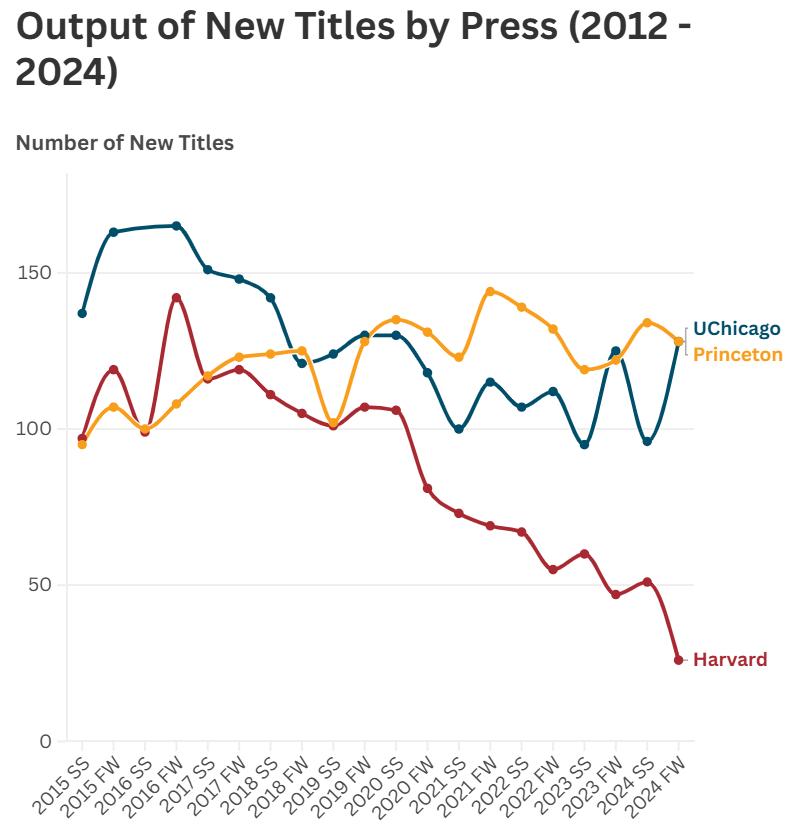
of experience in trade publishing — at the highbrow New York firm Alfred A. Knopf — and set his sights on reaching more readers.
“I think that better taking into account end users, otherwise known as readers, is a worthy goal for any publisher at this time,” Andreou told the Harvard Gazette, a University-run publication, in an interview shortly after his appointment.
Within a year, he brought on a new marketing director and restructured the press, laying off some employees and reassigning others. In interviews at the time, Andreou indicated that he wanted to focus on finding an audience for the press’s books — and finding books that would have an audience.
Then, after nine acquisitions editors departed the press, publishing output plummeted in 2020 — and kept falling.
The decline in published titles was not unusual among academic presses as the Covid-19 pandemic hit. University presses at some peer schools, however, recovered from their pandemic-related dips in output after several months.
HUP did not. Instead, its publishing numbers fell precipitously over the next several years. In fall 2020, HUP published 81 new titles. By fall 2024, just four years later, that figure had dwindled to 26. Throughout his tenure, Andreou has described his vision for the press as publishing “fewer, better books,” according to the former editor’s October 2020 letter and several former employees.
“Academic publishers have to bear in mind what most publishers do, which is that the answer to most things is ‘No,’” Andreou told Harvard Magazine in a 2018 interview. “And the ‘Yeses’ have to have good reasons for them. They have to be the exception.” Andreou took the reins at HUP when the press was experiencing declining profits per title, but the figure has increased since he became director — perhaps a sign that his vision has paid off.
HUP also transitioned to a new distributor in 2024, which may have reduced acquisitions that year.
But overall, the steady drop in new titles published by HUP has led revenue to drop, too — from roughly $20 million in past years to $15 million in fiscal year 2024. Revenue from new books — the “frontlist” — declined by half since 2018.
Several employees said there were explanations beyond Andreou’s publishing strategy for the decline, alleging that HUP’s reputation has suffered under his leadership, discouraging authors and literary agents
from sending work to HUP. In a letter to Garber from December 2020, former executive editor Kathleen McDermott wrote that authors had expressed concerns about the state of HUP, saying they would no longer recommend the press to their fellow authors.
“The Press has a growing reputation among academic publishers for dysfunction,” former executive editor Ian Malcolm, who left HUP in April 2022, wrote in a statement to The Crimson.
Several employees also said the departures of top acquisitions editors and shortened contracts for their replacements have caused a loss of institutional knowledge, which may have further contributed to HUP’s declining output. During Andreou’s tenure, HUP began hiring acquisitions editors on contracts that lasted just two years. The change marked a contract length that is substantially shorter than the many years that editors previously would spend building relationships with authors and finalizing book deals, according to a former employee. Boston University associate professor Anthony A. Jack, an award-winning author, published his first book, “The Privileged Poor,” with HUP, but his second with Princeton University Press instead. Jack said he felt his editor at HUP, Andrew Kinney, could not pursue a final contract for his book as aggressively as he would have liked. He said Kinney’s “hands were tied” and that HUP’s leadership seemed to be restricting Kinney’s ability to pursue the book deal. “There was a vision from the top of what books should be coming out, rather than from the editors putting forth a case for what books they view as contribution to the field,” Jack added. (Kinney declined to comment.) According to the former editor’s October 2020 letter, Andreou “heaped scorn” on Jack’s first book, calling it “barely publishable.”
“The Privileged Poor” went on to win six awards — including the Thomas J. Wilson Prize, bestowed by HUP’s Board of Syndics — and was named one of National Public Radio’s best books of 2019.
‘Morale Is Awful’ In her December 2020 letter to Garber, McDermott alleged that Andreou’s leadership had left many employees demoralized — and that Harvard had failed to protect them.
“I cannot stress enough the sense of despair the vast majority of the press staff feels at this point,” McDermott wrote. “Having worked so long at Harvard, I have watched as my col -
leagues, once proud and excited to work for Harvard, have come to believe that the university’s words about valuing its staff are entirely hollow.”
Former employees cited multiple instances in which, they said, Andreou made pejorative remarks and harshly criticized employees. The editor who wrote to Garber in 2020 alleged that Andreou repeatedly engaged in “scathing and abusive ad hominem attacks” and fostered “a textbook case of a hostile work environment.”
“You just kind of wondered what was going to be the thing that set him off this meeting, and you hoped it wasn’t you,” former HUP publicist Megan Posco said.
When another former publicist went on maternity leave from the press, Andreou said in 2019 that she “abandoned” HUP and that she was not mature enough for a promotion, according to the October 2020 letter to Garber, written a year and a half after the incident allegedly took place.
In another instance, Andreou referred to a former acquisitions editor as a “slob” and repeatedly criticized his appearance to his colleagues, according to two former employees.
And when Sharmila Sen ’92, HUP’s editorial director, sent an email in October 2020 congratulating staff for completing a catalogue during the pandemic, Andreou sent a one-line accidental reply to the entire staff: “Oh, please.” Andreou sent another email two hours later apologizing to Sen and writing that his prior message was “no reflection on everybody’s amazing effort.”
The next morning, Andreou sent another follow-up apologizing to the whole staff for what he referred to as his “uncalled for” email.
But multiple employees who received the email said they felt offended by the message and thought it was emblematic of broader concerns with Andreou’s leadership.
One month later in November 2020, Carrie E. Barbash, the president of the Harvard Union of Clerical and Technical Workers, sent a report to Garber and Harvard Business School professor William C. Kirby, who at the time chaired HUP’s Board of Directors. (Kirby declined multiple interview requests for this
story.)
The report contained the results of 2019 and 2020 surveys of HUP union members that found widespread dissatisfaction and frustration with Andreou’s leadership.
“We have all witnessed his many uncontrollable tantrums in the Editorial Meetings. His presence at these meetings is erratic and his remarks haphazard,” a respondent wrote on the 2020 survey. Respondents were not named in the report.
The 2019 and 2020 surveys had 81 percent and 82 percent response rates, respectively. Roughly half the press’s staff were in the union, according to a former employee.
In the 2020 survey, 100 percent of respondents reported that Andreou’s style of leadership had a “very negative” or “somewhat negative” effect on morale and cross-departmental collaboration within the press.
“Morale is awful. It’s gone so far downhill I’m looking at every avenue to leave Harvard,” a 2019 respondent said. “This environment is so toxic I no longer want anything to do with this place.” As frustrations mounted
in an interview with The Crimson.
Tensions between Andreou and press staff also erupted in the form of political disagreements. On two separate occasions, Andreou and HUP staff found themselves in standoffs over whether the press should issue public statements or shows of support for social movements.
In June 2019, HUP updated its social media profiles with a modified version of its logo in rainbow colors to celebrate Pride Month. But within a week, the rainbow logos were removed — a decision which HUP employees at the time attributed to Andreou and the board of directors.
“We find it troubling that this action was considered too political for HUP, given that LGTBQ+ rights are human rights and should not be considered a partisan issue,” employees wrote in a June 2019 email to press leadership. “Many of us at the Press identify as LGBTQ+ and find the decision to remove the logo and what it symbolizes to be invalidating and discriminatory.”
In 2020, Andreou initially resisted requests from staff mem -
Having worked so long at Harvard, I have watched as my colleagues, once proud and excited to work for Harvard, have come to believe that the university’s words about valuing its staff are entirely hollow.
McDermott Former Executive Editor at Harvard University Press
with Andreou’s leadership, the press experienced significant staff turnover. Of the at least 50 employees who have left HUP since 2018, several who spoke with The Crimson cited Andreou’s leadership as a reason for their departures.
Lindsay E. Waters, a longtime acquisitions editor who spent 35 years at the press, retired early in 2020 over frustrations with Andreou’s leadership.
“I left when I discovered what he was like,” Waters said
bers to publish a statement condemning racism in the wake of the murder of George Floyd, leading to an all-staff town hall held in June.
“I hate for an organization that depends on a certain level of seriousness to be drawn into sloganeering,” Andreou said, according to a recording of the meeting obtained by The Crimson. “I don’t think that’s valuable. To me it feels shallow.”
In both instances, however, Andreou ultimately relented and allowed staff members to
reinstate the logo modified for Pride Month and issue a statement on George Floyd. “I will welcome volunteers for a kind of drafting committee to put this together for our release,” he said during the 2020 meeting.
In a 2023 union report, employees were positive about their experiences at the press, reporting that they enjoy their work at HUP and encounter “caring, empathy, good humor, and kindness” among their colleagues. Most employees reported positive interactions with their managers and HUP as an organization. But a majority disagreed with the statement that “senior leaders create enough opportunities for us to come together as a group to evaluate how we’re doing, what’s working, and what’s not.”
Respondents said that HUP leadership — and, in particular, Andreou and Sen in their positions as director and editorial director — could better communicate the press’s strategy.
“When thinking about conduct in the workplace, many colleagues expressed a desire that HUP staff recognize certain harmful individual and company behaviors that impact morale and productivity, address those behaviors, and model new behaviors that seek to repair harm done,” union representatives wrote in the report.
Zoom Calls and a Leadership Coach
Frustrated employees submitted human resources complaints and sent letters to Garber, who was then serving as the University’s provost and helped oversee HUP. But at least two former employees wrote in letters and six told The Crimson in interviews that the University’s responses did little to solve the problems they identified.
In response to the complaints, the provost’s office sent a management coach, LeahGrace Kayler, in 2020 to work with Andreou on his leadership approach. Kayler met with several editors and solicited responses to questionnaires that asked what was and wasn’t working at the press. In a response, one editor reported that employees felt “undervalued” and that Andreou had “a negative perception” of em -
ployees. Garber wrote in a December 2020 email to Barbash, the HUCTW president, that he believed Andreou had made progress since beginning work with Kayler. (Kayler did not respond to a request for comment.)
“My understanding from George and his leadership coach is that he has made positive strides towards enhancing communication among his senior management,” Garber wrote.
Several employees, however, felt that Andreou’s management issues persisted. In her December 2020 letter, McDermott wrote that the coach seemed like “an exercise in futility” and appeared “to have accepted a false narrative that the problem is employees reluctant to change.”
“Nothing could be further from the truth,” McDermott wrote at the time. “We all had been looking forward eagerly to a new director, new energy, new vision.”
The email Garber sent in December 2020 came in response to the union report shared by Barbash detailing the employee concerns with Andreou’s leadership. In his email, Garber acknowledged the concerns, writing that the report was “disheartening to read.”
Garber also offered to schedule a meeting between Barbash, HUP union members, and the human resourcesrelations team responsible for HUP. He expressed hope that the group would identify strategies for “improving morale and communications within HUP” and “lead to positive changes for HUP employees at all levels.”
In May 2021, a Zoom invitation for the meeting Garber had promised was sent to HUP employees, HUCTW leadership, an HR director, and Lori E. Gross, the associate provost for arts and culture.
At the meeting, the HUP union members and HUCTW leadership shared instances where they alleged that Andreou’s leadership was ineffective and distressing for employees, according to two affiliates present at the meeting.
Despite the meeting, employees said the issues at HUP continued. In 2021, Andreou’s five-year contract was renewed.
In May 2022, the press hosted an organization-wide meet-
ing attended by Garber, Gross, and some members of the Board of Directors, which controls the business operations of the press. The board is composed of University administrators and faculty, as well as publishing executives. But some press employees were not satisfied with the conversation.
Though the meeting was scheduled as a regular checkin, HUP union members submitted questions about “prioritizing staff retention” and improving morale at HUP ahead of time. However, none of these questions were directly asked or answered, according to an email sent from an employee at the time who attended the meeting.
Instead, Garber and the board members “closed ranks around George” and “backed up his vision,” the employee alleged in their email. At the end of the meeting, Malcolm, then an executive editor, sent a message through Zoom criticizing the comments made by Garber and some Board of Directors members as “condescending,” adding that Andreou’s statements were “false, misleading, or too vague to be verifiable.”
“Most of what the others said was condescending and out of touch,” Malcolm wrote. “Goodness. How infantilizing.”
In a statement to The Crimson this year, Malcolm wrote that “it’s not a secret that HUP is an unsettled organization” and that the University has been well warned about HUP’s challenges.
“If the problems amount to a crisis, it’s not one that the university’s administration hasn’t been warned about,” Malcolm wrote.
william.mao@thecrimson.com veronica.paulus@thecrimson.com

After a few brief weeks celebrating Harvard’s decision to resist the Trump administration’s federal funding conditions, more than 80 students and faculty went back to protesting the University on Tuesday, rallying against the decision to end affinity celebrations in the Science Center Plaza.
In speeches, organizers said the decision to eliminate affinity celebrations undermined Harvard’s vow of resistance, and warned that providing the Department of Homeland Security requested information about international students would be repeating the same mistake.
Harvard has until Wednesday to respond to an April 16 letter from the DHS, which threatened to revoke the University’s ability to host international students unless they share information about their protest participation and disciplinary records.
The demands in the letter include information regarding each visa holder’s “known deprivation of rights of other classmates” and “obstruction of the school’s learning environment,” along with any disciplinary actions “taken as a result of making threats to other students or populations or participating in protests.”
The rally was organized by Harvard Students for Freedom, an unrecognized student group formed earlier this month to protect international students from deportation and call on Harvard to reject Trump administration demands “that hinder the Veritas-seeking mission of the University.”
Leo Gerdén ’25, an international student from Sweden, said in a speech on Tuesday that the group would address “two pressing issues”: Harvard’s decision to stop providing support for affinity group celebrations during Commencement and its

looming deadline to answer the DHS letter.
Caleb N. Thompson ’27, who recently began his term as co-president of the Harvard Undergraduate Association, urged Harvard’s highest leadership not to hand over international students’ records to the DHS.
“To President Garber and the Harvard administration, my message is this: you have a choice. The deadline is tomorrow. All of us students have made our voice very clear. We do not want you to send these records to the Department of Homeland Security. Let that be loud and clear,” Thompson said. Administrators, including College Dean Rakesh Khurana, have declined to say whether the University will comply with the
DHS demands.
While Thompson and several other speakers praised Harvard President Alan M. Garber ’76 for fighting April demands sent by the Trump administration to vet faculty hiring for ideology, they said they felt betrayed by the University’s decision to cancel affinity celebrations.
Victor E. Flores ’25, a former Harvard College Democrats president who is active in Latino groups on campus, labeled Harvard’s decision to stop support for the events as a capitulation to the Trump administration.
“When Harvard says we want you to feel that you belong, but we’re going to get rid of a decades-long tradition that celebrates your achievements and those of your family all in the
same breath, we know it’s nothing more than false promises and a willingness to capitulate to these un-American attacks by the Trump administration,” Flores said.
A University spokesperson did not respond to a request for comment for this article.
While the Community and Campus Life office, formerly the Office for Diversity, Equity, and Inclusion before it was renamed on Monday, did not offer an explanation for the decision, it addressed a direct demand of the Department of Education, which circulated a Dear Colleague letter in February threatening federal funding if Harvard did not cancel graduation ceremonies that could separate students based on race.
Flores said the Latinx affinity group would still hold a graduation celebration this year — even if the University would not support it.
“Harvard may not be willing to give us space. That’s fine. It’s not surprising, but we will take up the space owed to us and to our communities while making it a party to remember anyway,” he said.
HUA co-president Abdullah Shahid Sial ’27 said the HUA would try to advocate for affinity group ceremonies to take place on campus anyway.
“You have our word from our side that we’ll do our absolute best to create avenues for affinity group celebrations to still happen on campus,” Sial said.
During the rally, several
event speakers also took direct shots at the Trump administration, arguing the funding cuts and records requests were examples of illegal overreach.
Tova L. Kaplan ’26 and Maia J. Hoffenberg ’26, two Jewish students, said the Trump administration’s attacks on Harvard were unrelated to protecting Jewish students.
“When the Trump administration mistakenly sends a letter on April 11 demanding ideological loyalty tests, mass surveillance of campuses, and the policing of foreign students, it is unmistakable. This is not about protecting Jews,” Hoffenberg said.
Kaplan said international Jewish students on Harvard’s campus feel “actively threatened.”
“I can’t count the number of Jewish students who have felt at risk by this environment — international Jewish students who are worried and actively threatened when their visas are at risk,” she said.
Cornell William Brooks, a professor at the Harvard Kennedy School, who was president of the National Association for the Advancement of Colored People from 2014-2017, said he felt obligated to participate in the protest.
“I’m here because I have to be here,” he said. “I have to be at your side when you decided to take on this administration and these constitutionally and morally wrongheaded policies.” Brooks also said Harvard must stand for DEI in the wake of its Monday announcement that it had renamed OEDIB to “Community and Campus Life.”
“We have the administration that has persuaded wise minds to rebrand and rename offices dedicated to diversity, equity, and inclusion,” Brooks said. “As though diversity is somehow wrong. As though inclusion was somehow wrong. As though equity were somehow wrong.”
“There can be no progress without struggle,” he added. “So when Harvard consults with their lawyers, when Harvard has to make a decision, we struggle and we struggle together.”
Meanwhile, 92 percent of Muslim and 61 percent of Jewish respondents, including faculty and staff as well as students, feared academic and professional repercussions for voicing their personal or political opinions — compared to 59 percent for all respondents.
Each task force held roughly 50 listening sessions, reaching hundreds of Harvard affiliates, in the spring and summer of 2024. The reports also included dozens of firsthand accounts — largely anonymous — of antisemitism and anti-Israeli bias, and anti-Arab, anti-Muslim, and anti-Palestinian bias.
Jewish and Israeli students told task force members that they experienced social shunning and hostility from peers who blamed them for the Israeli government’s actions. Some said peers would refuse to talk with them because they came from “a genocidal country” or attend social gatherings where Israeli students were present. Several reported dropping classes they felt were one-sidedly anti-Israel.
Muslim students, meanwhile, said their peers lost jobs over their involvement in Muslim faith organizations and faced verbal and physical abuse on campus. Palestinian students said they found navigating daily life challenging and isolating with the ongoing war in Gaza — a feeling only exacerbated by a perceived lack of empathy from administrators, faculty, and staff. In one account, a Muslim student said an individual poured alcohol over their Palestinian friend as he was standing outside of his dorm wearing a keffi-
yeh, a traditional garment often worn for pro-Palestine advocacy. Another anonymous student recounted being called a “terrorist,” “baby-killer,” “towelhead,” and “antisemite” during their freshman year because of their decision to wear a keffiyeh.
In another account, an anonymous Jewish student intended to speak at a conference about being a grandchild of Holocaust survivors who helped tens of thousands migrate to Israel. But the conference directors rebuffed the speech, laughing in the student’s face and saying the speech was not “tasteful” even though it had no mention of Zionism or the current war in Gaza, according to the account in the report.
The task force on antisemitism and anti-Israeli bias attributed a culture of intolerance to pro-Palestine activism that became more disruptive and less interested in compromise over the past two decades, and a student body that became more racially and nationally diverse but less Jewish.
The report on anti-Arab, anti-Muslim, and anti-Palestinian bias said the atmosphere of fear and intimidation was the product of doxxing trucks displaying pro-Palestine students as antisemitic, and verbal and physical assaults on Muslim, Arab, Palestinian, and pro-Palestine students, as well as perceived indifference from University administrators.
The antisemitism and anti-Israeli bias task force identified “politicized instruction” as a source of intolerance and extensively reviewed student complaints of bias in Harvard’s academic programs. Its report singled out individual
courses — including at the Harvard Graduate School of Education and the Harvard School of Public Health — that it allegedly presented a one-sided view of the Israel-Palestine conflict.
The report also identified specific course texts as objectionable, which it claimed presented false characterizations of Israeli actions in Gaza, described Jewish opponents of California’s K-12 ethnic studies curriculum in antisemitic terms, or minimized Jewish land claims in Israel by presenting Israeli Jews as settlers. Some of the materials were removed from syllabi in subsequent iterations of the courses.
And the report included an extended review of a recording of a webinar jointly organized by HGSE and the Center for Middle Eastern Studies. The report described a moment where one of the panelists seemed to shut down a student’s question after hearing their recognizably Jewish first name. It concluded that the panel discussion “seemed to lack historical and political context essential for a comprehensive understanding” of the Israel-Palestinen conflict.
Many of the groups named in the antisemitism report have been previously singled out by critics as hotbeds of antisemitism at Harvard. In its updated list of demands to Harvard sent April 11, the Trump administration listed CMES and several Harvard schools, including HSPH and HGSE.
The anti-Arab, anti-Muslim, and anti-Palestinian task force, however, raised concerns that some efforts to reshape Palestin-
ian programming — including leadership changes at CMES and the suspension of Harvard’s partnership with Birzeit University in the West Bank — were “potential threats to academic freedom.”
The report described widespread dissatisfaction among Muslim, Palestinian, Arab, and pro-Palestinian students with the University’s response since Oct. 7. Palestinian affiliates said they felt University leaders expressed a “notable lack of empathy” as the war in Gaza raged on. The group also reported allegations that the administration instituted a double standard for pro-Palestinian advocacy stemming from its handling of protests.
The task force also identified significant concern over the administration’s handling of the doxxing of students over their involvement or perceived involvement with pro-Palestine campus advocacy. Members felt the responses, which varied widely across schools, were inadequate and constituted “an especially egregious lapse in Harvard’s duty of care.”
Both reports contained extensive recommendations aimed at addressing the problems identified by the task forces.
The two task forces recommended the University to overhaul its complaint system and anti-discrimination procedures.
The antisemitism and anti-Israeli bias task force urged Harvard to prohibit face masks at protests and “take appropriate action against” unrecognized student groups — an apparent reference to Harvard Out of Occupied Palestine, an unrecognized pro-Pales-
tine advocacy group. The anti-Muslim, anti-Arab, and anti-Palestinian bias task force urged the University to establish consistent guidelines and training for frontline staff on managing protest and counter protest activities. And it recommended that Harvard provide support for affiliates who have been doxxed — including through providing legal support, potentially reimbursing individuals who personally covered legal fees, and advocating for time-limited support after graduation.
The antisemitism and anti-Arab bias task force suggested the University ask applicants in interviews and essays about their aptitude in navigating diverse viewpoints. It also suggested Harvard establish a dedicated research project on antisemitism, develop interdisciplinary courses on antisemitism and Jewish history that could count toward a secondary, and hire new faculty — potentially through a “cluster hire” of multiple instructors — and a chair in Jewish history and culture.
The task force also urged the University to bar staff and non-ladder faculty from creating “partisan projects” under Harvard’s name and implement a “system of accountability” in which schools would be penalized if they failed to effectively supervise programs under their purview. The group recommended that Harvard establish and enforce rules for instructors that would ensure they foster academic freedom, including by considering instructors’ ability to engage with diverse viewpoints in hiring and promotion decisions. The University committed to providing financial support and space for the Louis D. Brandeis Center for Human Rights Under Law, which sued the University for allegedly ignoring antisemitism on campus, to host an annual campus event on antisemitism for the next three years. The anti-Arab, anti-Muslim, and anti-Palestinian bias task force recommended expanding course offerings on Palestinian studies, Arabic language, and Islamic studies, as well as establishing two to three additional faculty positions, including a chair in Palestinian history. Harvard touted its past efforts to recognize Arab, Muslim, and Palestinian affiliates and their concerns, including by updating its guidelines on doxxing and hosting talks on the Israel-Palestine conflict. The University also announced that it would “engage a subject matter expert to undertake a comprehensive historical overview of Muslims, Arabs, and Palestinians at the University.” Beyond that, Harvard did not appear to adopt any additional new commitments in response to recommendations that uniquely appeared in the anti-Arab, anti-Muslim, and anti-Palestinian bias task force report. “The scope of recommendations made by the task forces underscores the breadth of the challenges we face,” Garber wrote in his Tuesday message. “They must be addressed with determination at every level of the University.”
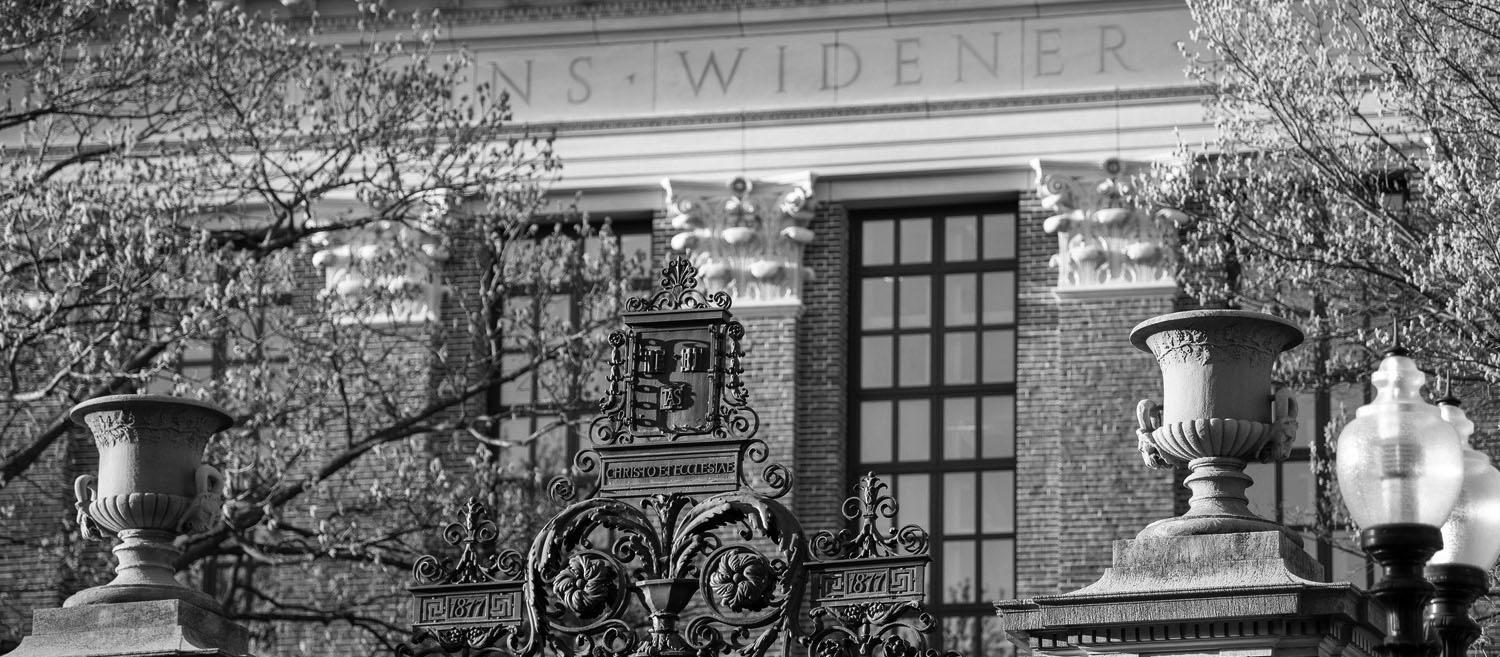
Key findings, from more than 500 pages of data, testimony, and recommendations.
BY WILLIAM C. MAO AND VERONICA H. PAULUS CRIMSON STAFF WRITERS
Being yelled at, spat on, called derogatory names. Taking Ubers for fear of harassment on the street. Dropping classes to avoid hostility or “anti-Zionist bias.” Racist, antisemitic, and Islamophobic jokes on the anonymous social media platform Sidechat. Texts to friends, left unread.
Those were among the experiences that Jewish, Israeli, Muslim, Arab, and Palestinian affiliates alleged they had faced at Harvard in reports from two University task forces, which were released Tuesday afternoon.
Collectively, the reports spanned more than 500 pages. The task forces that produced them each conducted roughly 50 listening sessions, drawing hundreds of students, faculty, and staff, and surveyed more than 2,000 Harvard affiliates.
Each report included anonymized quotes and experiences from Harvard affiliates who engaged in the task forces’ conversations. The reports were sent to school-level administrators for a brief fact-checking review, but the task forces largely did not verify or investigate the incidents recounted in the reports’ pages — many of which had not been previously reported to Harvard.
“We have listened to and are reporting on what we were told,” the antisemitism and anti-Israeli bias task force wrote. “We did not seek counterarguments or counterevidence.” In the reports, the task forces issued recommendations that would touch many corners of the University, from its curricula and disciplinary policies to how Harvard’s central administration oversees programs and schools.
Some of the changes listed in the report have already been instituted, and the University has already committed to implementing more. In an email releasing the reports, Harvard President Alan M. Garber ’76 wrote that deans are compiling “action plans” that they will share with Garber by the end of the semester.
Here are eight takeaways from the reports:
Many Jewish, Israeli, Muslim, Arab, and Palestinian students feel unsafe, socially excluded, and unable to speak their minds.
In survey responses and listening sessions, Jewish and Muslim students reported feeling physically unsafe at Harvard. A survey conducted jointly by the task forces found that 56 percent of Muslim and 26 percent of Jewish student respondents feared for their physical safety on campus. Only 12 percent of Christian and 8 percent of agnostic or atheist students felt similarly. Jewish and Israeli students specifically told task force members that they faced hostility and social exclusion from peers who blamed
them for the Israeli government’s actions. Some said their peers would refuse to attend social gatherings where Israeli students were present or speak with Israeli students.
Muslim students said they faced verbal and physical abuse on campus and that their peers lost jobs for being involved in Muslim faith organizations — even though they had never participated in protests. One Muslim student reported being called a “terrorist,” “baby-killer,” “towelhead,” and “antisemite” for wearing a keffiyeh, a traditional garb often worn in support of pro-Palestine advocacy. Jewish and Muslim students have long reported concerns about bias and discrimination. But the report’s findings represent the most concrete and expansive evidence yet of discrimination against Jewish, Israeli, Muslim, Arab, and Palestinian affiliates at Harvard.
The antisemitism task force extensively reviewed bias in Harvard’s academic programs — and urged the University to manage programs with a firmer hand.
The antisemitism and anti-Israeli bias task force extensively reviewed complaints of one-sided programming at Harvard, writing that “politicized instruction” has contributed to intolerance on campus.
The task force singled out specific course texts as inaccurate or antisemitic, including articles which it claimed falsely characterized Israeli actions in Gaza and described Jewish opposition to California’s K-12 ethnic studies curriculum in antisemitic terms.
The report also specifically discussed several schools and programs, including the Center for Middle Eastern Studies and Religion and Public Life program at the Harvard Divinity School, that have seen significant overhauls in the past several weeks. Harvard dismissed the faculty leaders at CMES in late March over an alleged imbalance in its programming about Palestine, and it announced it would shutter an initiative housed under the RPL program in early April.
The report’s authors wrote that RPL “appears to have focused on non-mainstream Jewish religious perspectives that lack widespread support within the Jewish diaspora or in Israel.”
Notably, the task force addressed HSPH’s partnership with Birzeit University, a school in the West Bank which Harvard severed ties with in March. The group said that instead of terminating the partnership altogether, a “more constructive approach” would have been conditioning continued partnership with Birzeit on adding an Israeli university partner. (Harvard agreed in January to launch a partnership with an Israeli university as part of a lawsuit settlement.)
Many of the schools singled out in the report — including HDS, Harvard Medical School, and the Harvard School of Public Health — were identified by the Trump administration in its April 11 letter of demands as reflecting “ideological capture” and prime subjects for external audits.
The task force appeared to at-
tempt to distance itself from external efforts to change Harvard. In an opening note to readers, the group wrote that the proposed changes must be adopted internally and expressed concern that external interference, even if well-intentioned, could make it harder for Harvrd to reform itself.
The task force also criticized instructors who rescheduled or canceled classes to allow students to attend protests, writing that they should face “significant and lasting consequences.”
“Because of the principle of academic freedom, faculty also have unusual power over their classrooms and over students,” the task force wrote, “and thus there may be a relatively low cost to using part of their authority in the service of pro-Palestinian organizing, whereas a mid-level manager at a major company could risk summary termination if they engaged in political organizing at work.”
Building on its findings, the task force urged Harvard to actively bar affiliates from creating “partisan projects” in programs and implement a “system of accountability” that would hold schools responsible for supervising programs under their purview.
It was not immediately clear what the “costs” of noncompliance would be or whether the University would officially adopt the accountability system. But Harvard did commit to a University-wide review of curricula and the establishment of expectations for instructors that would be considered in “oversight processes,” including course evaluations, compensation reviews, and hiring and promotion processes.
The anti-Arab, anti-Muslim, and anti-Palestinian task force conducted a considerably less extensive review of Harvard’s programming. The group wrote that it lacked the mandate “to adjudicate particular programs or events” and that there is “likely much detail and information that is out of the reach” of the group.
Investigating individual cases could “potentially undermine the University’s own processes, which need to handle these matters fairly and efficiently,” the task force added.
Harvard is considering a center for pluralism aimed at promoting interfaith and interdisciplinary engagement.
In May 2024, the two task forces formed a joint subcommittee on pluralism to study the resources at Harvard for “interfaith engagements, interdisciplinary collaborations, religious literacy, and community building.”
In its final report, the subcommittee recommended establishing a central hub for campus pluralism efforts, through either expanding the Harvard Foundation for Intercultural and Race Relations or creating a new center altogether. The center would reinforce pluralism through programming ranging from orientation and interdisciplinary exchanges to interfaith experiences and campus arts.
The subcommittee also suggested the formation of a new Office of Religious, Spiritual, and Ethical Life “to integrate engagement with reli-
gious identity fully within the work on pluralism.”
The subcommittee was formed after affiliates told the task forces that they felt that diversity, equity, and inclusion offices on campus fell short in addressing concerns in the fallout from Oct. 7. The subcommittee’s authors wrote that Harvard’s diversity offices “largely” prioritized work around race, disability, and sexual and gender identity — which they called important but insufficient for capturing the range of experiences on campus.
Harvard has expanded its academic offerings on Jewish, Israeli, and Palestinian history and will make further efforts to do so.
Both task forces recommended Harvard invest heavily in expanding its education and research programming on the Israel-Palestine conflict, Jewish and Palestinian history, antisemitism, and Islamophobia.
The anti-Arab, anti-Muslim, and anti-Palestinian bias task force suggested Harvard grow its academic offerings on Palestinian Studies, Arabic language, and Islamic studies. It specifically suggested creating a visiting professorship in Palestinian studies by the 2024-25 academic year and establishing two to three additional faculty positions — prioritizing a chair in Palestinian history — over the next five years.
The antisemitism report urged the University to create a dedicated research and teaching program on antisemitism to be led by a newly-appointed faculty member. It also recommended Harvard expand its academic programming on antisemitism and Jewish history in both large lecture courses, such as those in the Harvard College General Education program, and smaller seminars. And it suggested the creation of interdisciplinary courses which could count towards a secondary.
The group also urged the University to hire new faculty — including a chair in Jewish history and culture — to support these fields, potentially through a “cluster hire” of new instructors.
Harvard has already begun taking steps to expand its academic offerings. The Faculty of Arts and Sciences plans to hire a College fellow in Jewish studies for the 2025-26 academic year, publicize an offer for a chair in Jewish history and culture, and launch searches for two professorships in 2025-26.
Harvard did not explicitly commit on Tuesday to hire additional faculty in Palestinian history, despite the anti-Arab, anti-Muslim, and anti-Palestinian bias task force’s recommendation. But it promised to implement “faculty development” and increase “academic engagement” with studies related to Arabic language and cultures, Islam, and Palestine.
Harvard has also committed to partnering with an Israeli university, in addition to existing partnerships with schools in the country today, and dedicating resources to launch a research project on antisemitism.
The task forces agreed that protest policies should be updated, but diverged on how Harvard should change them.
The task forces both reported widespread concerns among students over protest policies and the University’s system for filing complaints of bias. But the reports diverged over how best to ameliorate the issues.
The anti-Arab, anti-Muslim, and anti-Palestinian task forces found that doxxing has contributed significantly to a climate of fear and intimidation on campus. In response, the group suggested that Harvard offer all affiliates, including alumni doxxed in the 2023-24 academic year, free legal services for combating doxxing attacks. It also proposed training sessions on how to combat doxxing for faculty, staff, and students.
The University did not immediately appear to endorse the recommendation, but pointed to updated guidance on doxxing that it released in September 2024.
The antisemitism task force, meanwhile, urged Harvard to ban masks at protests, a move that would allow the Harvard University Police Department to more easily identify protesters who violate University policies. The group argued that enforcing protest guidelines more stringently would ensure demonstrations don’t grade into “harassment, bullying, or intimidation.”
Masking is a common practice at many pro-Palestine rallies, and banning it was a central point in the Trump administration’s demands to Harvard. The recommendation, which has not yet been publicly endorsed by the University, could draw significant pushback from protesters concerned about doxxing.
The anti-Arab, anti-Muslim, and anti-Palestinian bias task force did not come to a conclusion on divestment.
Many affiliates, particularly students, told the Islamophobia task force that Harvard should divest from Israel-related or military firms and make its investments more transparent. Disclosure and divestment have been key demands in pro-Palestine activism on campus for years. The task force did not reach a conclusion about divestment, but some members recommended that discussions continue through conversations and town halls between the administration and affiliates. Other members suggested applying Harvard’s resources to engage with Palestine academically, including through supporting Palestinian universities and facilitating exchanges.
The decision to not make a conclusion about divestment was not particularly unexpected. Even after weeks of chants and rallies demanding disclosure and divestment during the pro-Palestine Harvard Yard encampment last spring, the University refused to budge.
Each Harvard school will review how its admissions policies evaluate candidates’ abilities to
engage with differing perspectives.
The antisemitism report took concern with admission of students who view themselves as leaders with a directive to act, as opposed to individuals open to new perspectives — and recommended reforming admissions policies across all of Harvard’s schools. Specifically, the group recommended prioritizing demonstrated qualities like bridge-building in evaluating candidates, as well as suggested incorporating application questions that evaluate applicants’ aptitude in navigating situations involving different perspectives.
Harvard College has already implemented the recommendation: it required applicants to the Class of 2029 to recount a time “they strongly disagreed with someone” in their written application. But the group recommended expanding such changes across the entire University. The report also suggested asking applicants interview questions about responding to ideas and opinions which differ from their own. And it explicitly urged the University to reject candidates with track records of antisemitism and bias against Israelis based on their national origin.
The task forces had vastly different interpretations of pro-Palestine campus protests.
The antisemitism and anti-Israeli bias task force depicted pro-Palestine campus protests as disruptive to Jewish students’ lives at Harvard. The report criticized recent protests as “raucous, aggressive, and inflammatory” and said that some protest signage was threatening.
The report argued that anti-Zionist protests sometimes “crossed a line from a call for freedom and security for Palestinians and Jews alike to a stereotyped notion: that Israel is not a state, but rather a ‘settler colony’ of white Europeans who have no real connection with the land they had stolen.” In one account in the report, a Jewish student who was involved in anti-Zionist campus organizing said that some protesters glorified Oct. 7 — which they found “triggering and harmful.”
But the anti-Arab, anti-Muslim, and anti-Palestinian bias task force instead reported that affiliates took issue with the Harvard’s response to the protests. The task force wrote that students felt pro-Palestine protests had been met with “disciplinary measures of unprecedented severity.” Students interpreted Harvard’s penalties against protesters as suppression of pro-Palestine speech, the task force wrote.
The report added that several affiliates viewed the Corporation’s decision to withhold the degrees of 13 graduating Harvard College seniors as a “chilling reminder of the consequences Harvard students can face for exercising free speech and engaging in student activism.”

enue streams, and degrees of ex-
travagance at events, resident satisfaction with House social calendars varies across the River and Quad. The Crimson spoke with the HoCo chairs of all 12 upperclassmen Houses about how they prioritize spending to bring House traditions to life.
Financing Festive Formals
Eliot House residents adorned in black tie attire will flock to their courtyard next week — complete with an ice sculpture and live jazz band — to sip champagne and feast on hors d’oeuvres. Eliot’s esteemed annual spring formal, known as Fête, triggers a bustling market of ticket resales surpassing $100 each.
Just a stone’s throw away this Friday, students attending Bacchanalia, Lowell House’s spring formal, will wind their way through wine towers and “firebreathers” — according to emails sent to House mailing lists.
With an advertised “$45K budget,” the cost to throw Lowell’s formal showcases discrepancies between House Committee operating budgets that are little known among students. Several HoCo chairs — tasked with planning semesterly formals, Housing Day festivities, Yardfest block parties, and weekly House-wide events — agreed that much of the House’s social life rests on formals.
“It’s the big event,” Currier HoCo Co-Chair Giovani S. Gomez-Orozco ’27 said of Quad formal.
When the class of 2028 was sorted into their upperclassmen residential Houses last month, they heard a reassuring message from administrators and advising staff: all Houses are created equal. But many House residents spun another narrative — espousing the age-old story that their House is the best — with HoCo members leading the charge.
Roseanne O. Strategos ’25 said that she’s witnessed Winthrop HoCo become more active over the past two years, which she said has directly enhanced her residential experience.
“They’ve been a lot more creative, especially in the past two years, and House community has been doing really really well because of that,” she said. “Having a really active HoCo has really really made the difference.”
But with different budgets, rev-
House formals are a beloved semesterly outlet for Harvard students to let off steam before final exams begin — but they range in location, amenities, and entertainment.
HoCo chairs said they try to pull out all the stops for their formals — from a live band of entirely House residents at Adams’ formal to a live camel promised at Lowell’s Friday bash — but must consider costs in selecting venues and themes.
Kirkland, Leverett, Quincy, and Winthrop Houses traditionally organize off-campus formals, while others like Lowell and the Quad Houses alternate between external venues in the fall and on-campus venues in the spring.
This year, however, Leverett will host their spring formal in the dining hall due to “ever-increasing” venue costs and the hopes for “higher attendance,” Leverett HoCo Chair Hayden Graham ’26 said.
After attending Eliot’s Fête and Lowell’s Bacchanalia, Graham said he was inspired by how the two “transformed their dining halls and made their own Houses into a really beautiful venue.”
“There’ll definitely be a lot more costs associated with getting the dhall to look really nice,” he added. “But I hope that one product of having the formal on campus in our dining hall will be hopefully higher attendance.”
Winthrop House, which has traditionally held their spring formal on a yacht, will be hosting this year’s formal at the New England Aquarium, though they also considered the possibility of hosting on campus.
“A lot of the other Houses have much lower costs for the formals because Eliot is thrown in their courtyard and Lowell is thrown in their dining hall, so their venues basically cost nothing,” Winthrop HoCo chair Kevin Lin ’26 said. “Even if their tickets are pretty cheap, the margins are still pretty high.”
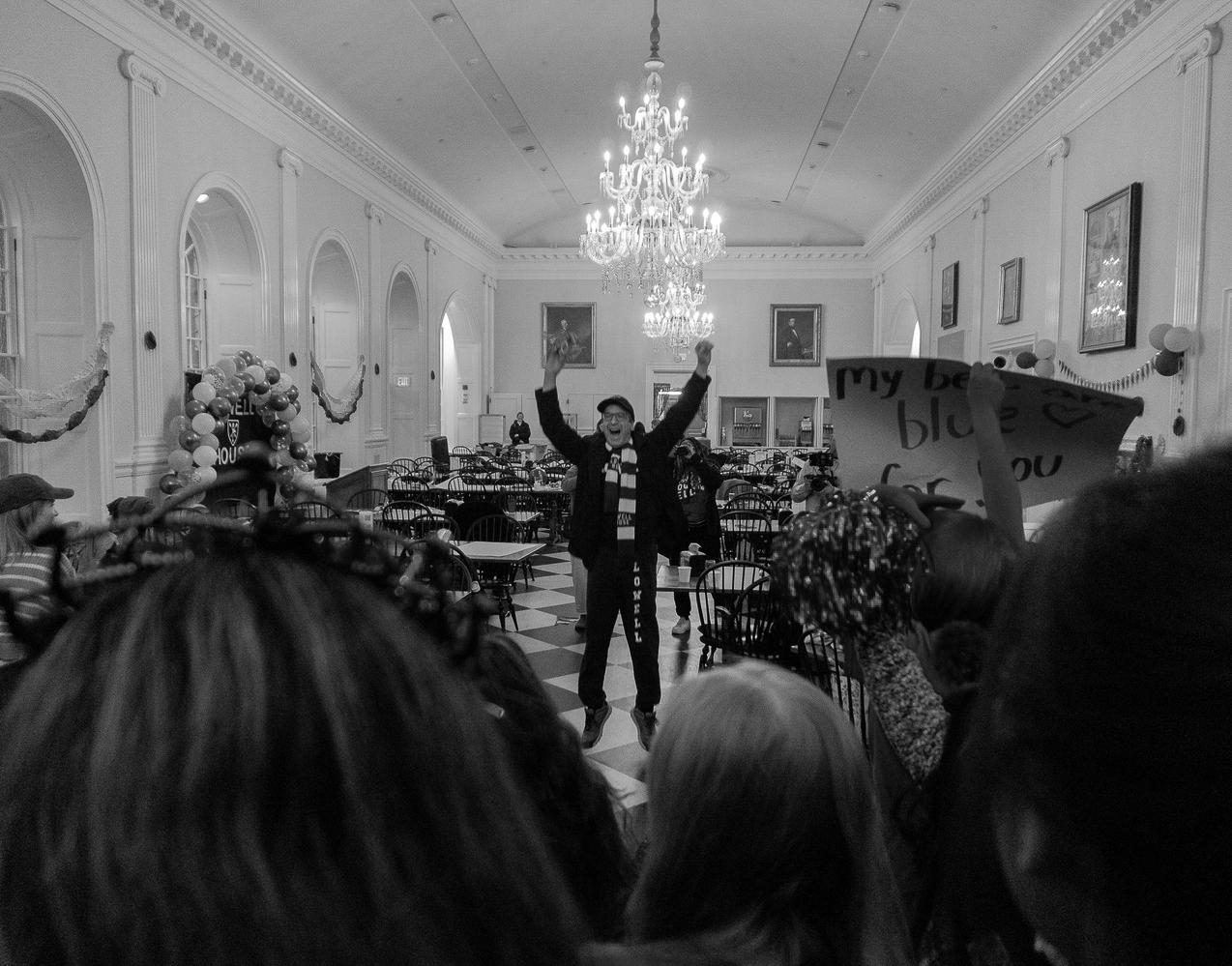
Certain Houses like Adams have solely stuck to in-House formals resulting in “neat secondary effects” of decreasing ticket costs and increased accessibility, said Santiago Pardo Sanchez ’16, an Adams House tutor and former HoCo co-chair.
House neighborhoods, like River East, often collaborate on fall formals because of the “tight community” and funding logistics, according to Mather HoCo Co-Chair M. Faseeh Jawed ’27.
“Hosting an event on your own is much more expensive than dividing by two for an event that is hosted by two houses or three houses,” Jawed said. “That saves up a lot of money for all the other events that we spend on as well.”
Formal ticket sales might be able to make the difference for a HoCo looking to make ends meet. Last semester, Lowell HoCo brought in $20,000 in combined formal tickets and merchandise sales, according to a person familiar with the matter.
Tickets for Yule Ball — Lowell’s winter formal — were sold at $18 apiece, $7 cheaper than the River East formal’s tickets. The Lowell HoCo also sold merchandise at least twice throughout the semester, once with shirts designed for parents visiting during family weekend.
Several HoCo chairs said that formals are not money-making opportunities, as the committees balance high production costs and keeping ticket prices low. Some said they do not turn a profit from House formal tickets.
Pforzheimer HoCo chair Aiden J. Bowers ’26 said that the Quad Houses only make “a little bit of revenue” off of the annual Quad spring formal and Lin said that Winthrop doesn’t “make or lose money” on formals.
“HoCo will fundraise with other small events throughout the year to fundraise for formal,” Kirkland residential tutor Yoseph D. Boku ’21 said. “They’re usually not profiting from those.”
‘Making Use of the Funds’ To finance House formals and events, HoCos primarily rely on a semesterly grant — $7,950 this spring — from the Student Activities Fee distributed by the Dean of Students Office, as well as money collected in House laundry and vending machines. The Crimson reported in October that for the past two academic years, the DSO allocated $204,250 to HoCos.
Despite this equal distribution, HoCo budgets still range significantly from House to House.
Lowell HoCo chair Behruz Mahmudov ’26 said the Houses compiled all the HoCos’ financials and “Lowell had spent the most amount of money last year, and we are expected to spend more this coming year.” When asked how to explain this disparity, he said that “it’s definitely about making use of the funds.”
Though Mahmudov would not specify how much the difference amounted to, he told The Crimson’s FlyBy blog that the Lowell HoCo spends “$10,000 more than all the other Houses.” Under the Undergraduate
Council — the College’s student government prior to the Harvard Undergraduate Association — all HoCos were required to submit their budgets for approval in order to be eligible for $12,000 of House-designated UC grants. In 2016, the UC published the House’s budgets publicly, revealing disparities across Houses.
The HUA does not budget for House-specific funding, and HoCo budgets are not public.
Beyond the SAF, HoCos can generate a few other revenue streams to pad their coffers — including formal tickets, merch sales, and grants.
“There’s not a lot of spaces in which HoCos can make money,” said Bowers, who is a Crimson
events that we have also planned for this year include a petting zoo,” Mahmudov said, adding that Lowell will also use the funds for a bouncy house, laser tag, and outings. In other Houses, student-initiated programming is more commonly applied for by individual students, rather than facilitated applications through the HoCo.
When hosting the second annual “QuinSki” ski-themed party this year, Quincy HoCo worked with the First Year Social Committee to promote the event to freshmen and the FYSC provided a “small grant” for the event, according to HoCo chair Varun Suraj ’26.
Palumbo wrote in a statement
Santos added that he was jealous of Winthrop’s aquarium-based formal.
“I was like, ‘Yeah, that’s so cool. I want to go there,’” he said. “If I can go to it, I will go.” Eliot residents Johnny R. Miri ’26 and Henry P. Moss IV ’26, a Crimson Editorial editor, said that “Fête is by far the best” House formal.
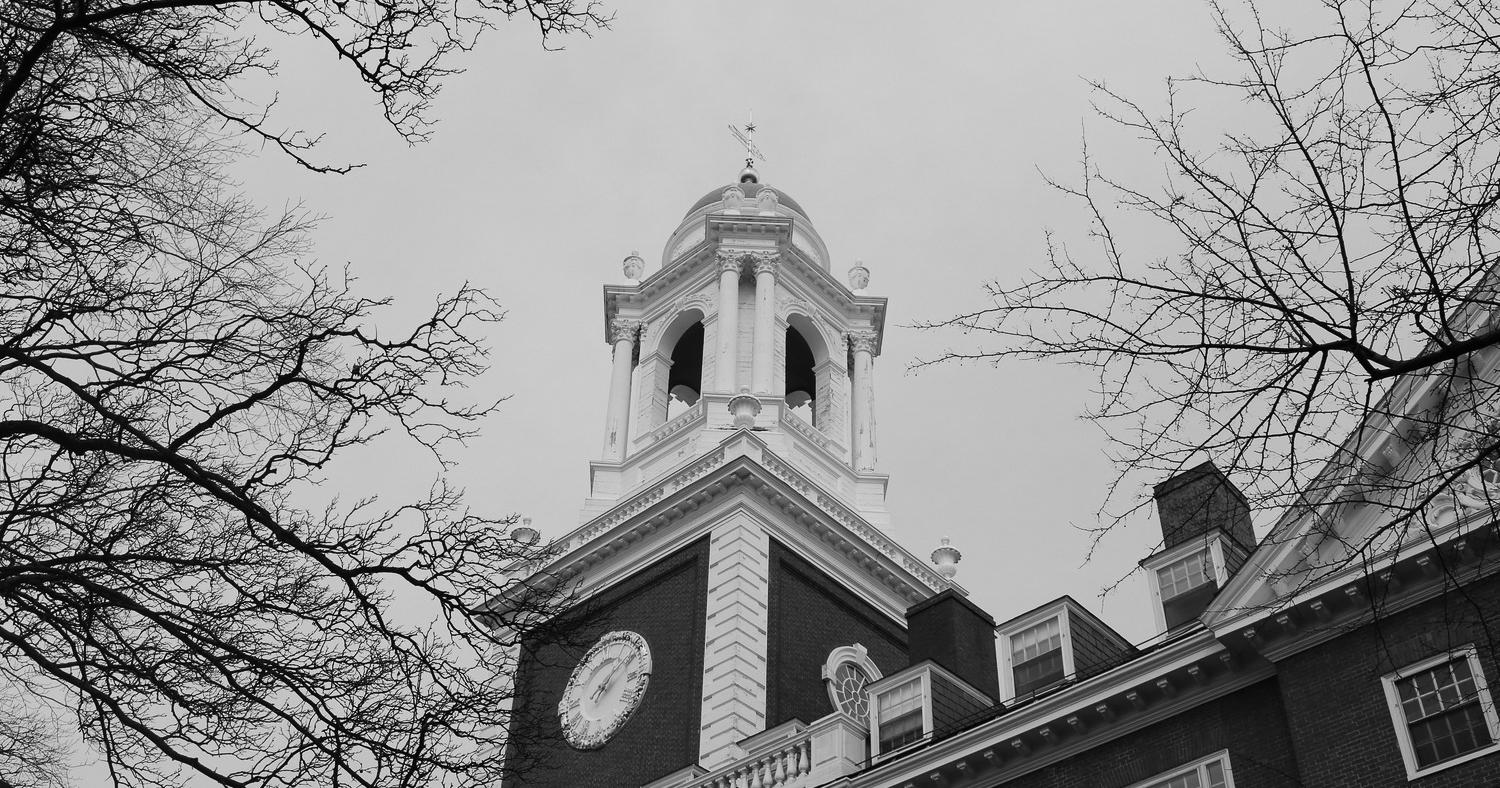
Arts editor. “Formals and merch are basically some of the very few ways that we can make any money to go back into our House.”
Some Houses rely on unique systems to bolster their budgets. Eliot is the only House to charge its residents House dues — a $65 annual fee that covers Eliotites’ two tickets to the House’s winter and spring formal. For freshmen newly sorted into the House, dues are $35.
While House dues are optional, they are the only way to acquire tickets to Eliot’s esteemed formal, Fête. Eliot has billed its residents House dues since 1982, when the dues were just $10.
Eliot HoCo wrote in a Tuesday email to residents that House dues enable “cheaper formal ticket prices” compared to other Houses, and that certain students receiving financial aid can pay for their House dues using the Students Events Fund.
To fund events, some HoCos use external grants such as from the First Year Social Committee and the HUA. While theoretically available to all, utilization of these grants is dependent on HoCo’s individual outreach.
Mahmudov said that Lowell uses “Khurana cash” — or student-initiated programming allocated by the DSO for residential life — to fund HoCo events.
According to College spokesperson Jonathan Palumbo, student-initiated programming is “special funds that can be disbursed by the DSO which is House/Yard funding available to every House in the same amount (if applied for).”
“Some of the Khurana cash
that House-organized parties like Heaven and Hell, Glowell, Mather Lather, and Quinski can receive FYSC funding “based on the individual HoCo’s decision to pursue it as an option.”
Some House tutors also host additional House-wide events, which draw on a budget separate from the HoCo’s. Pfoho tutors host “Hygges” — House-wide study breaks with cider and donuts — nearly every other week, according to Pfoho tutor Lucas Woodley ’23.
“The tutors in Pfoho are super, super active, which I think is really important to how full our social calendar is,” Bowers said.
Kirkland tutors also host weekly Boat Clubs, baking fresh cookies for Kirkland residents every week, according to Joy R. Ho ’26, Kirkland HoCo co-chair.
‘By Far the Best’
Students said House formals showcased the most noticeable differences for students, stirring envy and pride among House populations.
“There’s a disparity between Houses sometimes, like Fête is so much nicer than Adams formal, as much as that hurts to say,” Adams resident M. Muqtader Omari ’25 said.
Omari said he noticed that Fête utilizes “a lot more funding towards the event than a normal formal,” adding that he wishes all the Houses could “get more funding” for formals.
Quincy resident Joao H.T. Santos ’25 said he expects Quincy formal attendees to mostly be its own residents as other Houses are “doing more fun things.”
“We don’t have to advertise on other House lists. Have you ever seen a Fête advertisement on any other House list?” Moss said. “We don’t need to — everyone knows.” Each year, Eliot residents covertly sell their Fête tickets to non-residents, with prices commonly exceeding $100. Miri said that “there’s a big market” for Fête tickets, but declined to name the going rate in order “to protect the market.”
The Fête ticket resale market is so prominent that a student proposed capping resell prices at $115 apiece on the Eliot resident mailing list on Thursday. Strategos attended Fête last year and found it “underwhelming, to be honest,” she said. “I think House pride factors into that one. And the exclusivity of it.” But ultimately, students said they were unfazed by the differences across Houses, expressing appreciation for their own House’s HoCos.
Monae N. Stancil ’27, a member of Adams HoCo, said that it’s “all about” how residents “insert” themselves and engage with House pride.
“Being on HoCo has definitely given me more House spirit,” she said. “How you feel about your House really depends on how you engage with it.”
Sofia H. Detjen ’27, a Quincy resident, said she felt a bigger budget is not the most defining factor for a successful HoCo.
“If anything, it’s the people who are on HoCo who make the biggest difference,” she said. “If you have people who aren’t being creative, who are planning those events with all that money, then you won’t really get anything out of it.”
“Whatever the Quincy budget is, I’m not sure — they do a really good job with it,” Detjen said. Each student proudly concluded their interview with an assertion that their House is the best.
BY JEFFREY A. MIRON AND JACOB P. WINTER
On April 11, the federal government threatened to halt funding to Harvard unless it agreed to dozens of demands, including auditing the views of students and faculty and changing admissions and hiring processes to ensure “viewpoint diversity.” The University declined to accept these demands, stating it “will not surrender its independence or relinquish its constitutional rights.”
The administration responded by freezing $2.2 billion in funding and threatening another $1 billion targeted for health research. This has created a legal battle over whether the government can legally condition funding on such demands. Harvard should, and may, prevail on the legal questions.
We believe, however, that the University should also prepare to give up federal funds entirely.
As libertarians, we suspect the world would be better off without government funding of research — but we set that aside here. In this case, Harvard would actually serve its self-interest by giving up federal money.
Even if Harvard wins its legal battle over existing federal funds, which is uncertain, the risk of future interventions remains; another administration could reinterpret the ruling to allow additional demands or convince Congress to shrink research funding.
Accepting federal funds also makes Harvard vulnerable to interventions that predate the current administration. For example, the Supreme Court ruled in 2023 that Harvard cannot employ race-conscious admissions, basing its decision in part on civil rights law that regulates institutions receiving federal funding.
Eschewing federal money would free Harvard from burdensome and intrusive investigations.
The administration alleges, for example, that Harvard made “incomplete and inaccurate” disclosures of foreign funding and must release all related records, but Harvard would not have to disclose foreign funding if it did not accept federal funds.
Similarly, the House Oversight Committee would have a limited legal basis to demand that Harvard turn over potentially thousands of documents — including internal communications — on 10 broad topics but for Harvard’s receipt of federal funds.
Giving up federal funds would plausibly improve Harvard’s public image. Some of the vitriol directed at the University occurs because Harvard is partially government-funded, and many taxpayers disagree with the University’s statements and policies. Without federal funds, taxpayers would have less reason to care, cooling political tensions and helping Harvard maintain its reputation. Despite these benefits, forgoing federal funds

would be costly and disruptive for Harvard. Its endowment is large — $53.2 billion — but only about $9.6 billion is unrestricted. Similarly, Harvard could borrow against the endowment, but that merely postpones the reckoning.
The University could replace some of the money with donations from industry and individuals; its stance against the Trump administration has already sparked a modest surge in donations, and doubling down might galvanize donors even more. This would help Harvard eliminate the small federal component of its financial aid packages. Any remedy would take time, though, and it would not replace all the lost funding. Harvard could redirect funds to preserve “cutting-edge medical, scientific, and technological research,” but less essential programs would have to shrink. Thus, giving up federal dollars is far from a perfect solution, but it is the only way for Harvard to maintain its freedom.
If the University foregoes federal funding, it must also prepare for other ways the government might intervene. On April 16, for example, the administration moved to revoke Harvard’s tax-exempt status. The University will likely sue, but even if victorious, the precarity of its tax exemption will remain.
The University could avoid this uncertainty by becoming a standard corporation. Its income taxes would likely be low, at least early on, because it would operate at a loss (although it would face greater sales, state, and property taxes). Moreover, it would gain the freedom to spend its income however it wished.
The government may intervene in ways Harvard cannot avoid. Members of Congress have proposed raising the endowment tax, and the administration is threatening to revoke Harvard’s ability to host international students. These policies are unwise and would harm Harvard, but they are independent of accepting federal funds — if anything, the public may be more opposed to these measures if Harvard does not accept federal money in the first place. The current feud between Harvard and the Trump administration is not unexpected. It is the latest climax in a trend of growing federal intervention in Harvard’s affairs. In January last year, increasingly intrusive government investigations led one of us to argue that Harvard should give up federal funding. The government’s latest actions — and the threat to Harvard’s independence — make this measure more urgent than ever.
–Jeffrey A. Miron is a Senior Lecturer on Economics. Jacob P. Winter ’24 is a high school government and economics teacher and a research associate at the Cato Institute.
BY JACOB M. MILLER
Yesterday Harvard finally released its long-awaited report on antisemitism, but, after over a year pondering the issue myself, I was left wondering why the University had commissioned it in the first place.
Across over 300 pages, the authors treat the much-sensationalized issue of antisemitism with the scholarly nuance it deserves. But the report misses a much more fundamental point — the whole debate about antisemitism within Harvard’s pro-Palestine movement fixates on how exactly to define it. This excessive focus on semantics is symptomatic of a larger problem with our politics: We reflexively condemn reprehensible ideologies only insofar as they are racist or hateful — rather than because they’re plain wrong.
I served as Harvard Hillel president in 2023, I’ve read think piece after think piece in The Atlantic and the New York Times’ opinion section, and I’m exhausted by the constant litigation of whether anti-Israel activity is antisemitic. Some of it is, most of it isn’t, but it is definitely wrong for many other reasons.
Eschewing the more fundamental problems with pro-Palestine organizing at Harvard, the task force cites provocative findings like a survey showing one in four Jewish students feel “physically unsafe” on campus — an absurd statistic I struggle to take seriously as someone who publicly and proudly wears a kippah around campus each day. For years now, major Jewish civil rights groups have contended that criticism of Israel frequently veers into antisemitism. In response, Israel’s critics have embraced this framing: Last school year, Harvard Jews For Palestine demanded the University declare that anti-Zionism is not antisemitism, as if such a distinction would absolve them of moral scrutiny. Harvard’s decision to create an antisemitism task force stems from this misplaced discourse, which treats pro-Palestine protests as threatening merely because of their tendency to devolve into antisemitism. And while it is certainly true that there is some correlation between anti-Zionism and antisemitism — and that Harvard’s pro-Palestine movement has persistently proven capable of succumbing to despicably hateful beliefs — this characterization of pro-Palestine organizing misses half the story. Take the Harvard Undergraduate Palestine Solidarity Committee’s infamous statement blaming Israel for the slaughter of its own people. Was the statement offensive? Surely. Did it reveal an astonishing misunderstanding of the conflict? I would say so. Did it fundamentally change how I see my classmates and make me seriously question their moral compasses? Most definitely.
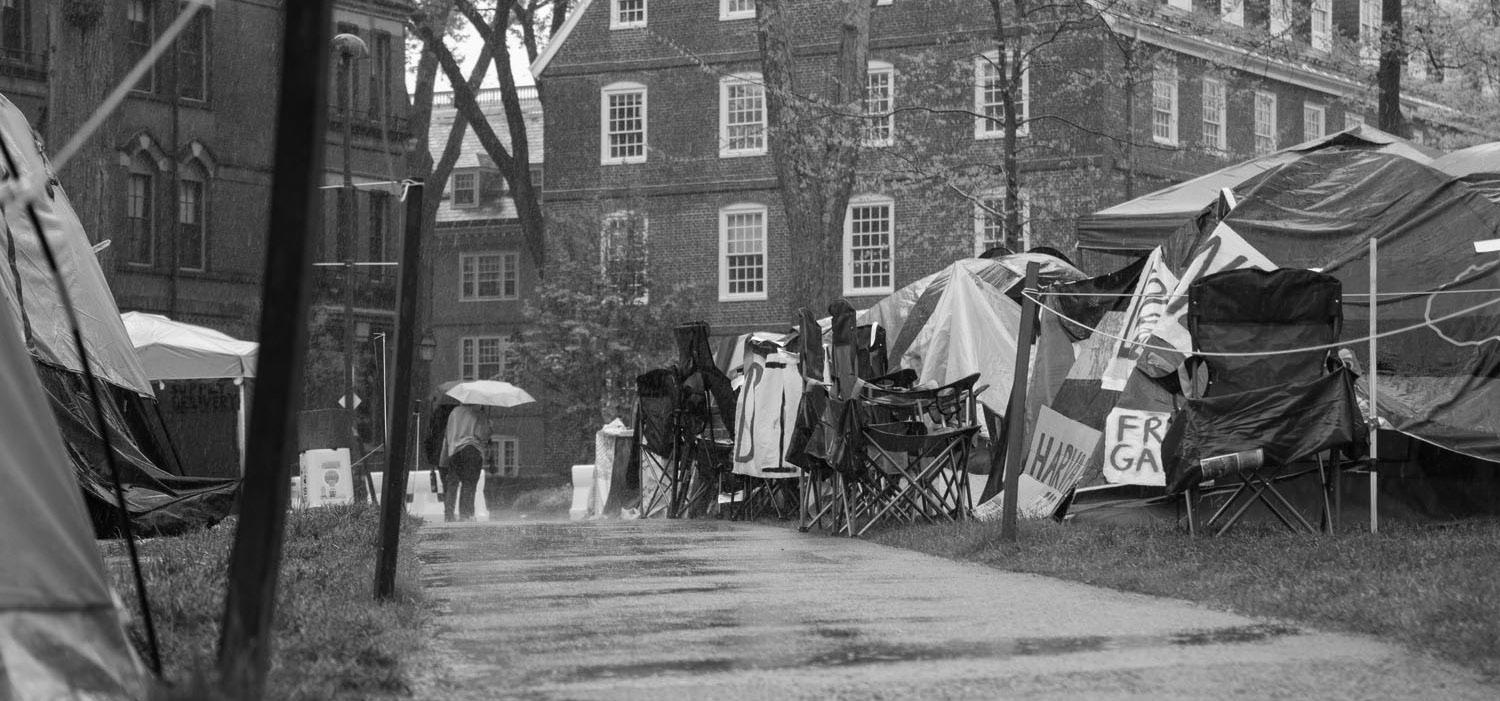
But was it antisemitic? I suppose one could argue that it was — it did, after all, betray a disgraceful disregard for Jewish life. But to me that argument seems tenuous. Instead I content myself with calling the statement what it was: a stunningly shameful act for which, to my knowledge, no one in Harvard’s pro-Palestine coalition has apologized to this day.
A similar case can be made about chants like “globalize the Intifada” — an insensitive refrain protesters have used repeatedly despite the violent history it invokes. While not directly antisemitic on its face, the chant apparently references two previous waves of violence in which Palestinians killed hundreds of Israelis, including civilians. By calling for the Intifada’s globalization, protesters appear to be glorifying massacres and can reasonably be interpreted as threatening to unleash worldwide violence. This argument extends to anti-Zionist ideology as a whole. While anti-Zionism may or may not be antisemitic depending on how you define your terms, there is a whole host of separate reasons for which one could object to anti-Zionism nonetheless. For religiously literate observant Jews like myself — who chant the liturgical refrain “next year in Jerusalem” every Yom Kippur and Passover and have studied the Mishnaic tractates regulating agricultural practices in the Land of Israel — anti-Zionist ideology attacks a fundamental Jewish ideal and ignores the many religious commandments that can only be fulfilled in Israel.
Beyond Israel’s religious significance, there are many other sensible objections to anti-Zionist ideology. For one, its adherents too often neglect Jewish historical connections to the land. More disturbingly, they ignore the fate of nearly half the global Jewish population living in Israel, who would likely face persecution under any other regional power. Indeed, a plurality of Israeli Jews are Mizrahi, meaning of North African or Middle Eastern descent — many of whom hail from families that fled to Israel to escape intolerant regimes.
If we define antisemitism as animus towards or discrimination against Jews, these objections to anti-Zionism don’t directly imply that anti-Zionism is antisemitic. But anti-Zionism can still be deeply wrong without being antisemitic.
There is a reason Harvard created twin task forces on antisemitism and Islamophobia — not a “Task Force on Callous Statements Disregarding Human Life,” or a “Task Force on Violent Protest Chants,” or a “Task Force on Stupid Political Ideologies That Could Open Up Millions of People to Religious Persecution.” It’s because we as a society have agreed identity-based discrimination is morally wrong, but have struggled to reach a consensus that any other way of thinking is unethical.
My point is not that Harvard should actually set up task forces to investigate all the different failings of Harvard’s Pro-Palestine coalition, or even to convince you that their other actions deserve the same level of condemnation as outright identity-based
hatred. It’s that our national politics, which rightly protects identity groups from prejudice but hasn’t adequately articulated other moral wrongs, has created a twisted incentive structure — one in which Jews on campus feel compelled to characterize certain behaviors as antisemitic because they know that is the one sin campus will surely condemn. In reality, opposition to pro-Palestine organizing at Harvard should be based on more than its antisemitism. Our excoriation of the movement should be based on protesters’ simplistic thinking, extremist rhetoric, implicit justification and support of violence, and denial of Jewish religious teaching and history.
But as long as we continue believing that groupbased prejudice is a singular moral sin — that Harvard’s antisemitism task force is the sole body capable of pronouncing moral judgments on pro-Palestine organizing at Harvard — we will be locked into a semantic debate about antisemitism entirely missing the numerous other issues at play. Antisemitic or not, the pro-Palestine movement’s vision for Israel would be a travesty for Jews. It’s high time we abandon the talking points about double standards and defend the principle of a Jewish state on its own terms.
– Jacob M. Miller ’25, a former Crimson Editorial chair, is a double concentrator in Mathematics and Economics in Lowell House. He served as Harvard Hillel president in 2023.
BY DALEVYON L.J. KNIGHT
Whether it’s the Trump administration or Harvard’s leaders, there’s no use trying to order away students’ ideas.
Yesterday, Harvard informed student groups that the University will no longer officially provide funding, staffing, or spaces for Commencement affinity celebrations. This announcement follows the University’s decision to rename Harvard’s Office of Equity, Diversity, Inclusion, and Belonging to the Office of Community and Campus Life.
Harvard is wrong to yank support from affinity celebrations and DEI — which is all the more reason affinity groups should proceed with their ceremonies as usual.
Commencement affinity celebrations highlight all of the diverse communities and identities of Harvard’s student body — especially identities that were historically excluded from our halls.
Just last year, Harvard had 10 affinity celebra -
tions for the Class of 2024, including celebrations for Arab, Black, Indigenous, Latinx, first-generation, low-income, and Asian American, Pacific Islander, and Desi graduates, in addition to LGBTQ+ graduates, Jewish graduates, veterans, and graduates with disabilities. Many students treasure these celebrations as a way to connect with their communities and celebrate their achievements in the context of their backgrounds. Given that these celebrations are so important for many students’ lives and Commencement experiences, why should Harvard break away from tradition now?
Still today, Harvard’s student body is not as diverse as it seems. Roughly a quarter of members of the Class of 2025 come from households earning more than $250,000 annually, per The Crimson’s freshman survey. While this graduating class has a high percentage of students who identify as Hispanic or Latinx and Black or African American, over half of the students in this year’s graduating class still identify as white, consistent with previous years. Considering the persistent marginalization of first-generation, low income and minority stu-
dents on Harvard’s campus, it is especially important for these students to have a way to commemorate their particularly notable achievement.
Opponents argue that these celebrations are unfair because they give some students special ceremonies while excluding others. But these celebrations aren’t official parts of Commencement or substitutes for University-wide ceremonies. Rather, as the Graduate School of Arts and Sciences emphasizes, these events merely “affirm the diversity of cultures, communities, and identities present at Harvard” before official celebrations take place.
It’s hard to ignore the elephant in the room: The reversal of University support for these celebrations comes in the context of a federal funding freeze precipitated by Harvard’s choice not to comply with demands from the White House. To his credit, University President Alan M. Garber ’76 has defended student diversity in the past, and, of course, filed a lawsuit against the Trump administration. But now, affinity groups are left in the dark. It
seems that Harvard is willing to concede on diversity issues without regard to student opinion.
Nonetheless, affinity groups can and should still ensure that these celebrations take place during Commencement. Groups ought to coordinate with each other to figure out logistics of each celebration and publicize their
If more funding is
Harvard alumni should support their efforts. Affinity groups should also celebrate their achievements even more than in past years. With diversity under attack from all fronts — and Harvard’s perceived concessions to this assault — it is important now more than ever for students to celebrate with the communities that have shaped them into who they are. At the core of this institution is its diverse student body. Let’s make sure we still celebrate it this Commencement.
–Dalevyon L.J. Knight ’27, an Associate Editori-

BY ALLISON P. FARRELL
Ilove bureaucracy as much as the next Harvardian. After all, how else would we manage our lives without countless forms, contracts, and deadliness?
But recently, that system — specifically the club recognition process — has apparently been exploited for more sinister ends. Rather than requiring official recognition for groups to access campus resources and spaces, the University should allow all students to organize freely, while holding individuals, not entire groups, accountable when rules are broken. In theory, recognized student organizations enjoy clear benefits, including access to campus spaces, the ability to recruit at fairs, advising support, use of the Harvard name (within guidelines), and financial support. However, in practice, these groups operate largely independently of the University, and official recognition often acts as a gatekeeping tool that limits who can speak and organize. Some unrecognized groups have managed to navigate these barriers. The African and African American Resistance Organization, Harvard Vote Socialist 2024 campaign, and Harvard for Harris were able to host events in Harvard spaces last fall. Other times, they have not been so lucky.
In March, AFRO received a warning from the Adams House Resident Dean for attempting to host a meeting there without official recognition. In April, Harvard placed the Harvard Undergraduate Palestine Solidarity Committee on probation, partly for purportedly co-sponsoring a protest with unrecognized student groups and violating sound amplification rules.
These sanctions raise a serious question: Is Harvard’s process of club recognition really about maintaining community standards, or is it a mechanism that limits dissent?
If it is the latter, the College ought to make substantial changes to how it allows students to create groups. Students should be able to associate and organize without overbearing administrative oversight. They should be able to be changemakers without first asking for permission.
Of course, Harvard can and should enforce basic standards of safety, noise, and conduct, but enforcement should target individual violations, not preemptively restrict whole groups from existing. Harvard does not need to provide funding to any organization that asks, and it is understandable that Harvard wants to limit the use of
its name to prevent deceptive advertising by student groups. However, when it comes to access to common spaces and the ability to host events, recognition does not serve a legitimate purpose.
The University is more than an academic institution — it is our home and in many ways, more like a small town. It is where we live, sleep, and eat, and it is the nexus of our social lives for four years.
Students should be allowed to form groups and to use University spaces without administrative obstacles, which sometimes lead to situations where student activists who rely on the ability to form organizations, such as the PSC, are effectively denied a voice on campus altogether.
Harvard’s current system uniquely disadvan-
tages activist groups: new issues arise that benefit from the creation of new groups to address them. When a new cause comes to the forefront of politics, or when serious disagreements emerge within political groups, the College should make it as easy as possible for students to respond to the urgency of the moment. Moreover, even when existing organizations exist to advocate for a cause, different approaches can warrant the creation of new groups at short notice to account for diverging perspectives. To stop recognizing student organizations is not a license for complete lawlessness. Students must still abide by the rules set by the College. If we find that unrecognized student organizations are guilty of dangerous activity or offensive behavior, then we should hold the students involved accountable, but this does not mean the College should penalize organizations wholesale. When Harvard makes it impossible to organize without first obtaining the consent of administrators, it quells nascent protest movements and makes it harder for students to be changemakers. Bureaucracy might be great fun when used appropriately. Requiring administrative approval to use spaces that are, in a real sense, ours, runs counter to what our community should be about.
–Allison P. Farrell ’26, a Crimson Editorial editor, is a Philosophy concentrator in Leverett House.

POLICING. Elizabeth Speakman’s departure follows tensions between two policing alternative programs.
The director of Cam -
bridge’s Community Safety Department is resigning after more than two years in the role — the latest turn for a department that has found itself embroiled in behind-the-scenes turmoil with the city’s police department.
Elizabeth M. Speakman, who was appointed as the department’s inaugural director in February 2023, confirmed in an interview with The Crimson that she is leaving her position this Friday. Speakman will transition to serve as the interim executive director of the nonprofit Boston Area Rape Crisis Center.
Speakman’s departure, which she said had been planned for several weeks, comes on the heels of flaring tensions between her fledgling department and the Cambridge Police Department over dual programs within the city that send civilian responders to 911 calls instead of just police.
CSD’s Community Assistance and Response Engagement team — which sends unarmed mental health clinicians and social workers to certain 911 calls — formally rolled out in July.
But the CARE team quickly ran into overlap with a similar effort launched by the police department’s co-response team, which pairs an unarmed mental health clinician and an armed police officer and can attach to any 911 call.
A Crimson investigation found that overlap between the
two teams’ responsibilities and a lack of coordination between their launches led to persistent friction between the departments. According to emails obtained through a public records request, city leadership had been made aware about worries over the overlap between the CARE and co-response teams for months.
At a Monday hearing in front of the Cambridge City Council, Speakman acknowledged the tense relationship between CPD and CSD. The co-response team sometimes responded to the same calls as the CARE team, she said, and 911 dispatchers were often reluctant to assign calls to the CARE team.
Speakman said that dispatchers were often “habitually sending” CPD to calls that fall under the CARE team’s purview.
“And so creating a new habit was something that we wanted to work on,” Speakman said. The CARE team has been dispatched to an average of just 45 percent of eligible calls for much of the time since its launch, Speakman told councilors.
In an interview, Speakman cited this friction as both an “inevitable” part of CSD’s mission and a factor in her departure. “Our mission is meant to create tension and create a sense of disruption, and so if we’re doing it right, we’re really disrupting the status quo,” she said. “We’re going to cause tension. We’re going to create tension. We’re going to find ourselves in the midst of a lot of tension.”
But “there’s a point at which it’s not sustainable,” Speakman added.
Speakman, who entered City Hall in 2014 as a coordinator for Cambridge’s domestic violence prevention effort, played a crucial role in CSD’s establishment and growth.
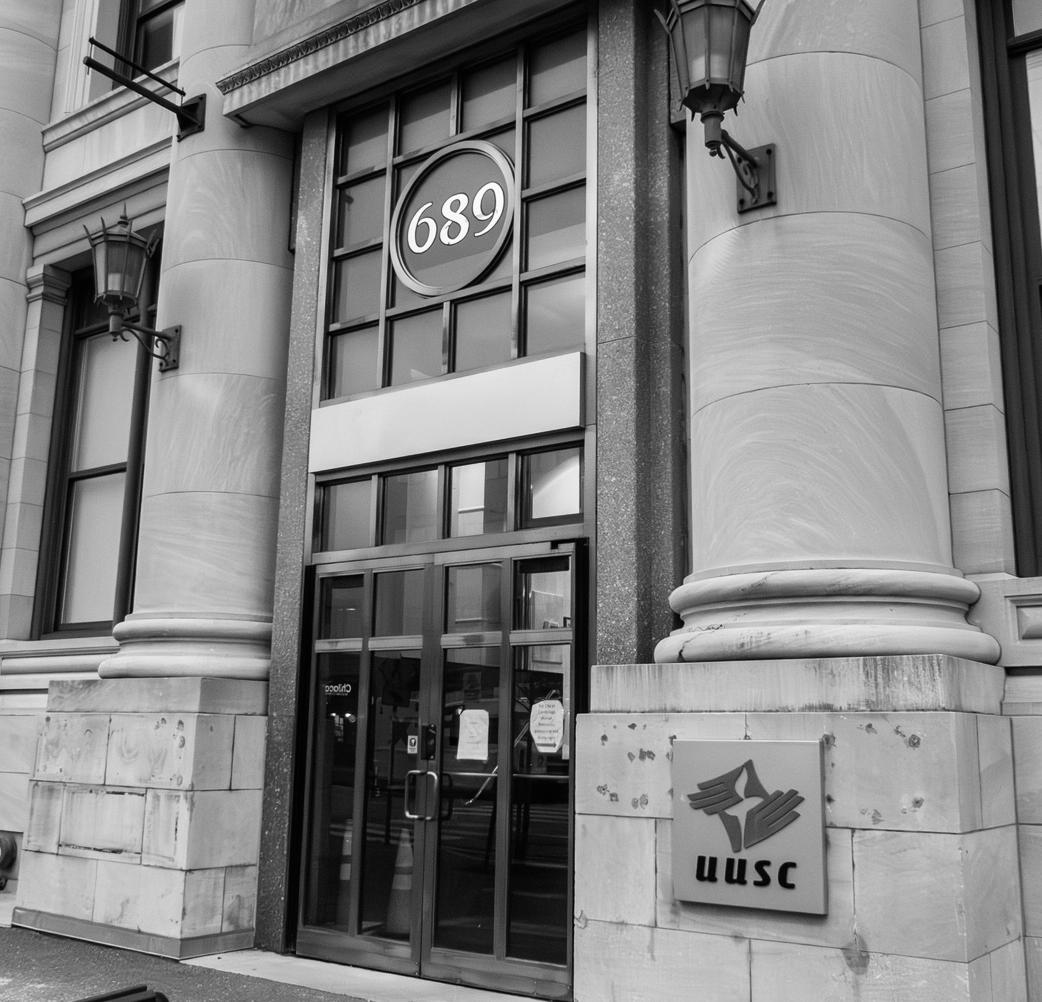
The CARE team responded to more than 200 calls within the first six months of its launch, nearly all of which were resolved without the police being called, according to a department report published last
week. “I am just leaving with a sense of pride that the disruption we’ve caused has resulted in the existence of a team that is going out every day and changing people’s lives for the better,”
Speakman said. Speakman’s departure was first announced in an April 17 email to city staff by City Manager Yi-An Huang ’05. “She has done an incredible job setting vision, building a
team, and establishing partnerships,” Huang wrote. “We are a stronger public safety team because of her work.”
laurel.shugart@thecrimson.com matan.josephy@thecrimson.com
mains in the detention center.
Kseniia Petrova, a Harvard Medical School researcher detained by Customs and Border Patrol officials in February, denied lying to authorities about the contents of her luggage in a Thursday statement.
“I never provided false information to any government official,” Petrova wrote.
Officials arrested Petrova in Boston Logan Airport after she allegedly failed to declare frog embryos she was attempting to bring into the country for her research. She has been detained in Louisiana for almost three months, with a growing list of lawmakers calling for her release.
Petrova wrote that during her primary inspection, she was admitted with her J-1 scholar visa and received an admission stamp in her passport. But she
claims officials never asked if she had any “biological material” with her.
Petrova added that CBP officers inaccurately recorded she had been questioned about the contents of her baggage. But despite alerting officers to “that and other inaccuracies in the written statement,” Petrova claims the mistakes were not resolved.
“Some of my words were misunderstood and inaccurately reflected in the statement that the officer presented for my signature,” Petrova wrote.
“I pointed them out and asked the officer to make corrections,” she added. “I believed she was doing so as I saw her typing. Later, when I reviewed the document I signed, I realized the changes had not been made.”
She also wrote that officials may have been given a “misleading impression” of her because of text messages to her
colleagues that authorities read and her “nervous laugh.”
“I am a nerdy 30-year-old scientist who typically works 10 to 12 hours a day,” she said. “I have a nervous laugh that sometimes makes people think I’m irreverent. It seems U.S. authorities took that as some indication that I was being disrespectful.”
A DHS spokesperson contradicted Petrova’s account in a statement to The Crimson, claiming she was “lying to federal officers.”
“A subsequent K9 inspection uncovered undeclared petri dishes, containers of unknown substances, and loose vials of embryonic frog cells, all without proper permits,” they wrote.
“Messages found on her phone revealed she planned to smuggle the materials through customs without declaring them. She knowingly broke the law and took deliberate steps to evade it.”
Petrova clarified that she had
brought the frog embryos from the Institut Curie in France at the request of her employer to “complete ongoing experiments in the United States.”
“Because these embryos are non-toxic, non-hazardous, and non-infectious, I did not expect any issues in bringing them into the country,” she wrote.
Petrova takes “full responsibility for not properly declaring the frog embryo samples” and wrote that she should have reviewed the requirements for bringing biological material into the U.S.
But Petrova admitted she was more concerned about the quality of the materials and successfully continuing her research.
“As a scientist, I was more focused on getting the samples to the lab before they degraded to ensure we could continue the experiment,” she wrote.
As she approaches her third month in custody, Petrova wrote that she is confused why she re -
“What I do not understand is why the American officials say I am being held because I am a danger to the community and a flight risk,” she wrote.
Petrova described the living conditions of her detention in a PBS interview last week, detailing an overcrowded facility without adequate heat and a lack of privacy.
“It’s 90 women in one room,” she said. “Almost all the space of the room is occupied by beds, which are staying really very close to each other. There is not any privacy here. Our bathroom space with shower and toilets is also in our room. It is always very cold inside. They’re keeping temperature low.”
Petrova’s preliminary hearing is scheduled for May 7, with a follow-up hearing date in July.
Petrova, who has conducted research in the country since May 2023, wrote that she is “sincerely grateful to the United States” for the opportunity pursue her work.
“I have had the privilege of working at one of the world’s leading universities, conducting biomedical research aimed at early cancer detection and saving lives,” she wrote. Despite growing national concerns about her detainment, Petrova says her research remains her priority.
“I only want to be in the lab working on research,” she wrote. “That is my life’s purpose. That is what I’m all about.”
The court will either order her release or her return to Russia, where she was arrested in 2022 for protesting against Russia’s war in Ukraine. Petrova previously said that she is scared to return to Russia, and lawmakers have warned against her deportation as it would “endanger her life.”
megan.blonigen@thecrimson.com
Harvard Grad Students Will Not Face Trial for 2023 Protest Incident
assault and battery,” she said.
Two Harvard graduate students facing assault charges over a confrontation at a pro-Palestine protest 18 months ago will not face a trial, Boston Municipal Court judge Stephen W. McClenon ruled on Monday.
Graduate students Elom Tettey-Tamaklo and Ibrahim I. Bharmal were charged with assault and battery in May — a charge that typically results in more than a year of jail time — after a confrontation at an October 2023 die-in protest at Harvard Business School. In a video of the incident
that gained national attention, Tettey-Tamaklo and Bharmal are seen approaching Israeli HBS student Yoav Segev, who was filming the protest, and blocking his camera while escorting him away from the protesters. Segev can be heard saying “don’t touch me” to protestors on the video, though lawyers for the two graduate students have argued that Tettey-Tamaklo and Bharmal did not make physical contact with Segev. McClenon’s decision — ordering both men to participate in pretrial diversion programming that allows them to avoid traditional criminal proceedings — comes nearly a year after prosecutors first filed charges
over the HBS confrontation.
At the hearing, Suffolk County Assistant District Attorney Ursula Knight, the prosecutor, urged McClenon to require written statements from Tettey-Tamaklo and Bharmal to “acknowledge wrongdoing” along with apologies to Segev.
Defense attorneys Monica R. Shah and Naomi R. Shatz argued that requiring these statements would force an admission of guilt from the defendants despite not going to trial — which Shah argued was “antithetical” to the goal of pretrial diversion. In a statement after the hearing, Suffolk County District Attorney Kevin R. Hayden reiterated Knight’s position that Segev “is an entirely innocent victim.”
“He did nothing wrong leading up to this incident and nothing wrong during this incident,” Hayden wrote, adding that “our request that the defendants in this matter issue an apology and an admission of wrongdoing was entirely appropriate and reasonable.”
Though the defense recommended that Tettey-Tamaklo and Bharmal complete a Harvard-run negotiation course as a part of their diversionary programming, Knight argued during the hearing that programming should focus on holding the defendants “accountable for their wrongdoing.”
“This isn’t a discourse that fell apart. This was a hands-on
But McClenon, the judge, sided with the graduate students, requiring both to complete anger management programming, a Harvard course on negotiation, and 80 hours of community service — without the court-mandated apology that the District Attorney’s office had requested.
Tettey-Tamaklo and Bharmal will spend the next 90 days completing these programs, but both will avoid criminal conviction. They are set to reappear for a hearing evaluating their progress in July.
Monday’s ruling follows months of failed attempts at reaching an agreement outside of court.
Bharmal and Tettey-Tamaklo pleaded not guilty to the charges in November, more than a year after the protest. In the five months since, three status hearings have been ordered as the two sides struggled to come to an agreement over the specific terms of a pretrial diversion. “We are pleased that the court agreed with us that a diversion was the appropriate resolution of this case,” Shatz, one of the lawyers for Bharmal and Tettey-Tamaklo, said after the hearing. “Our clients look forward to moving on with their lives.”
laurel.shugart@thecrimson.com matan.josephy@thecrimson.com
BOSTON. For the 13th year in a row, Harvard failed to fully make its requested Payment in Lieu of Taxes to Boston.
BY ANGELINA J. PARKER AND EMILY T. SCHWARTZ CRIMSON STAFF WRITERS
Harvard failed to fully make its requested Payment in Lieu of Taxes payment for the 13th year in a row last year, according to City of Boston data released last week. The new data – released six months after its usual release in early fall — comes as the Boston PILOT program is mired in uncertainties. A yearlong renegotiation of its payment formula has shown few signs of progress, while the Trump administration has threatened serious funding cuts against several of its participants, including Harvard and Massachusetts General Hospital.
Harvard is also facing the potential revocation of its tax-exempt status by the Internal Revenue Service, in response to its defiance of a slew of demands from the Trump administration. In such an event PILOT would no longer apply to Harvard, although the revocation of nonprofit status would almost certainly face legal challenges.
Such uncertainties are a challenge for both Boston and Cambridge PILOT programs that hope to see Harvard pay more in new commitments.
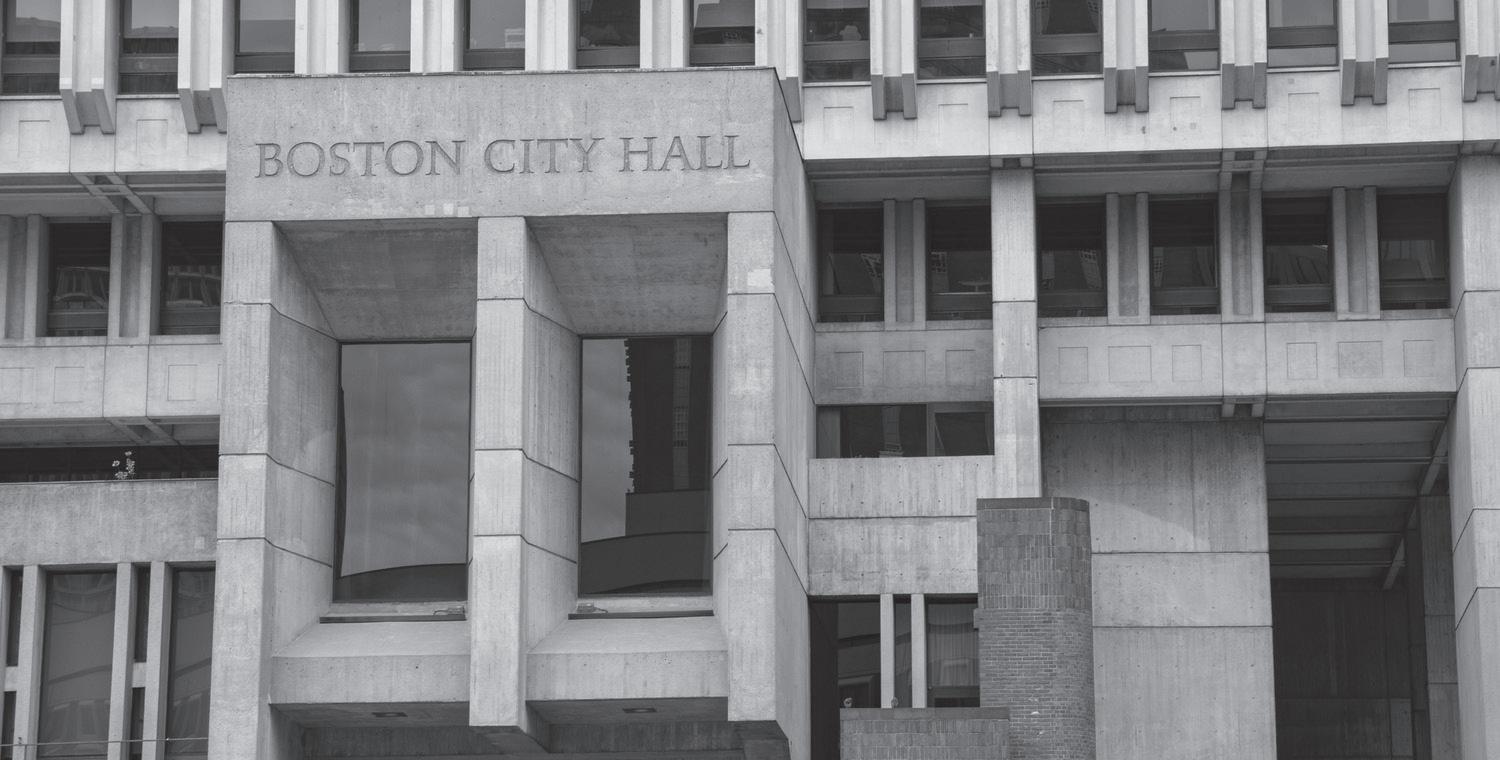
The City of Boston did not immediately respond to request for comment.
According to Eckstein, the city “moved towards reporting around Labor Day or September” after the Covid-19 pandemic, “And so that’s what we were expecting. And we met with the city multiple times, and consistently at every meeting said, ‘Can you please at least give the numbers?’”
“Our ability to advocate and hold these institutions accountable very much depends upon a clear and transparent understanding of the numbers,” Eckstein added. The 2024 PILOT program did not request substantially different amounts in funding than years past. However, the city did cancel funding requests for six museums, including the Museum of Fine Arts and the New England Aquarium, under the agreement that they would provide free admission on select Sundays for Boston schoolchildren.
Harvard spokesperson Amy Kamosa wrote in a statement that the University “engages with the City of Boston in a variety of important ways.” She cited that in addition to PILOT, Harvard provides programming for Boston residents and pays municipal taxes on non-exempt property. In a recently reached PILOT agreement with the City of Cambridge, Harvard committed to pay $6 million for a single year as the full renegotiation continued, with City Manager Yi-An Huang ’05 citing federal funding threats as a factor for the delay.
would be difficult to finalize a longterm PILOT agreement in time for the upcoming fiscal year.”
PILOT programs ask large nonprofit institutions that hold significant land in the city to pay a fraction of what they would otherwise pay in property taxes. The tax-exempt status of wealthy hospitals and universities means that their often large and valuable land holdings deprive the city of the property taxes it depends on to fund its budget.
“As the Council is aware, we are seeing an unprecedented shift in federal policies that has created significant uncertainty for universities,” Huang wrote in a letter last month. “In this context, the City and Harvard have agreed that it
As it has done for the last eight years, Harvard paid just 79 percent of the amount requested by Boston. Unlike Cambridge, Boston does not have individual agreements with its PILOT partic-
ipants and instead asks them all to participate through the same formula.
That formula allows institutions to effectively write off half of the requested contribution with community benefits that they already provide to residents of the city. In past years, Harvard has regularly maxed out that community benefit contribution, citing its operation of the Arnold Arboretum in Jamaica Plain and free health screenings for Boston residents, among other things.
Harvard is the state’s third highest-earning nonprofit. Mass General Brigham — which operates Massachusetts General and Brigham and Women’s Hospitals,
both of which also participate in Boston’s PILOT program — is the first highest.
Harvard’s 2024 PILOT contributions to Boston included $7 million in credit towards community benefits and $4 million in cash contributions to the city. In total, Harvard’s contributions will increase about $125,000 from last year.
Harvard’s commitment places it eighth out of 20 educational institutions in Boston by percentage of funding requests met.
Enid Eckstein, co-chair of the advocacy organization PILOT Action Group, criticized the city for its delay in reporting the PILOT payment data, which came six months later than usual.
PILOT funding is distinct from the community benefits promised to Allston by Harvard’s Institutional Master Plan, which details the next ten years of the anticipated presence and expansion of its academic campus into Allston. Eckstein said she was hoping to see Harvard and other nonprofits in Boston maintain a consistent schedule of PILOT contributions. “We all know
angelina.parker@thecrimson.com
“In this case, certainly it was a feeling that this was a pretty unprecedented situation in terms of what the federal administration was doing,” Huang said.
the University should be contributing toward as part of the PILOT agreement.”
For nearly a century, Cambridge has asked Harvard to increase its Payment in Lieu of Taxes — never questioning whether its most powerful tenant would be able to pay. But as the Trump administration threatens the University’s federal funding, Cambridge City Manager Yi-An Huang ’05 said the city recognizes that times are changing.
“The confidence we have is that we’re going to make it through this, and when things are a little more clear, we’re ready to try to get to that long-term agreement that I think will provide more predictability and stability,” Huang said in an interview with The Crimson. Huang announced in March that Harvard, a tax-exempt nonprofit institution, agreed to pay Cambridge $6 million in voluntary payments. But in light of federal funding uncertainty, the PILOT agreement did not include a long-term deal.
Two weeks after Huang’s announcement, the White House froze $2.2 billion in Harvard’s federal funding. After publicly lobbying Harvard to reject Trump’s demands, Cambridge is now following through on their promise to support the University.
“These are decisions that are affecting the Cambridge community. And I think it was important that the city have some voice in saying, ‘we really support the university, these are our values that we have always shared with the University,’” Huang added.
Huang said the city is willing to wait out the storm before pursuing a new long-term agreement.
“We had both aligned interests in terms of updating the agreement, but at some level, the city would always appreciate a greater PILOT payment,” Huang said. “We feel like there are very deep needs within the community that
But threats to Harvard’s tax-exempt status bring into question the future of the University’s PILOT payments.
According to CNN, the Internal Revenue Service is preparing to revoke Harvard’s tax-exempt status. The revocation could open the University up to a substantial tax liability, including on its land in Cambridge.
Despite this new opening, Huang made clear that Cambridge will not attempt to tax the University, and only plans to pursue a new long-term PILOT agreement.
“I would say we are very supportive of the University, and I would not anticipate that we’re going to take adverse action on the University in cooperation with the federal government,” Huang said.
Beyond PILOT payments, Huang also acknowledged the possibility that Cambridge would file an amicus brief in Harvard’s lawsuit against the federal government.
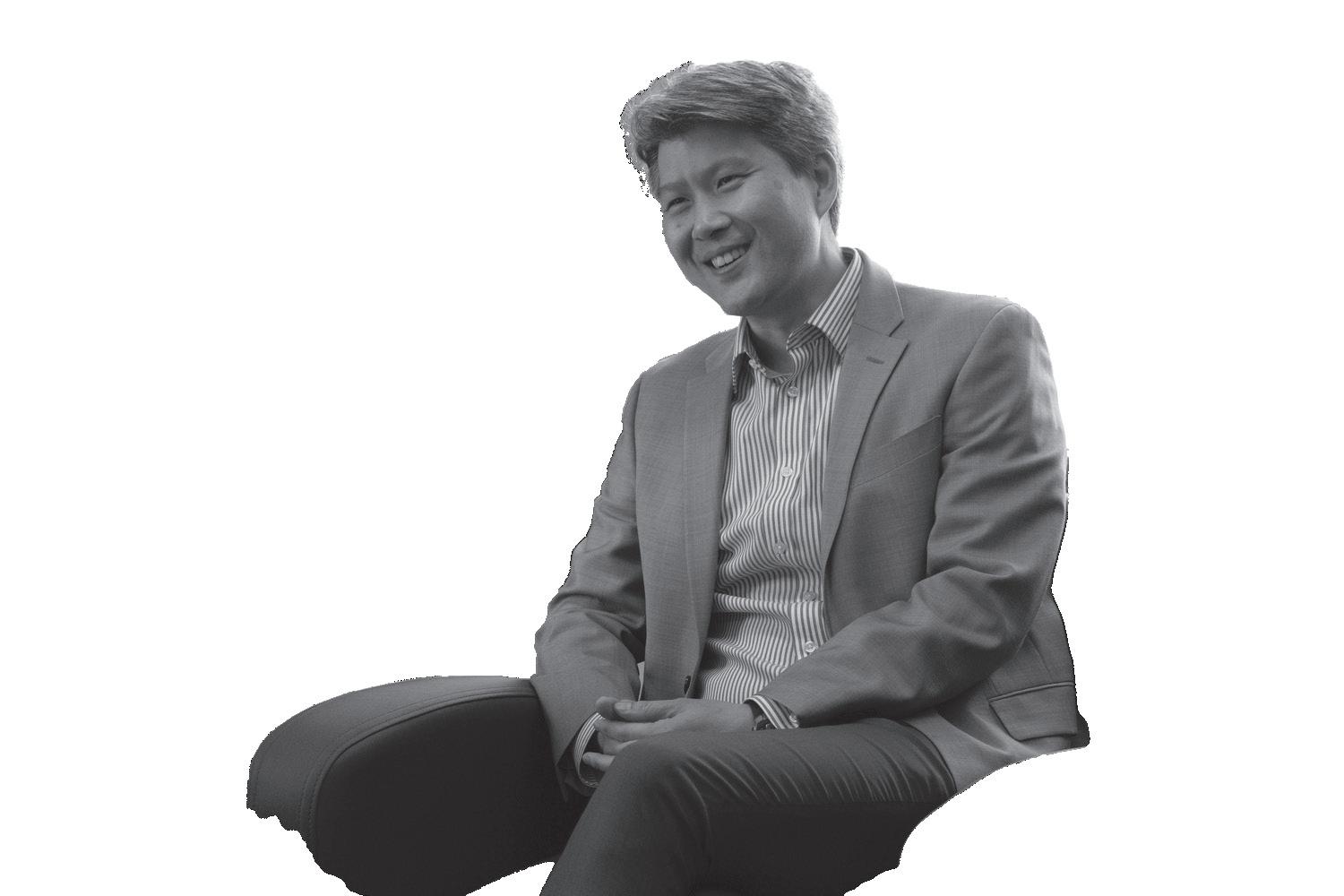
“I think we’d certainly be open to it,” he said, recognizing that the filing would be dependent on the case’s progress through the court. As Harvard battles the federal government, Huang said the Uni-
After a November ballot measure eliminated the Massachusetts Comprehensive Assessment System as a state graduation require -
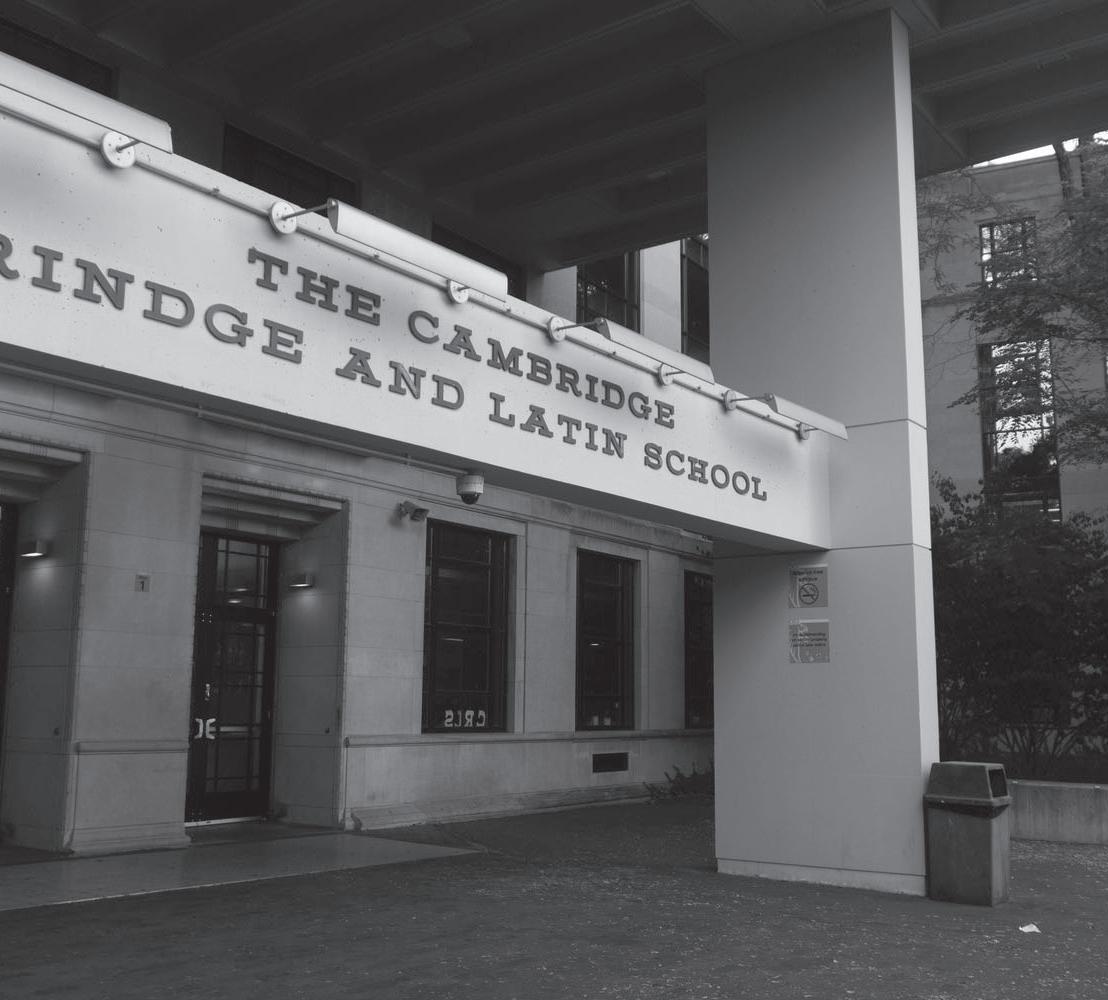
ment, officials on Beacon Hill are developing new guidelines to define graduation readiness. Cambridge and Somerville residents are working to ensure their voices are heard in the process.
Local parents, students, and educators gathered at Cambridge Rindge and Latin School on Wednesday for the first of six people’s forums throughout the state, sharing their opinions on the changing graduation requirements.
Executive Director of Citizens for Public Schools Lisa A. Guisbond, who helped organize the forum, said the event was designed to get “a diverse group of people’s views on what they want to see happen in our schools.”
The forums supplement existing work by Governor Maura T. Healey ’92, who appointed 33 people to the “K-12 Statewide Graduation Council” to recommend new graduation requirements. The council consists of students, educators, teacher union members, and elected officials.
Guisbond said she is concerned that the appointed council might not receive enough input from the public when determining new requirements.
“We don’t want the state to miss this opportunity that we have and rush into something that perhaps won’t be that different from what we already had that the voters rejected,” she said.
The forum — organized by Citizens for Public Schools, the Cambridge Education Association, the Somerville Educators Union, and Cambridge Retired Educators United — consisted of small group discussion about how students should demonstrate the necessary skills to graduate, and how schools can support this effort.
During discussion, participants highlighted financial literacy, critical thinking, and social-emotional learning as necessary skills to instill in students. They also pointed to reducing the stress of test taking
as a way for educators to support students’ mental health, and recommended introducing portfolios and capstone projects as a way for students to demonstrate their learning.
Event organizers plan to compile residents’ ideas and share them with state legislators, the Department of Elementary and Secondary Education, and the public.
Guisbond said that public opinion is especially important “in this moment of such turmoil for our whole democracy.”
“Public education is a foundation of our democracy, and our democracy is under attack,” she said. “Our public school system is under attack.”
“It just highlights for me the importance of giving people the opportunity to raise their voices, weigh in, have participated in a process about their public schools,” she added.
But Cambridge City Councilor Ayesha M. Wilson, who previously served on the city’s School
Committee, said she wished that the group better represented the populations who will be most affected by shifting requirements.
“I’m always going to stress the need for more diversity in these spaces,” she said. “To be one of few people of color in this space is often really challenging.”
Cambridge Mayor E. Denise Simmons and School Committee member David J. Weinstein also attended and actively participated in the forum.
Weinstein said that it is important for the district to constantly be “reevaluating” graduation requirements, to make sure “that we still feel like they meet our ambitions for serving our kids.”
“It’s really helpful to hear different perspectives, and it helps us make sure we’re not missing things and perspectives and experiences,” he said. “Can never have too much of that.”
ayaan.ahmad@thecrimson.com
COURTESY OF MARYAM HIRADFAR AND CELADON BOOKS

“NOTES ON INFINITY” IS A CAUTIONARY TALE OF VENTURE CAPITAL CULTURE GONE WRONG
BY HANNAH E. GADWAY CRIMSON STAFF WRITER
Austin E. Taylor ’21 — former Harvard English and Chemistry double concentrator, Mainer, author, and future Stanford law student — is interested in empathy. Her forthcoming debut novel, “Notes on Infinity,” explores what propels the most driven people to do things that the rest of society may find unfathomable.
“The book is really about empathy and trying to understand why people do things,” Taylor said in an interview with The Crimson.
“I wanted to remind the reader that when they see headlines about some scandal or other, there is a whole backstory of real people that lived a life up to that point, and that is now being reduced to 10 words. And I think that it is really important to humanize people in every situation, no matter what,” Taylor said.
“Notes on Infinity” is a cautionary tale of venture capital culture gone wrong. The novel follows Zoe, a Harvard student and daughter of an MIT professor, as she meets Jack, a wicked-smart and mysterious Mainer who is equal parts annoying and alluring. Together, Jack and Zoe begin to develop a possible cure for aging, and are thrown
into the biotech startup world at a dizzying rate. The novel exposes the evils of the startup sphere, the double standards that women face in the STEM world, and the dangers of intense media coverage.
In the novel, Zoe faces many setbacks, such as peer disregard, in comparison to Jack since she is a woman in the biotech industry. Taylor was inspired to tackle this topic after experiencing similar double standards in the field of chemistry.
“I think a lot of the main character, Zoe’s, experiences definitely reflect my own experiences,” Taylor said.
Beyond her own experiences as a chemist at Harvard, Taylor was also inspired by the way that the media had covered previous scandals in the science world. She specifically pointed to Elizabeth Holmes, who was convicted of fraud in relation to her health technology startup Theranos.
“We all watched Elizabeth Holmes go way up and then — really, really fast — way down,” Taylor said. “I’m not excusing anything that she did, but I think that the coverage of her on both ends was very, very gendered. She was the girl wonder. It was like, ‘Isn’t she awesome?’”
The connection between gender and media representation played an important role in Taylor’s writing.
“Afterwards, it was like, ‘Oh, she was, she must have been seducing her funders and she was some sort of seductress.’ I per-
ceived that, in the media, [her gender was] turned against her in a way that was very troubling. And so that was something that I wanted to sort of point at and hope to give people a bit of insight into in the novel,” she said.
Beyond focusing on how headlines can distort scientific breakthroughs, the novel also shows the varied experiences of Harvard College students. Taylor is a Mainer, and one of the novel’s main characters, Jack, is from the same area of the state as her. She uses Jack’s upbringing to dispel assumptions about her state and highlight the hidden battles of many Harvard students.
“Central Maine is nothing like the sort of wealthier, coastal, southern Maine,” Taylor said. “It’s very rural. It’s very red. It is very poor, especially in pockets. And I wanted to write a character from Maine going to Harvard, because my transition to Harvard was very jarring. The culture shock was pretty intense. I also felt like I didn’t know anyone and wasn’t plugged into these pre-existing networks.”
Taylor hopes that Jack’s experiences will demonstrate the pressure that high-achieving college students have to undergo, whether from Maine or other diverse backgrounds.
“Both main characters feel very out of place in their own way — Zoe, because she’s a woman in STEM, and Jack, because he’s from a very different background,” Taylor said. “And I would hope that Harvard stu-
Merai Review: Dive Bar Spices Up the Boston Dining Scene
Merai, a critically-acclaimed Thai-inspired restaurant and dive bar, does not disappoint. With its flavorful food and creative drinks, Merai adds an exciting twist to classic bar food. Located in an inconspicuous neighborhood in Brookline, Merai is operated by the same team behind the award-winning Thai restaurant Mahaniyom just next door. With only a handful of tables and a few bar seats, Merai offers an intimate dining experience with attentive service that allows for detailed recommendations and short turnaround for dishes. However, instead of rushing their patrons to finish their meal, Merai’s cozy am-
bience encourages people to savor the burst of flavors in each drink and dish. Recently nominated as a finalist for Best New Bar by the prestigious James Beard Foundation, Merai offers a series of unique and innovative cocktails, along with a curated list of wine, sake, and beers. Some are more refreshing highballs like the Hojicha and the Melon, while others are more rich in flavors, such as the Strawberry Cheesecake and the Wonka’s Ticket. To help patrons make their decisions, Merai describes the taste of each drink with a few words, such as “herbal,” “fresh,” and “long” for the Melon and “rich,” “complex,” and “short” for the Strawberry Cheesecake. Still, with such a creative list completely void of traditional cocktails, it would certainly take a few rounds
for adventurous patrons to fulfill all their curiosity. Named after the Thai word for “alcohol,” Merai lives up to its name with its drinks layered with myriad flavors. The Melon is particularly crisp and tropical. Made of tequila, honeydew galangal, lime, and soda, the drink tastes like a lemon soda at first. Then, the spiciness of the tequila and galangal briefly
Named after the Thai word for “alcohol,” Merai lives up to its name with its drinks layered with myriad flavors.
dents would read about these other Harvard students feeling really out of place and think, ‘Oh, when I feel really out of place, maybe that’s not just me.’”
While Taylor is passionate about exploring a diverse array of topics through writing, she was not always sure she was going to be a writer. She attributed her success in part to the diverse learning environment that Harvard fostered.
“I was not at Harvard thinking, ‘I want to be a writer, how do I prepare myself to be a writer?’” Taylor said. “But I think I was someone who loved to write and pursue a lot of things that were writing-heavy and had a broad liberal arts education, which I think is great for anyone who wants to do anything. Go Harvard, go academic freedom, go liberal arts!” Taylor hopes to use her interests in the liberal arts, technology, and regulation in the next steps of her career. While she has had success as a chemistry concentrator and as an author, she now sees herself pursuing the law.
“I’m headed to Stanford in the fall, which is very exciting, and I am hoping to have a parallel career as a novelist alongside some sort of career as an attorney,” Taylor said.
While Taylor is generally interested in the intersection of the law and technology, as a writer, she is specifically attentive to how it will affect creatives. She pointed to the rise of generative AI and the potential dangers it poses to authors.
kicks in before leaving an aftertaste of sweetness from the cazadores tequila blanco. On the other hand, the Wonka’s Ticket tastes more dry and rich, almost like an Irish old fashioned whiskey at first. Infused with brown butter coconut, coffee, and pandan, the Wonka’s Ticket has a piquant aftertaste of dark chocolate — echoing its name. While its alcohol menu is impressively innovative, Merai’s food menu approaches creativity in a different way, offering mostly classic bar staples such as the hot dog, buffalo wings, mussels, and nachos. Unlike other Asian-inspired restaurants that blend non-Asian flavors into cultural dishes, Merai does the opposite, infusing familiar dishes with spices reminiscent of Asian cuisine. Chicken pot pie is rebranded as the curry pot pie. Tiramisu is renamed “Kopimisu,” made with O-liang and Thai tea. However, the flavors of these dishes aren’t always bold enough. The curry lacks the richness that stronger coconut milk could pro-
“Now I’m really interested in generative AI regulation. It very directly impacts my livelihood,” Taylor said. “As someone who has always loved reading, has always loved books, I care a lot about storytelling, and I think storytelling is deeply, deeply important. I think writing and reading stories is perhaps our best tool to cultivate empathy, and I think that right now we’ve got a shortage of empathy, and so it is the worst possible time to be threatening that really important work with a new technology that has the potential to be extremely disruptive.” Taylor has obviously found success in a diverse array of fields. When asked about her advice for current Harvard College students, she pointed out that progress can often look nonlinear and that some paths may surprise you.
“You don’t know yet how the things that you’re doing will serve you later, but they will,” she said. “Even the things that end up being dead ends are going to be useful to you in some way at some point.”
In “Notes on Infinity,” Zoe and Jack deal with the same stressors that Taylor points out. Their story, and Taylor’s accomplishments, display that there is no right way to achieve goals and that following some preconceived notion of success may spell out eventual failure.
“Notes on Infinity” will be released on June 3.
hannah.gadway@thecrimson.com
vide, while the cocoa powder in the “Kopimisu” overpowers the subtle tea flavors. Upon savoring, however, one can certainly tell that there is a distinct taste to many of Merai’s dishes. The hamachi crudo from their special menu is made with fresh yellowtail fish, mango chili sauce, mint, and lime, further adding a tropical burst of flavors that melts along with the tender fish. The hot dog, one of Merai’s most popular dishes per waiter’s recommendation, is made with home-made krapaw sausage and caramelized basil onion, coupled with a perfectly toasted bun. Inconspicuous as it may seem, the dish draws its inspiration from the popular Thai stir-fried dish phat kaphrao, combining the aroma of basil with the familiar taste of a typical New England hot dog bun. Similar to its sister restaurant Mahaniyom, Merai also sits at the pricier end at around $15 per dish and drink. Each dish is fairly small in portion size, making it
easy for the bill to add up. However, its drinks and their sheer creativity are certainly worth the price tag. Unfortunately, Merai does not currently offer non-alcoholic beverages on its menu. Yet its dishes are still interesting to explore for those not looking to drink, although they are not as impressive as the drinks. As a restaurant that aspires to create a dive bar ambiance, Merai exceeds one’s expectations with its one-of-the-kind cocktails and staple bar food with its own pan-Asian twists. For any adventurous patron looking to enjoy an upscale experience while surprising their taste buds, Merai will not disappoint.
4.5 STARS
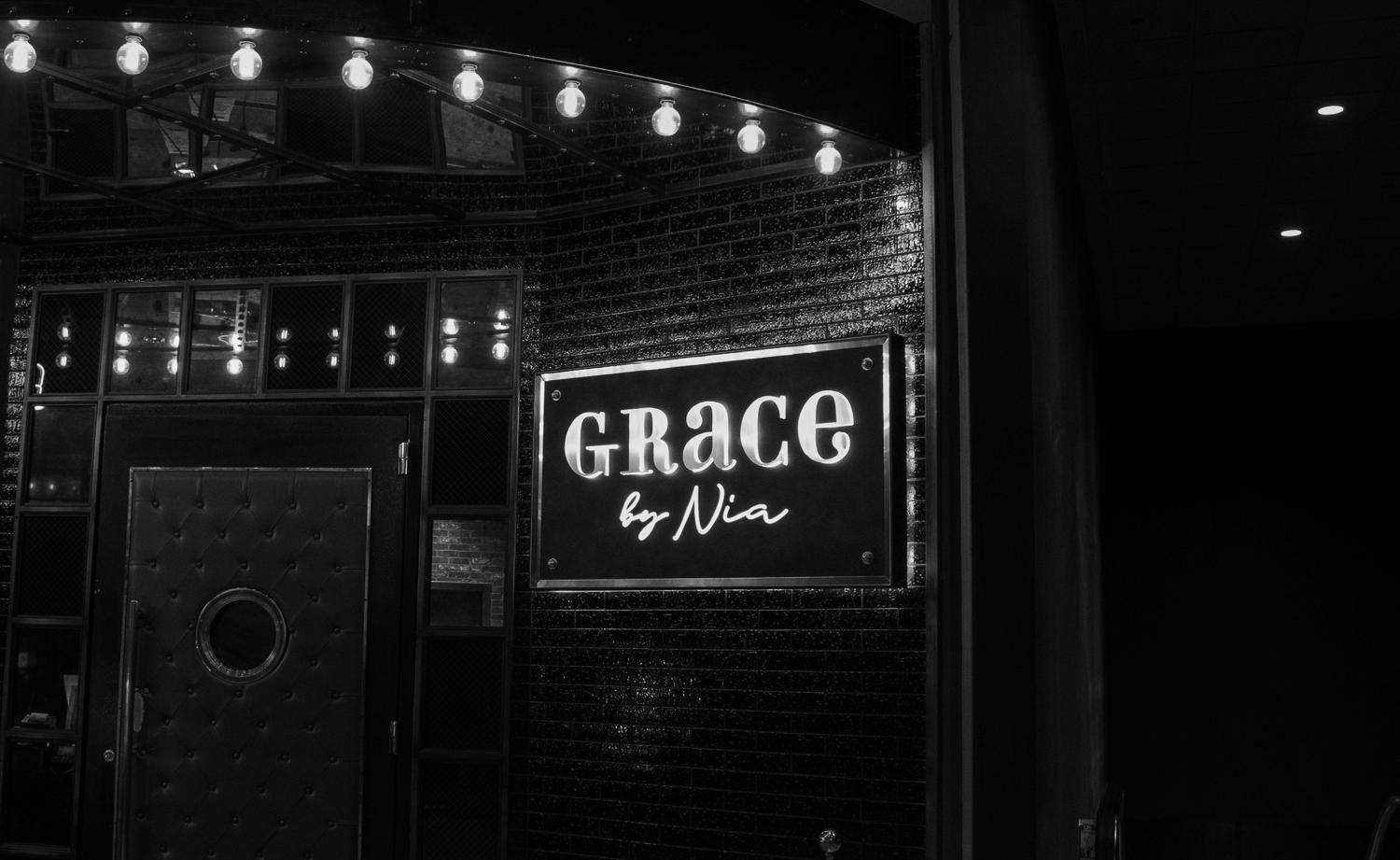
necessarily achieves this goal is debatable.
After walking up three flights of stairs in an unassuming Seaport highrise, you enter Grace by Nia and are immediately met with the vibrant sound of live jazz music, lively chatter, and the sweet aroma of Southern cooking.
Grace by Nia describes itself as a “modern-day supper club” that “puts a new twist on timeless charm.” “Supper clubs” were a common practice in the mid-century American South, providing eating and social spaces for a more intimate and community-focused dining experience.
The idea of a modern-day supper club is appealing — a break from the fast-paced, impersonal ambiences that are so common amongst contemporary restaurants. However, whether or not Grace by Nia
The space itself is gorgeous, dripping in jewel tones — opulent golden curtains and deep teal-colored walls frame the space, accented by shining chandeliers. The main area of the restaurant is an intimate viewing area, spotted with small tables for two angled towards a view of the stage. A grand floor-to-ceiling window breaks up the rich, deep colors of the space and reminds diners where they are — a portal into the Boston Seaport skyline.
Despite its claim of being a “supper club,” places traditionally meant for conversation amongst friends, this restaurant is certainly not the restaurant for conversation. It’s oftentimes hard to hear the person sitting next to you when musicians are performing. When they aren’t, the pre-recorded jazz coming from the sound system is just as loud. The jazz does provide a beautiful sonic backdrop for dinner, however. The music is both relaxing and vibrant, the perfect vibe for a celebratory drink with friends or a tranquil date night meal.
Overall, the aesthetic of the space perfectly frames the menu’s attempt to “innovate” on classic Southern and soul dishes, transporting the diner to a historical age of Southern cooking.
The culinary innovation itself, however, falls a little flat.
through the heaviness of the dish, but they don’t quite end up fulfilling their roles. Overall, the dish leaves diners tasting more oil than the intended earthy crunch.
The Maryland Hot Crab Dip, however, served with fried plantain chips and ritz “fire -
Despite the beautiful backdrop of the restaurant and the flavorful food, it did seem like Grace by Nia was trying a bit too hard at times.
The “opening acts” on the menu are packed with Southern flavor, but they fail to wow. The first couple of bites of the fried brussel sprouts are addicting, crispy and topped with smoked bacon, parmesan, and a champagne vinaigrette. The sprouts, however, rest in about half-an-inch of oil. In one word, the dish is heavy. The parmesan and champagne vinaigrette offer some acidity to break
crackers,” is a hit. The dip is everything one may want in a crab dip — cheesy, creamy, packed with Old Bay, and topped with fresh jalapeño.
While no qualms can be had about the Crab Dip, the appetizers as a whole are overwhelmingly rich. Alone, this somewhat works. Although the brussel sprouts are drenched in oil, the flavor almost makes up for it. Altogether, however,
there is a serious lack of even a single lighter or more refreshing option for appetizers.
For mains, the southern caesar salad offers a chance for Grace by Nia to live up to its claim of “innovating” classic Southern cuisine. The menu blurb seems in alignment with this — describing a classic Caesar salad with the added southern flair of Ritz “firecracker” croutons, bacon, diced pimentos, and cornbread croutons. Although this sounds delicious, it ends up feeling disjointed — a mountain of lettuce lightly dressed in something that tastes vaguely like a Caesar dressing, with oddly chewy, stale-tasting “cornbread croutons” and four Ritz crackers stacked on the side of the bowl. It seemed like the “Southern” elements were added simply for the sake of adding something Southern, rather than creating a delicious dish for patrons.
For salad toppings, the crispy chicken is great. The flank steak is not. The chicken is cooked perfectly, with a juicy interior and golden, crispy breading, while the steak lacks flavor and is a bit overcooked and chewy, almost impossi -
ble to cut through with a steak knife.
Despite the beautiful backdrop of the restaurant and the flavorful food, it did seem like Grace by Nia was trying a bit too hard at times. The ambience of the space sets the perfect scene for the pursuit of the restaurant — to be a “modern-day supper club” for Boston residents — but Grace by Nia doesn’t feel like a supper club. It feels like a restaurant in Seaport — which
BY
It all started at Northeastern University, where Lucas Zivkovic and Guillaume Blanchet, founders of global house music platform Deep House Bible, met DJs Ahmed Spins and Carlita. Ever since then, their careers have taken off. Deep House Bible has organized house music shows in location across five continents, from St. Tropez to the Giza Pyramids. Ahmed and Carlita have both played at Coachella, and each of them have over 1 million monthly listeners on Spotify. These artists sat down for an interview with The Crimson in their origin city of Boston, reflecting on their journeys and the bond between them that has lasted all these years. This professional bond is rooted in the friendship that brought them together at the start. For Ahmed, their bond was “friendship before it became a business.” Even though their business partnerships grew along with their careers, they were still grounded by friendship and mutual trust.
“When you start associating
yourself with different brands, you need to trust their vision,” Carlita said. “Basically, immediately after we met, we all trusted each other. They trusted that I’m going to deliver the music, and I trusted that they were going to deliver the party.”
strong artistic vision. The atmosphere of an event extends beyond the music; It is also created by lighting, decor, and staging.
dia, we managed to grow faster and quicker than quicker and bigger than other event companies.”
This trust is more than just a personal bond, it is also a mark of professionalism. They each have their roles: Zivkovic manages production, Blanchet manages marketing, and Ahmed and Carlita bring the thumping music. This “divide-and-conquer” approach creates flawless events.
“We try to have a good vibe, an uplifting vibe, and a happy vibe around our shows,” said designated “vibe coordinator” Zivkovic. “It needs to look like a chaos, but it needs to be organized and controlled.”
Deep House Bible prides itself on two defining features: its community and its venues.
With curated events in exciting locations worldwide, Deep House Bible has built a community that Carlita said is “beautiful, inside and outside.” This beauty is not a coincidence but rather the result of careful planning, crowd management, and a
Deep House Bible prides itself on two defining features: its community and its venues. These go hand-in-hand, as their events continually expose attendees to new cultures and places. A strong focus on community, especially at the beginning, helped them grow their audience from Boston to international stages.
With festivals all around the world, another key differentiating factor for Deep House Bible is its social media presence. Apart from the events themselves, social media helped put them on the map and create a community that they take pride in.
“It was the social media that we managed to use as leverage for booking artists or booking venues,” Blanchet said, referencing his area of expertise. “And thanks to that social me -
The community is a reflection of their own beginnings as “a good group of friends,” testifying to the strength of the community they have built, Zivkovic recounted meeting people at their shows who travelled alone because they knew they would be reunited with friends from previous shows.
Ahmed and Carlita often play at Deep House Bible events, whether together or separately. Their international backgrounds influence their music and contribute to a diverse soundscape. Carlita grew up in Istanbul, Turkey — the culture of her home city inspired her to make music that reflected its confluence of cultures.
“Basically Istanbul, when you think about it geographically, comes from East and West. So basically you have the Western culture that is more European, and you have the Eastern culture that’s very Middle Eastern,” said Carlita, sharing about her mixed genre sets, which defy easy categorization. Like Carlita, Ahmed also combines sounds from differ -
ent genres and cultures in refreshing and surprising ways. He grew up in Casablanca, Morocco, surrounded by an “open-minded” culture of music. This culture was influenced by electronic legends like Solomun and Black Coffee, who toured in both Europe and Morocco.
“Believe in your dreams, even if it seems far-fetched, but you should work in reverse process — so dream then goal-set,” Ahmed said, having just fulfilled his dream of playing Coachella.
“For me, it was the four C’s, and three of them I’ve done: Circoloco, Club Space, and Coachella. And I have another C that I want to do that I’m keeping for myself.”
The rest shared their own tips for success, reflecting on their journeys as young entrepreneurs and musicians who have managed to break into the industry. Carlita faced resistance while pursuing an unconventional career path, but she stressed the need to “follow your instincts and your dreams.”
“Believe in the people that you surround yourself with, because I think the success of DHB wouldn’t be here if it wasn’t for all of all of us together. You know,
I think we completed each other very well,” Zivkovic said. “And trust yourself, because you will make a lot of mistakes, but you will learn from those mistakes.” Apart from having vision, courage, community, and trust, it is also important to have passion. Whether it is flying between venues for performances or running a global brand, the artists know that the work can easily become overwhelming. However, Blanchet believes the secret to working despite the long hours is loving what you do.
“One quote I heard when I was young, and that stuck to me is: Do what you love, and you never work a day in your life. Okay, I can confirm that’s true,” Blanchet said. “Working with my best friends every day, I don’t feel like I’m working, and I’m truly grateful.”
When speaking, the joy that comes from their friendship with one another was palpable. Being back in Boston where they all first met was a “full-circle” experience. They held fond memories of their time here together.
Kenneth S. Rogoff is a professor in Harvard’s Economics department and an international chess grandmaster. This interview has been edited for length and clarity.
FM: You are an international chess grandmaster who drew the attention of Bobby Fischer when you were only a teen. But, you took an unexpected turn from other members of the chess pantheon when you applied to Yale at eighteen, launching your career in economics. What made you decide to switch paths?
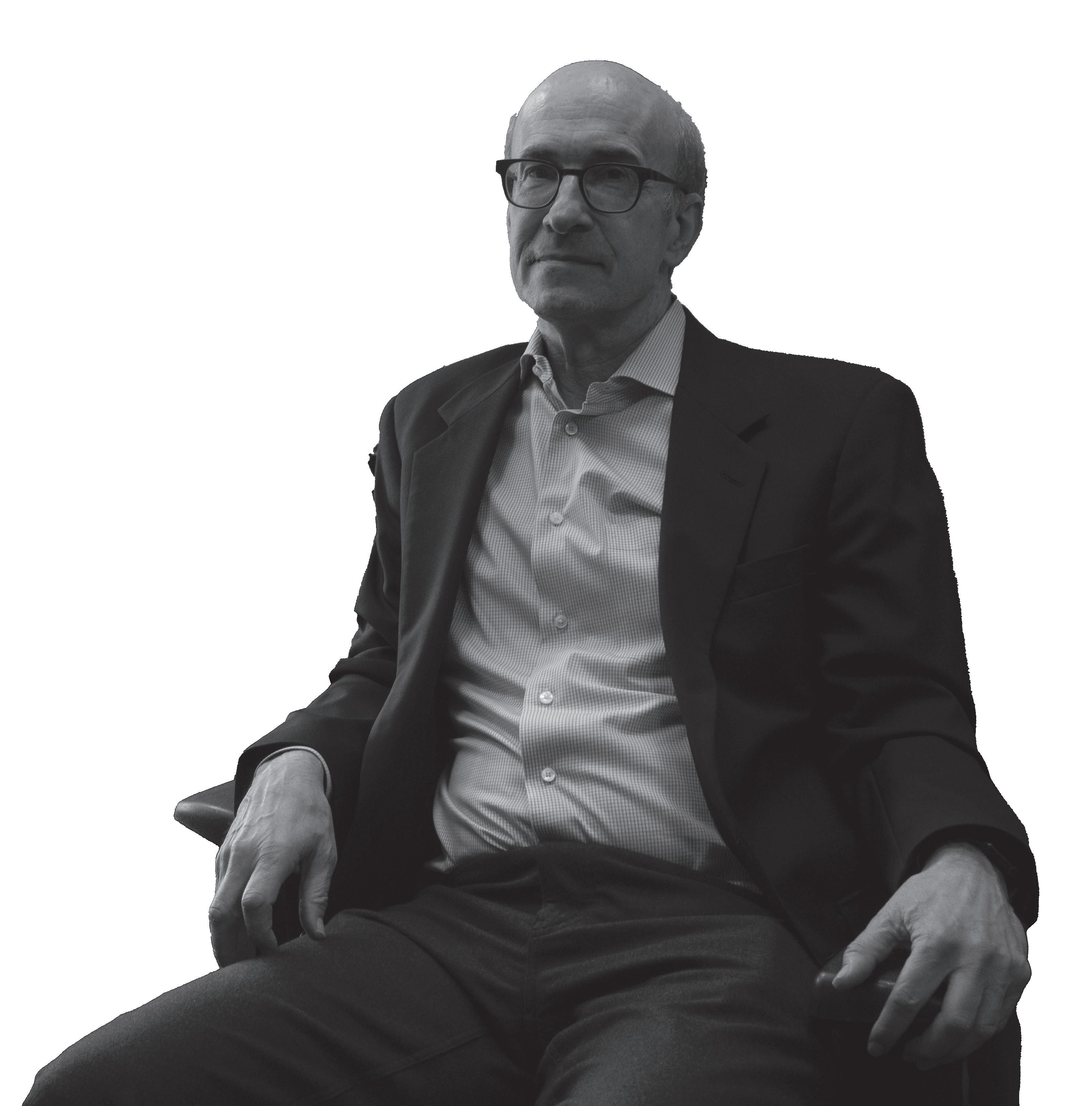
Fresh looks at things we didn’t understand. So far, AI has been good for human chess. It’s made it richer, but it’s probably increased the role of memorization
in hotels when I wasn’t at tournaments, but I didn’t
like that idea, so I would actually sometimes sleep in train stations, park benches, youth hostels, because other people my age were doing that. And of course nowadays, that just seems like you’re setting yourself up for something horrible. But I just didn’t think about it at the time. I certainly learned a lot about life from that, from the kind of people you interact with. Being so focused on chess, my ignorance about life and culture was indescribable.
I go to see Casablanca and, you know, everyone’s applauding. Why are they applauding? Oh, that’s Humphrey Bogart! Just had no idea. I wasn’t totally ignorant, but my level of culture was stupefying from being so focused. But on the other hand, I kind of understood the underground economy, which is tax evasion more than illegal activity, but particularly in Eastern Europe, there’s a lot of black market. Boy, did I understand that. At 16 or 17, I had seen a lot. I had seen huge hordes
of cash that some people had — just things you wouldn’t see as a teenager growing up in Rochester, New York.
FM: Could you tell me about your forthcoming book, [“Our Dollar, Your Problem”]?
KSR: It’s a sweeping history of the postwar rise of the dollar against all the challenges it faced. It looks at the difficulties of dealing with the dollar, crypto, and challenges ahead.
FM: Could you explain Bitcoin to me?
KSR: It’s not a currency. It’s ultimately a transactions mechanism. I’m in the school of thought that thinks it’s not infinitely valuable, because it can’t be real money, but it’s also not worthless, because Bitcoin, and more precisely Bitcoin derivatives are very useful in the underground economy. The technology is very clever, and it is a spin off of so many ideas, but there is
this tradeoff between secrecy and the government’s ability to inexpensively trace stuff. If you do dirty nuclear bomb somewhere, the government’s going to spend whatever resources they can to track you down. But if you’re doing more mundane criminal activity, it’s an arms race. It’s a problem, and I believe it’s something that should be regulated, quite contrary to what’s happening right now.
FM: What do you think of the idea of universal basic income?
CJC: It’s a little bit economically illiterate, so it depends on what it means. I’m a big believer in redistributing income. But on the other hand, if you give everybody, you know, $20,000 or something, the taxes are just blinding. Our system can’t take that. So, I think it makes a lot of sense to have a really strong safety net for low-income people, some of it direct transfer, some of it free healthcare, education. I think food stamps is a fantastic program.
BY BENNETT
Niki Piovan allowed Harvard to control the match’s pace and thwart several scoring attempts by the Tigers.
“We knew we didn’t come all this way just to beat Michigan,” junior attacker Ruby Hodge wrote in a text. “We came to win a championship. We knew this was the team to make history.”
The first quarter proved just how tough this matchup would be, as neither team could score in the
entire eight minutes. Harvard played some of its most aggressive defense of the season, with two players receiving exclusions early on in the period. Cooper tallied up several saves, but nei-
Responding with a successful power play of their own and scoring again after senior attacker Dany Zapata’s hard-fought goal, the Tigers maintained a neck-and-neck race with the Crimson.

ther team seemed to be firing at full speed yet.
Beginning the second quarter on a very different note, Hodge unleashed a powerful skipper shot in the first 30 seconds to give Crimson the first point of the match.
Princeton managed its first point two minutes into the quarter, tying the score.
After failing to capitalize on an initial power play opportunity, Harvard scored on its next chance with Piovan’s quick shot immediately after receiving the pass.
Nevertheless, Harvard was the team that set the tone, scoring first each time and forcing Princeton to respond. The Crimson’s defense severely handicapped its opponent by shutting out the Tigers’ top contributor and CWPA regular season MVP.
“I was matched up on her for most of the game,” Hodge wrote.
“Defense is the most important part of the game for us. Everything starts on defense because the goals will come naturally.”
Entering the second half of the
match, Piovan fired away another goal that was immediately matched by Princeton. But the 7-7 tie was swiftly broken by sophomore attacker Maya O’Dea on the next possession.
The intense pattern of breaking and matching ties continued, with Hodge faking out the Princeton goalie and shooting the ball into the opposite end of the net, and the Tigers’ point at the end of the period from an open attacker to the side.
Although the No. 1 and No. 2 seeds appeared to be stuck in a balanced struggle with solid defenses, Princeton seemed to be feeling the pressure. In the second half of the match, the Tigers mishandled a few passes, reaching far over their heads for a catch or briefly losing their grip on the ball.
These mistakes allowed the Crimson to make a steal on the first possession of the fourth quarter, which Zapata promptly slammed into the back of the goal.
In a welcome relief for Harvard, O’Dea waited out the shot clock until the last second to score and give her team its first two-point lead of the match.
Cooper continued executing crucial saves and forced attackers to aim for the high corners of the goal in hopes of getting the ball just beyond her reach. Unfortunately for the Tigers, these shots resulted
in many misses and deflections off the goalpost.
Following a timeout, Princeton managed to bring Crimson’s lead back down to one point on a power play opportunity and eventually returned it to a tie.
In the final 30 seconds of the fourth period, the Tigers called a timeout. If they could score on their coming possession and hold Harvard back, they would break the tie and win the match.
But, unwilling to give Princeton its three-peat CWPA Champion title, the Crimson’s confident defense secured overtime with an aggressive, last-second block to keep the score tied at 8-8.
Princeton’s
and secured a third place finish in the ICSA Women’s Team Race this past weekend. ICSA Open Team Race National Championship
1 Harvard Sailing overcame inclement weather conditions to secure the title of National Champions Saturday. The field finished the Round of 16 and a majority of Round of 8 on Friday, with rain forecasted for the remainder of the weekend. In the initial races of the ISCA Open Team Race, the Crimson defeated Stanford (1-3-4), Brown (1-2-6), and Dartmouth (1-2-4). These early victories for Harvard set them up for a race with a familiar Ivy rival: Yale. The Crimson’s early finish of 1-3-5 over the Bulldogs created a two-win gap. Harvard used the momentum to confidently advance into final four racing Saturday. The Crimson’s 19-3 win over Roger Williams cemented its place within the final four and established its dominance upon the leaderboard. The final four

regatta was composed of four fleets: Harvard, Yale, Roger Williams, and Stanford. In its first race, the Crimson bested the Stanford Cardinals in a 1-2-5 victory that essentially
secured its position as national champions with skippers junior Justin Callahan, junior Mitchell Callahan and sophomore Robby Meek, and crew junior Kennedy Leehealey, junior Aidan
Pesce, sophomore Rosella Irfan and senior Alexandra Dorofeev. Amidst this initial regatta success, Harvard fell to Roger Williams (4-5-6) and Yale (3-45). Despite these championship challenges, the Crimson claimed the ICSA Open Team Race National Championship with a record of 20-5.
ICSA Women’s Team National Championships
Following the dominant performance last Saturday, Harvard Sailing turned its attention to the ICSA Women’s Team Race National Championship. Seeded No. 4, the Crimson battled windy conditions to finish in a tie for third place in the Team Championships on Sunday — marking a new team best. The Crimson’s boat was led by skippers senior Cordelia Burn, freshman Kate Danielson and sophomore Zoey Ziskind with a crew of senior Margo Silliman, freshman Amelie Zucker, junior Kennedy Leehealey and sophomore Peyton Hadfield.
Harvard saw early success in round one where it defeated Georgetown (1-2-5), Cornell (1-2-
3), MIT (1-2-3), Tufts (1-2-3), and Penn (1-3-6). Following two races lost to Yale (3-5-6) and Dartmouth (3-4-6), the Crimson regained momentum for a short period with a victory over the College of Charleston (2-3-5) before a 1-2-4 loss to Stanford that concluded
The Harvard baseball team (1123, 8-9 Ivy) fell to the Northeastern Huskies (34-9, 16-2 CAA) by a score of 4-5 at Fenway Park in a heartbreaking loss, bringing its record in Beanpot Tournament final to 4-10 all time.
After trailing 5-1 for most of the contest, Harvard rallied with three runs in the top of the ninth, cutting the deficit to one with just one out, courtesy of a wild pitch and a two-RBI single from sophomore Tyler Shulman. With a rowdy crowd behind the visiting dugout, the Crimson rattled Northeastern pitcher Brett Dunham. However, Dunham struck out freshman catcher Liam Wilson in a tense at-bat and a lineout to third base from junior Jordan Kang ended the game as the Huskies stormed the field.
For the first time since 2019, the Beanpot was played at Fenway Park, home of the Boston Red Sox since 1912. The stadium has seen some of baseball’s biggest moments of the past century, and for players on the team, the experience will be remembered for years to come.
“It’s so special, I think Fenway Park is probably one of the nicest stadiums in America,” said Shulman after the game. “Really cool opportunity for all of us people to come out here and play.”
The game was defined by strong defensive performances by both teams, with electric plays in the outfield all night that limited offensive potential across the board.
Junior Brian Dowling started on the mound for the Crimson, throwing 4.1 innings in his fourth start this season. The junior lefty allowed four hits and five earned runs in his second start of the Beanpot Tourna -
ment.
Northeastern starter Max Gitlin pitched a solid game of his own, allowing two hits and giving up one earned run in 5.2 innings, minimizing his pitch count throughout the start.
After a quick first inning, the Crimson opened the scoring with a solo home run by Shulman that flew just to the left of Pesky’s Pole in right field. The Huskies quickly followed suit with an RBI double by Alex Lane to even the score at 1-1 after two.
That score held strong until the bottom of the fifth inning when Lane had his second RBI double of the night to start a barrage of offense for Northeastern. Three hits and three walks in the frame, and situational batting helped open a 5-1 lead for the Huskies.
The advantage stayed steady at 5-1 until the top of the ninth, when Harvard strung together several quality plate appearances to load the bases with one out.
After a passed ball brought in one run to cut the lead to three, Shulman hit a two-RBI single through the middle to bring the Crimson within one run.
The loss brings the all-time record in the Beanpot for Harvard to 22-39-1, with a 7-11 record against the Huskies. All time, the Crimson are 69-50-1 against the squad from Brookline.
Looking ahead, Harvard hopes to stay hot in Ivy play as it faces the Columbia Lions at home this weekend in the final regular season series of the year. The Crimson currently sits in fourth place in the league, a half game ahead of Dartmouth (8-10 Ivy) for the fourth and final spot in the Ivy League tournament that starts May 16th.
“We have a couple days here to get ready for Columbia,” said Head Coach Bill Decker. “But, you know, I got faith in our group. I think we’ve come together here at the end of the year.”

cess the scale of the Olympics un-
After a successful run in the NCAA world at Harvard, 23-year-old Graham Blanks ’25 continues his career in the professional sphere after sealing a deal with New Balance.
‘I Just Kept Getting Better’ Blanks was exposed to athletics from a young age, but it was not until he was older that he took running more seriously. His introduction to sports started in his childhood, when he mostly played soccer. However, Blanks would frequently dabble in casual running with his mom during turkey trots or 5k’s.
“I would always be pretty good at it,” he said. “I knew how to pace myself, but never really thought anything more of it.” Blanks continued to play soccer and started cross country in middle school, so he says that he likely trained more for running than he had thought. However, he did not start taking the sport seriously until sophomore year of high school. Once he began winning state championships in cross country, he viewed it as a turning point and it motivated him to hone in on his talent at a leading institution.
“And then things kept working out,” Blanks said. “I just kept getting better.”
“And now I’m a professional runner which I didn’t really expect to happen back when I was in middle school, or running those Turkey trots,” he added.
Running at Harvard Blanks wanted to utilize his talent
in running as a chance to attend a top school like Harvard to make the most of the opportunity.
He believes he was inspired to pursue running at the collegiate level mainly because of his friends. Training and bonding with teammates was his first motivator, and running felt like a secondary factor that followed.
“I kind of owe it to keep giving it my all,” Blanks said. “And to win as many races I can, to run as fast as I can.”
“There’s thousands of people who would want to be in my position, and who worked just as hard as me,” he added. “But I just got lucky enough.”
“I wouldn’t be anywhere without my coaches, and likewise with my teammates,” Blanks said. Support from both Blanks’ coaches and teammates played an integral role in his progress. Blanks believes that his accomplishments would not have been possible without the motivation he received from his supporters. He added that training with teammates made the process enjoyable and are now some of his best memories during his NCAA career.
‘Big, Awesome Moments’ Blanks had an eventful career in the NCAA and carried the Crimson name far, even to the global stage. He won the 2023 NCAA Division I Cross Country Championships, becoming the first male athlete from an Ivy League college to capture the title. Just two weeks later, Blanks set the collegiate record for the indoor 5000m with a time of 13:03.78. In 2024, he repeated as champion, becoming the 13th male athlete in NCAA history to win a second consecutive cross country championship. He even
broke the 13 minute record in indoor 5000m with a time of 12:59.89, which made him second on the NCAA all-time list.
Blanks is no stranger when it comes to seizing titles across the board. He came in sixth place at the 2022 NCAA DI Cross Country Championships, preceding his back-to-back wins the next two years. He also won titles for the Ivy League in 2023 in the indoor mile, 3000m, and outdoor 5000m.
Blanks has also participated in track and field events, where he placed second in the 5000m and sixth in the 10,000m at the 2023 NCAA Division I Outdoor Track and Field Championships.
“People would think the big moments were winning an NCAA championship or setting a collegiate record,” Blanks said. “Those are obviously big, awesome moments for me. But I think at the end of the day, it was the random moments in between with my teammates that really made it the best.”
In retrospect, some of Blanks’ best memories include training with his teammates to win the Ivy League Championships as a team in track and field. Another highlight is when he and his teammates would sweep the podium, placing first, second, and third in a race.
“Those are kind of the things I’ll look back on the fondest– was when everything comes together on one day, and we can all perform to our ability,” Blanks said. “Because it’s really hard for everyone to be on the same page on the same day.”
In addition to being a two-time NCAA champion, Blanks represented the United States at the 2024 Paris Olympic Games. He finished in ninth place in the 5000m final, with a time of 13:18.67.
Blanks says he did not pro-
til he experienced the environment himself.
“It was very inspiring to see all these different athletes from all around the world— all different shapes and sizes, doing all these different random sports you didn’t even know exist,” Blanks said. “It was pretty inspiring that we have this human tradition where we can all come together peacefully and be a part of this one big event.
In addition to the environment, competing was also a key eye-opening moment for Blanks. The Olympics is the peak for track and field events in terms of gathering a crowd. Blanks found it astonishing to have been able to compete in front of an 80,000 person audience twice.
“The first thing I thought when I was finished was just how much I wanted to do it all over again,” Blanks said. “So now that’s my goal for the next three years, to make it to Los Angeles and then onward to wherever the next ones are.”
Hardships and Growth
In order to reach his current status, Blanks experienced obstacles that served as opportunities for growth along the way.
Because of its nature, distance running is a very physically demanding sport. Blanks recalls encountering his fair share of injuries from constantly challenging himself. However, he attests that these setbacks are a natural part of the journey.
“That’s just something you have to learn how to manage— but it doesn’t make anything any easier,” Blanks said. “Because all you want to do is be out there with your teammates.”
Blanks also noted the academic and social adjustment of coming to Harvard, especially compared to his hometown. He was glad he had a team during this change, but it did not ease the struggle of assimilating into a new environment. Reflecting on the last four years, Blanks sees how much he has grown to become familiar with what seemed so distant in freshman year.
“I’m happy as I struggled a lot,” Blanks said. “Because without

Next Steps
struggle, I wouldn’t be the person I am now, and I wouldn’t have been able to grow at Harvard.”
“And I think if everything was comfortable all the time, it wouldn’t have been worth it to go to school here,” he added.
Professional Debut
There were numerous different factors playing into Blanks’ decision to move on from his NCAA career. A primary reason was that he had accomplished most of his goals and it began to feel like he had outgrown the NCAA sphere.
Blanks felt ready to take his talent to the next level and challenge himself with larger-scale competitors to keep qualifying for major events, like the Olympics.
In the professional world, Blanks has more discretion over his races, events, and overall scheduling.
“Being able to control when you race and when you have to train, and how hard you train during the season, it really is something that can help you stay healthy,” Blanks said.
On February 2, 2025, he made his professional career debut at the New Balance Indoor Grand Prix in Boston, running the 1500m at a time of 3:36.11.
With the World Championships approaching later this year, Blanks’ main priority remains to be healthy.
Sealing a deal with New Balance, Blanks has many events ahead of him, both domestic and international.
Blanks is most excited to travel to new destinations. Competing at Harvard has already opened the doors for him to explore various different college towns within the United States.
“And for me, that was one of my favorite parts— was being able to do that,” he said. “And to get to do what I love while traveling, which is racing.” Now, as a professional, Blanks looks forward to what’s in store for him as he enters this new chapter. He is eager to travel to diverse countries across the globe to compete in different races. In particular, Blanks notes that Europe is known to have a larger audience for running events. So, he looks forward to running in front of bigger crowds and building his career.
“Something else I’m excited for is just to be able to be a little more ruthless in setting up a training environment for me that works the best for me, removing the academic rigor of Harvard, and just being an actual professional athlete,” Blanks said.
“Hopefully that gives me a big boost once I start settling into that and I can get even better and continue to run well for everyone who got me to this point.”
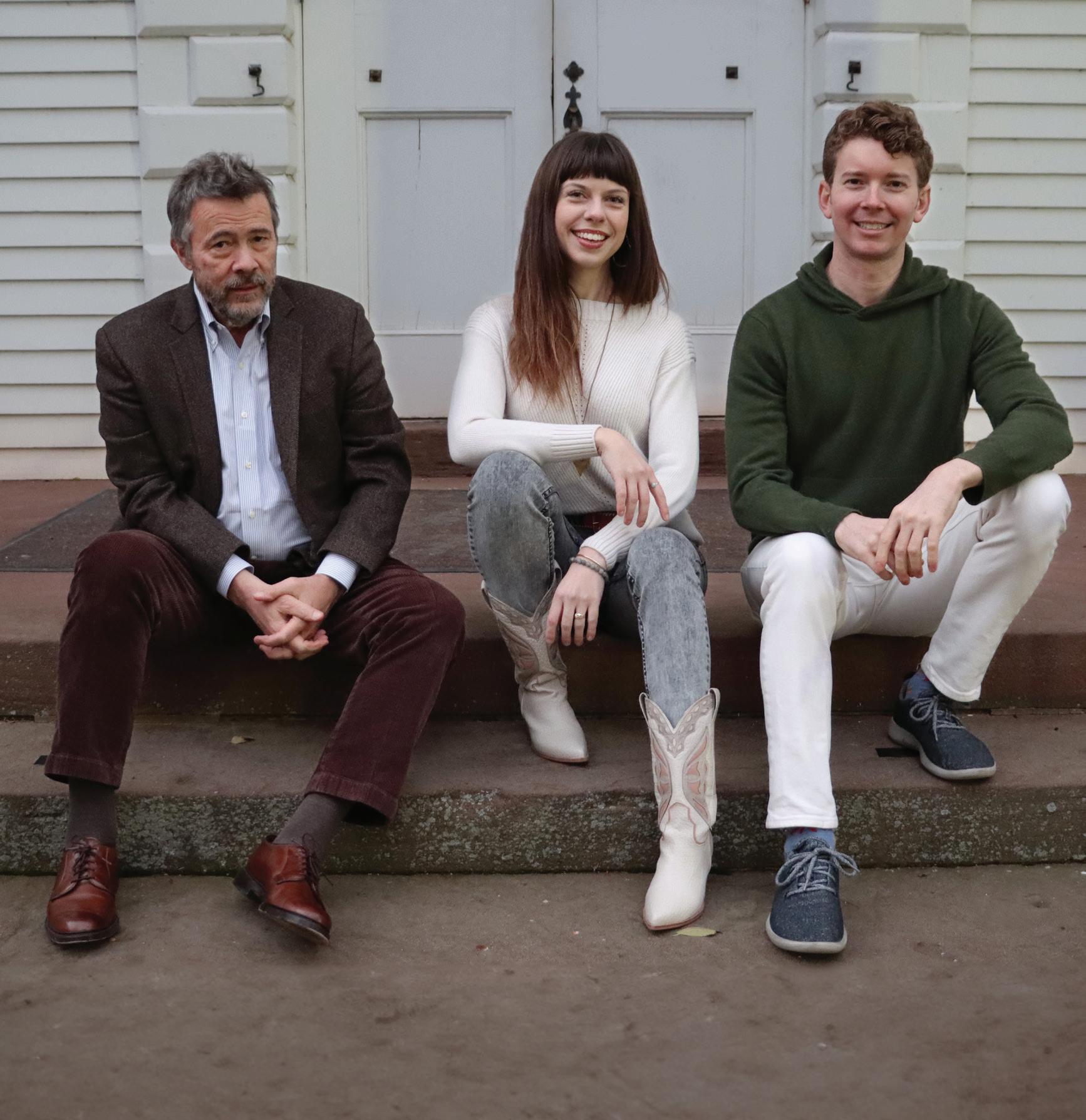

Two former Harvard football players signed with NFL teams as undrafted free agents on Saturday, bringing the total number of Crimson players in the league to seven.
Former Harvard football standout Tyler Neville signed with the Dallas Cowboys, adding another chapter to his career as a top tight end, while former Crimson running back Sone Ntoh joined the Baltimore Ravens. Former Crimson defensive lineman Thor Griffith and offensive lineman Austin Gentle, remain unsigned. Griffith received an invitation to the Seattle Seahawks’ rookie minicamp where he could sign as an undrafted free agent if he impresses Seattle’s coaching staff.
Both Neville and Ntoh transferred to other collegiate programs for their final years of eligibility, with Neville moving to the University of Virginia while Ntoh suited up for Monmouth University.
The pair provided a strong boost to the Crimson’s offense, with Neville hauling in 37 receptions for 394 yards and two touchdowns during the 2024 season, establishing himself as one of the Ivy League’s top tight ends.
Meanwhile, Ntoh added a powerful presence to the backfield, appearing in eight games and carrying the ball 64 times for 232 yards. His physical running style gave The Crimson a dependable short-yardage option and helped

sustain drives. Together, Ntoh and Neville helped fuel Harvard’s 6-4 campaign in the 2022 season, the last time the two played together donning a Crimson jersey. At Harvard, Neville was a reliable offensive weapon, recording more than 1,000 receiving yards and ten touchdowns over his collegiate career. His time in Cambridge was also underscored by an inspiring personal story, having overcome early health challenges, including a chest wall disorder and Hodgkin’s lymphoma. After transferring to Virginia, Neville continued to impress, finishing his 2024 season with 394 receiving yards
BY MAE T. WEIR AND GRACE E. YOON — CRIMSON PHOTOGRAPHERS

FIGHT
